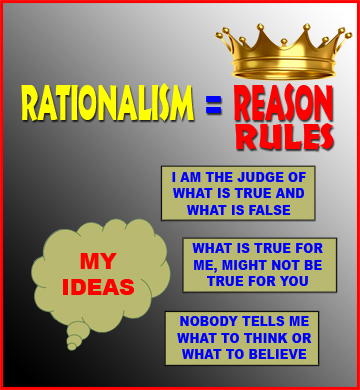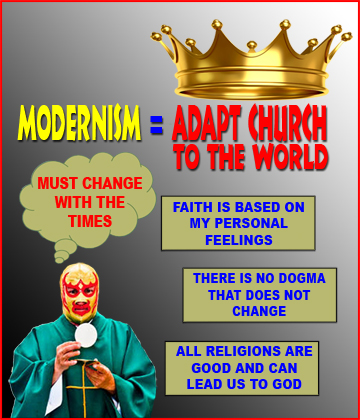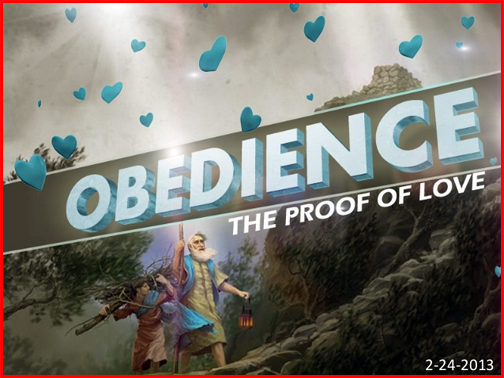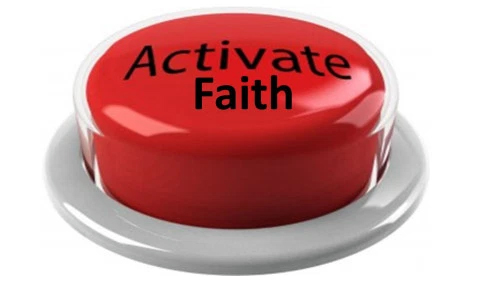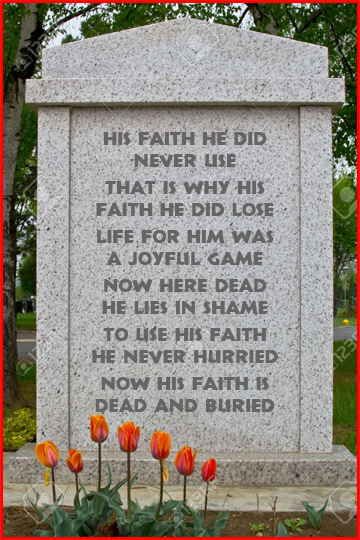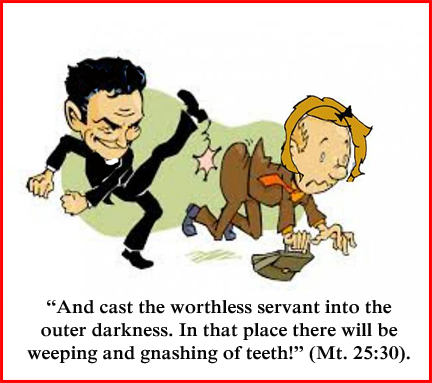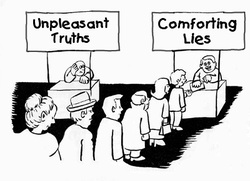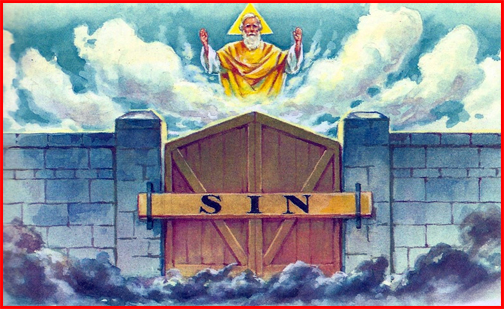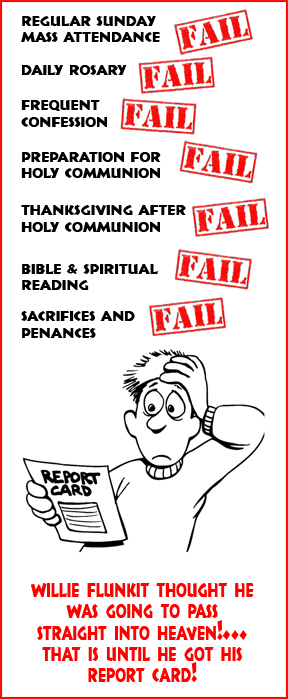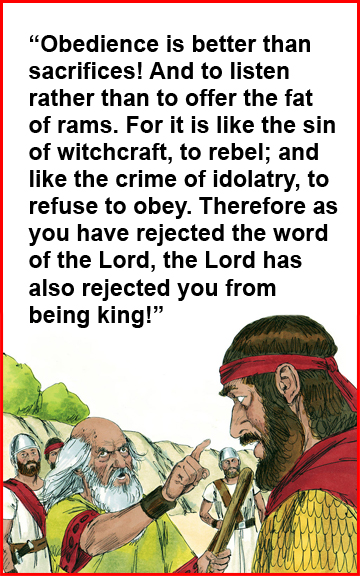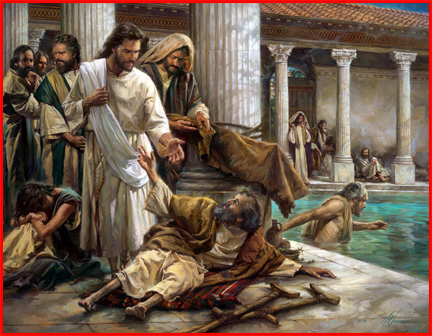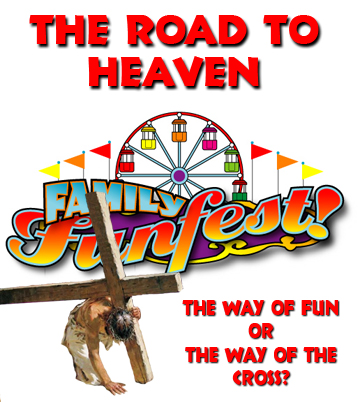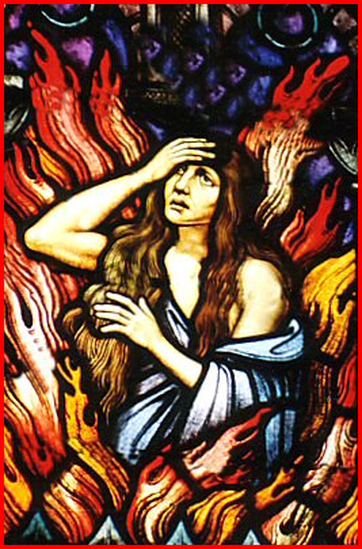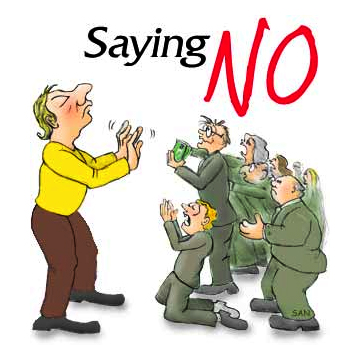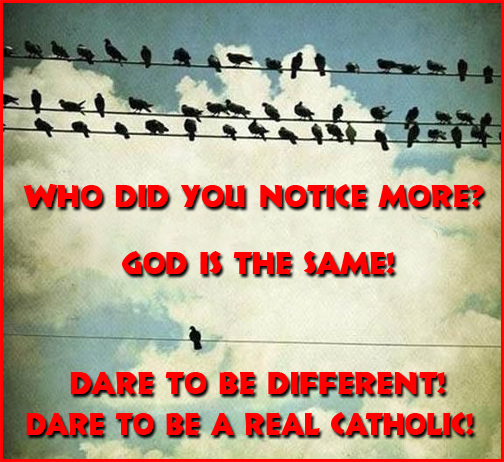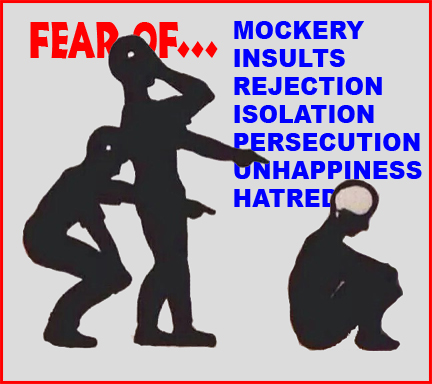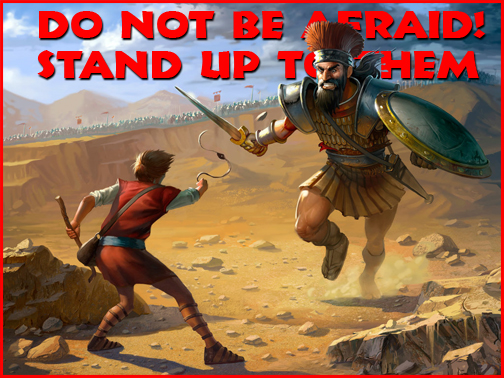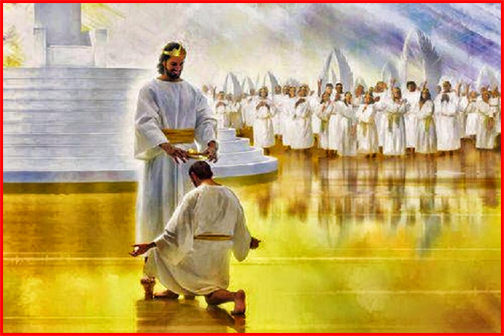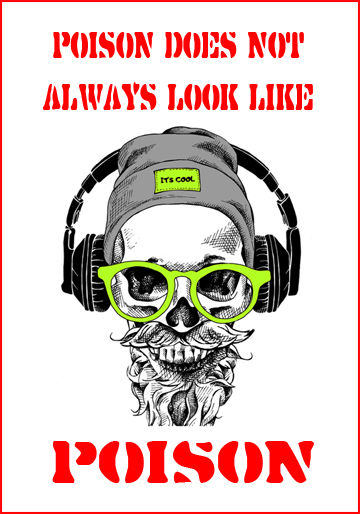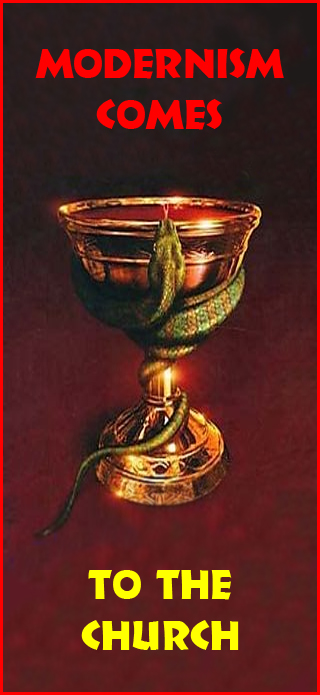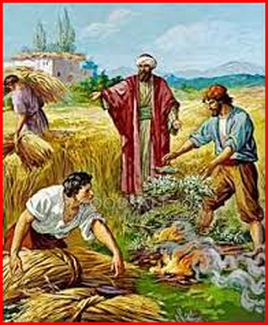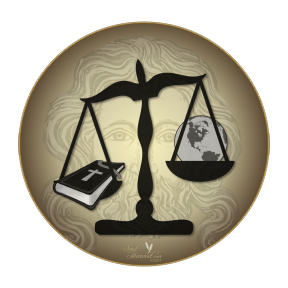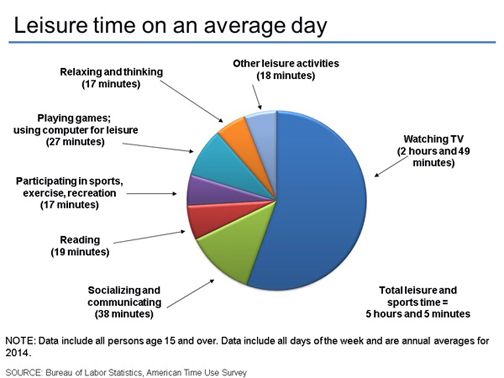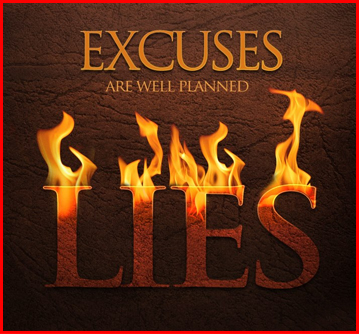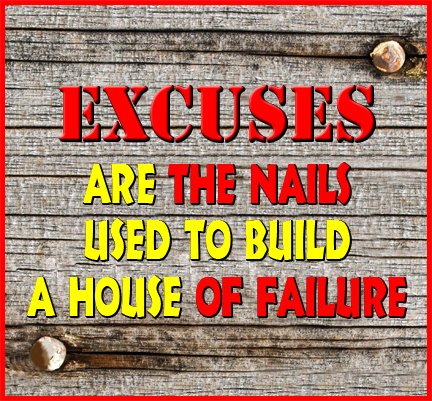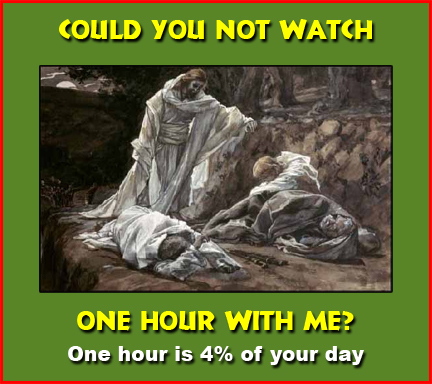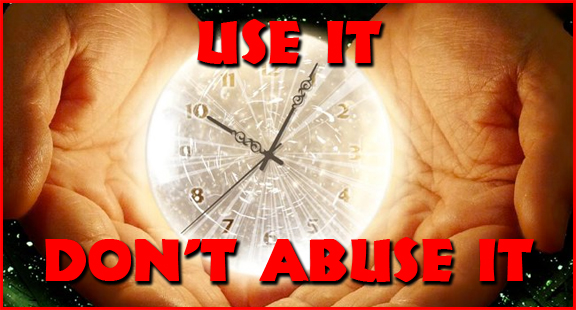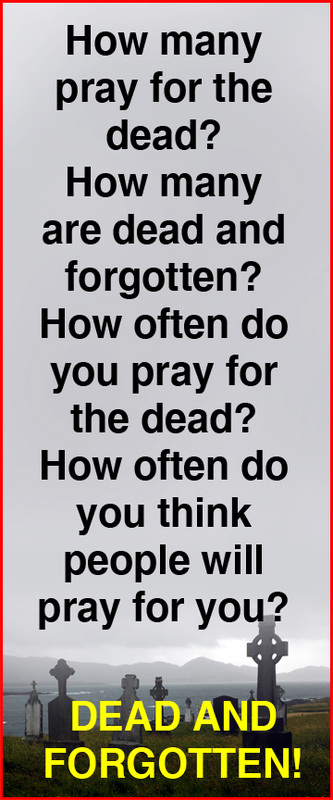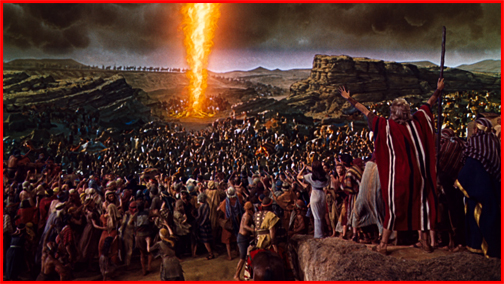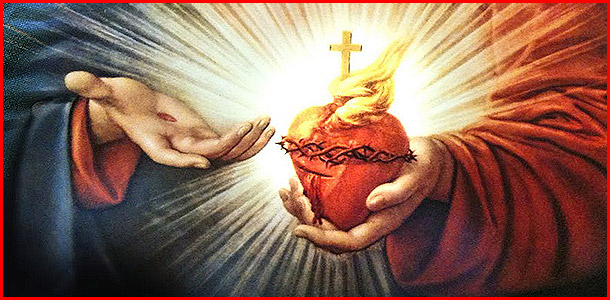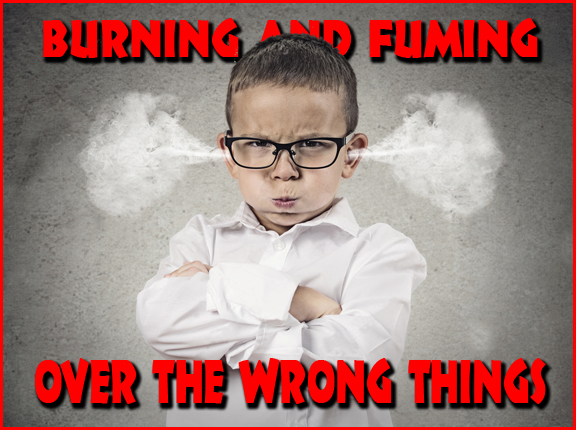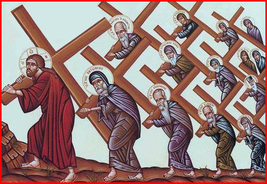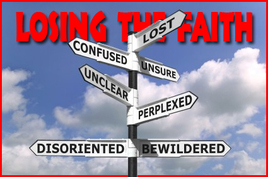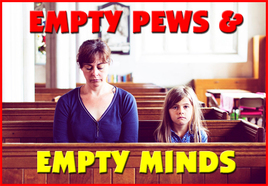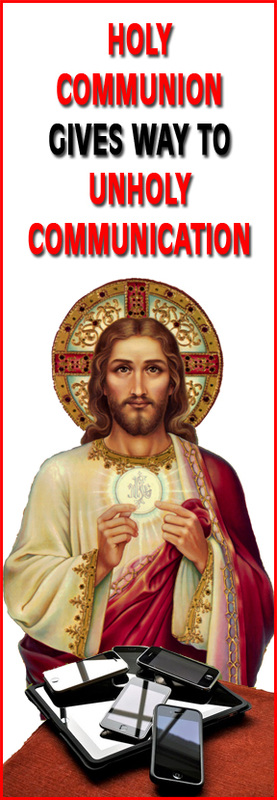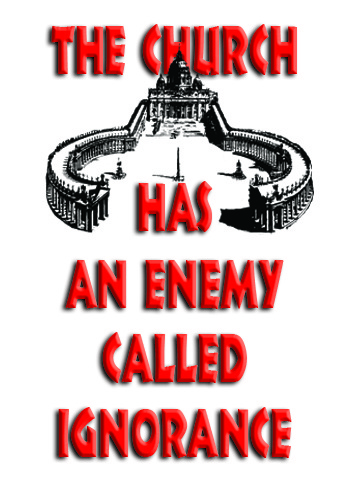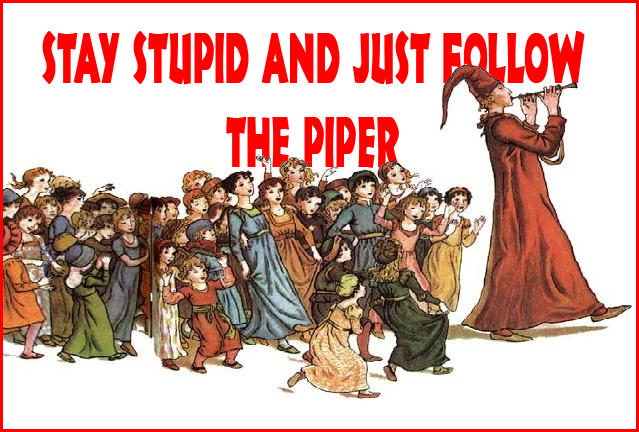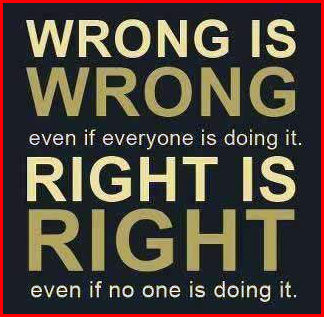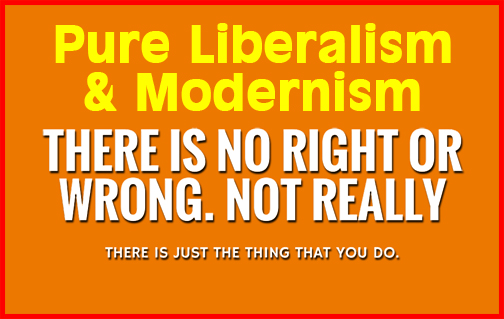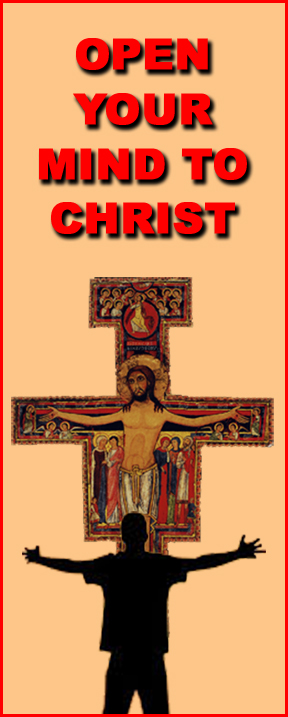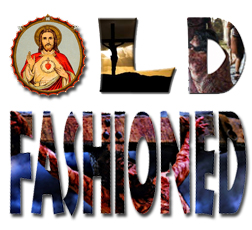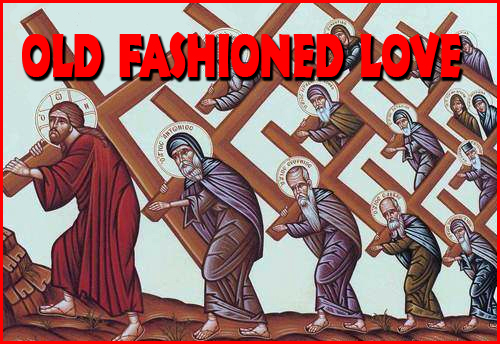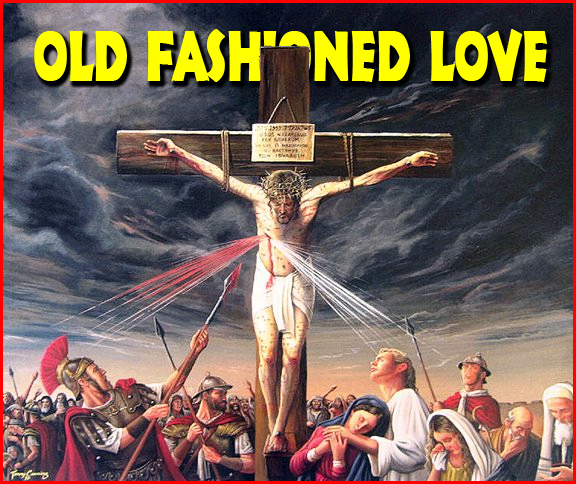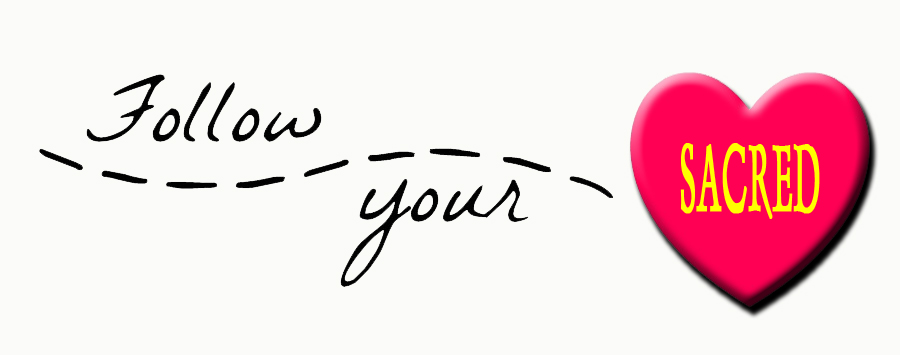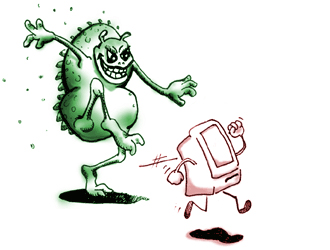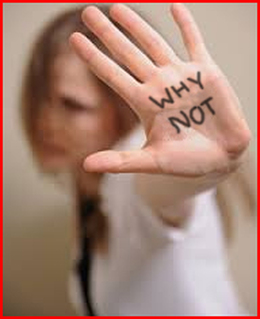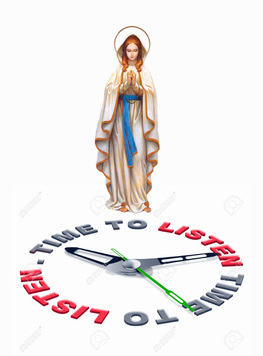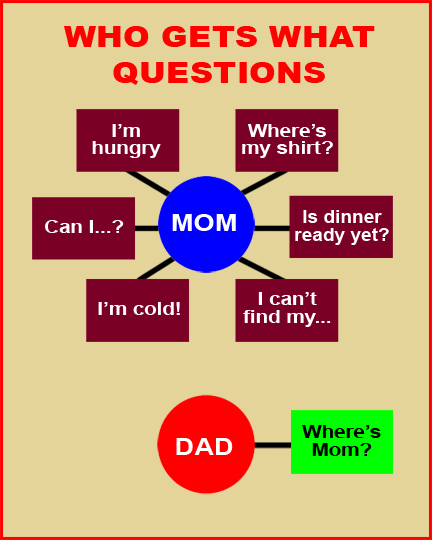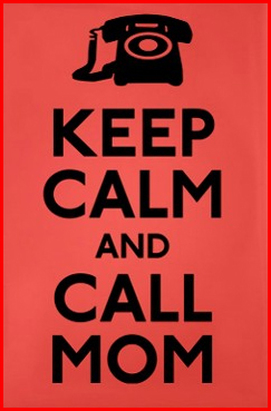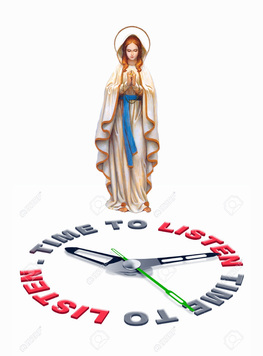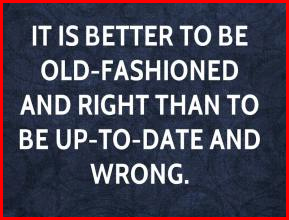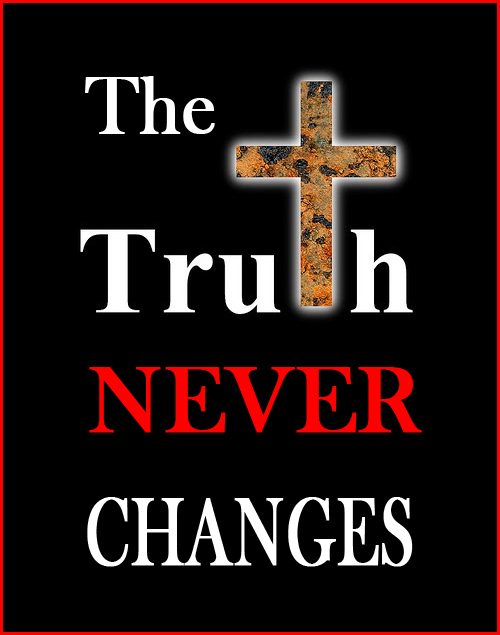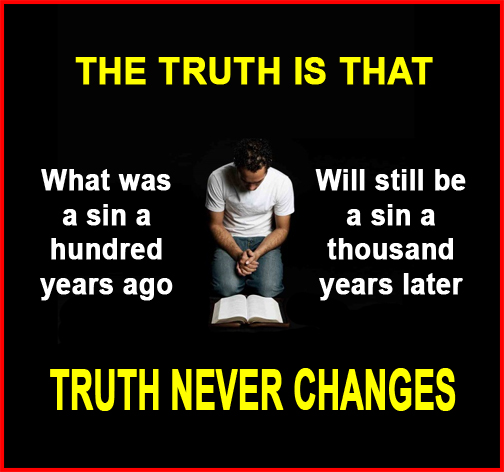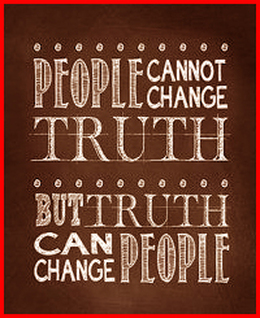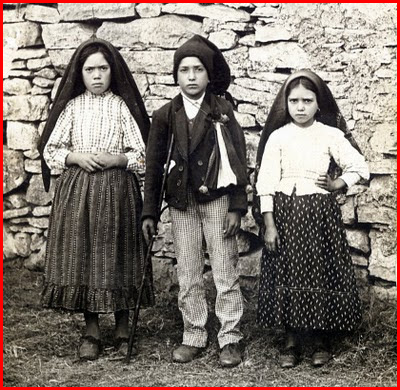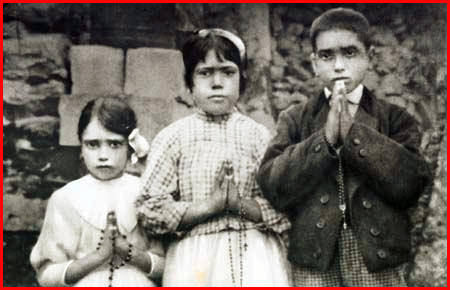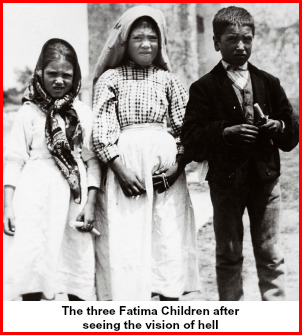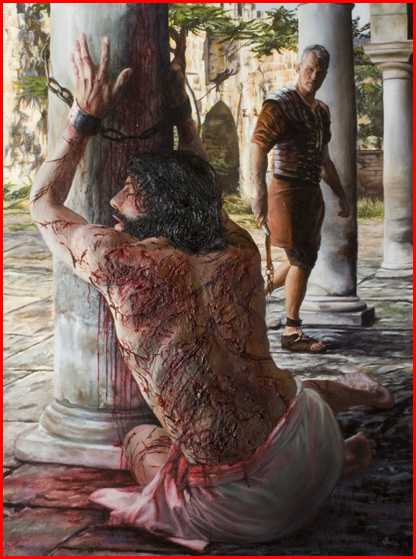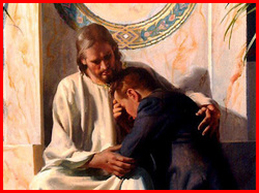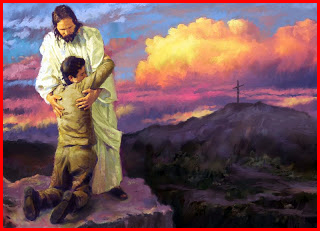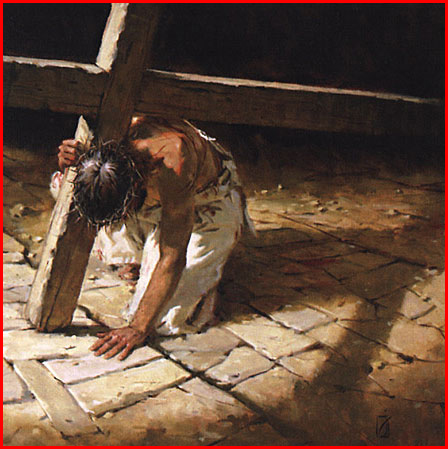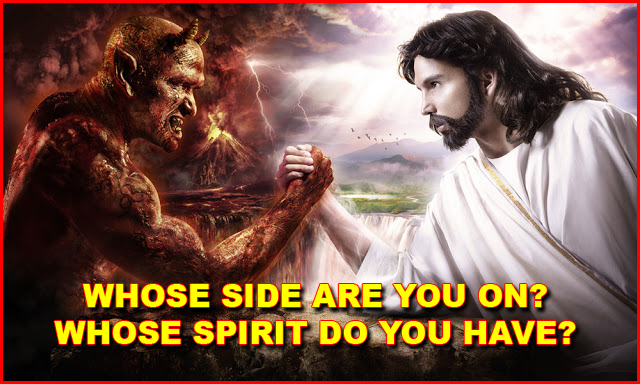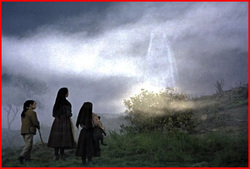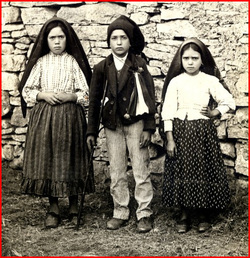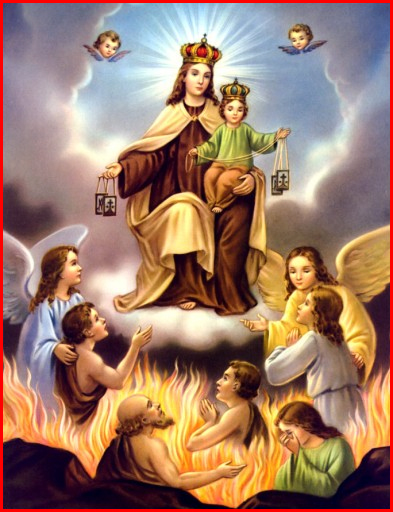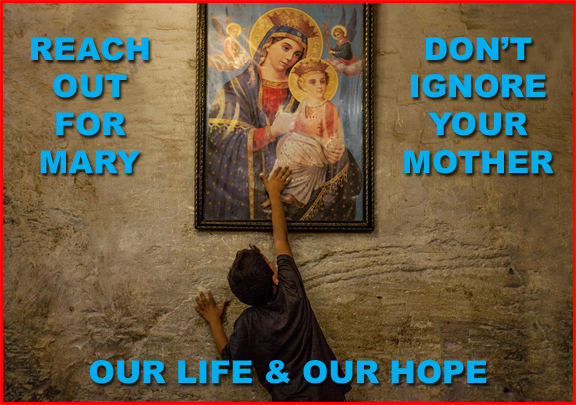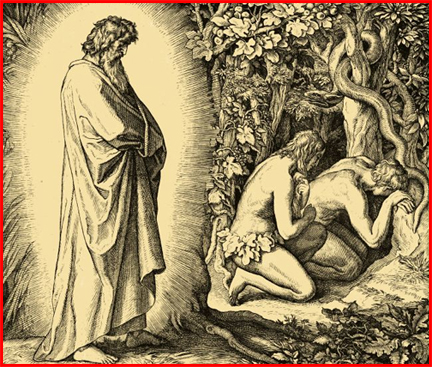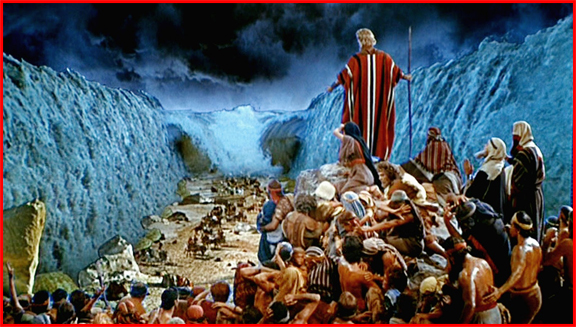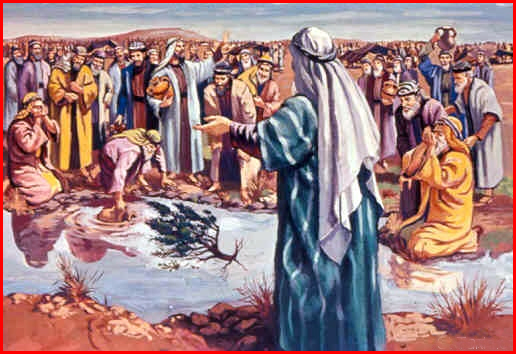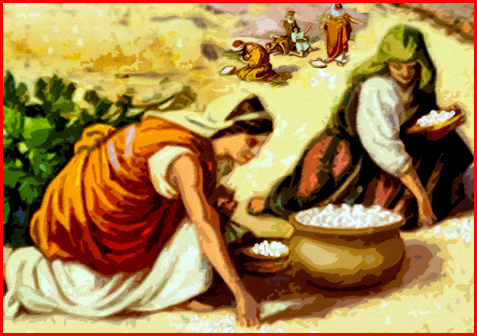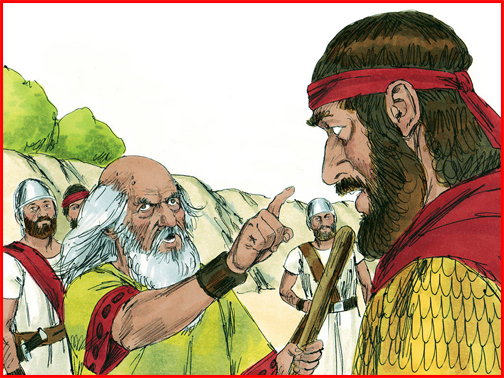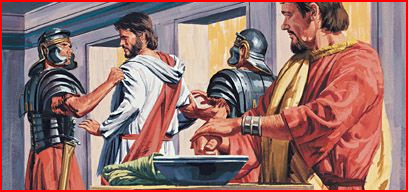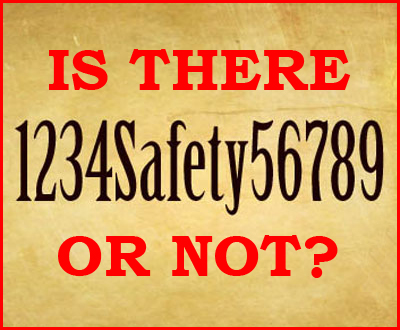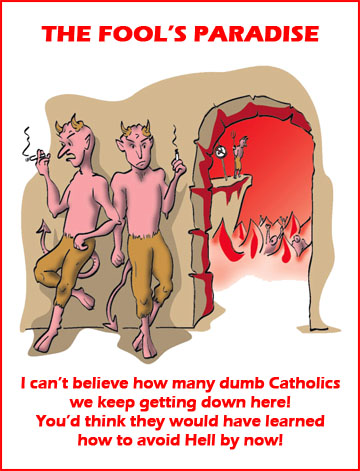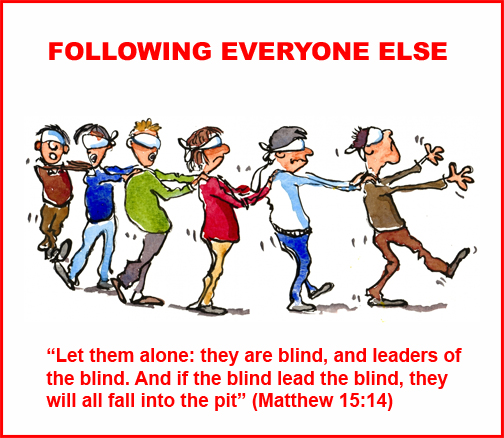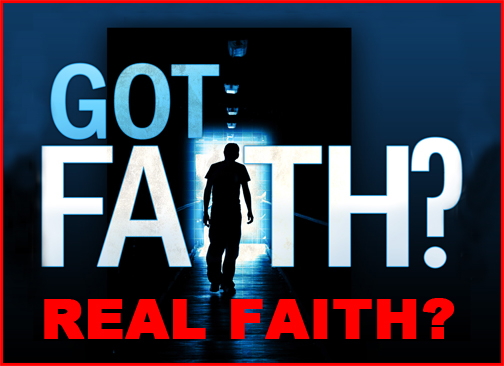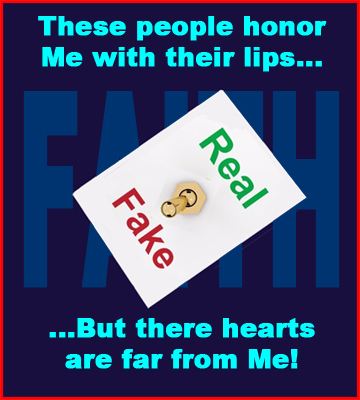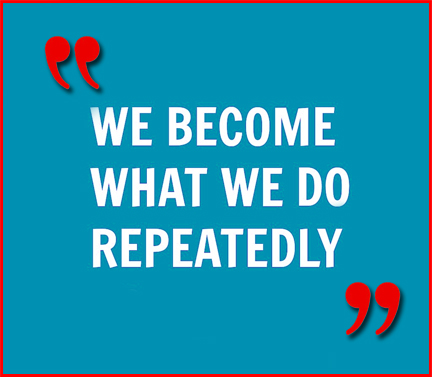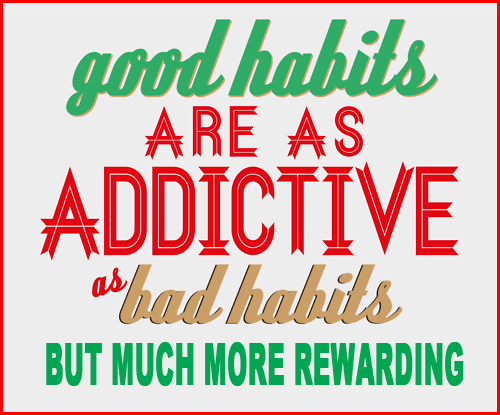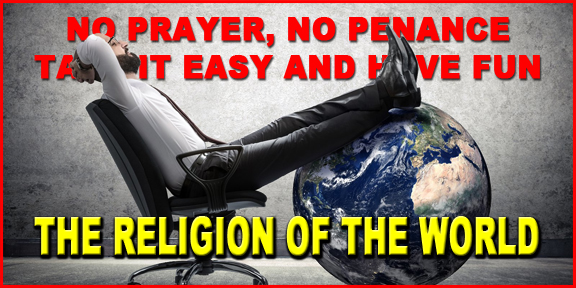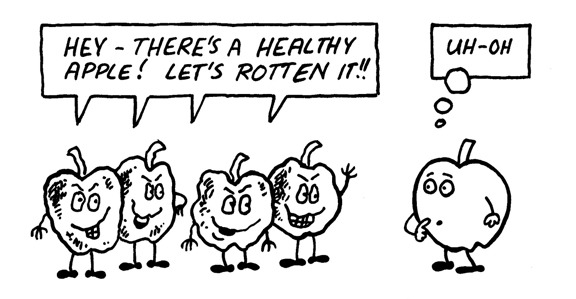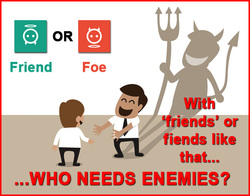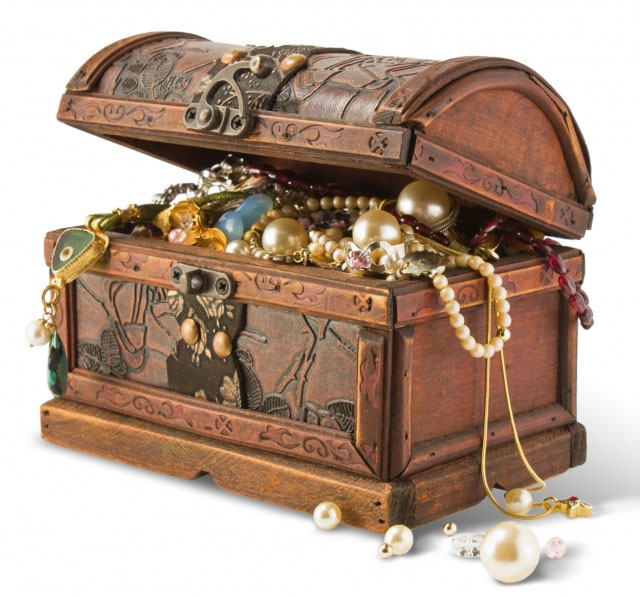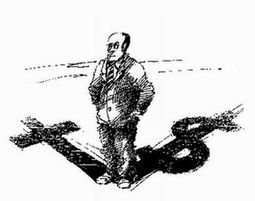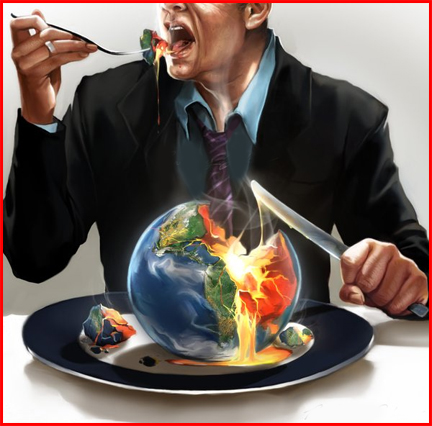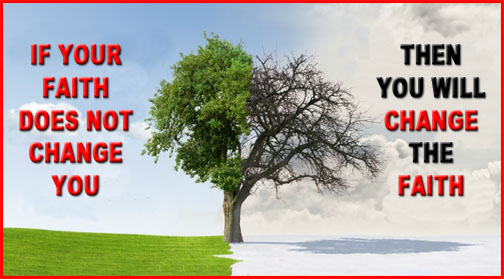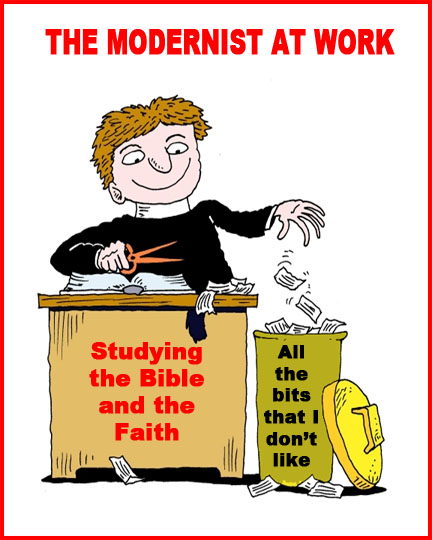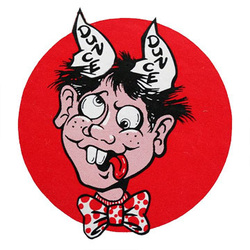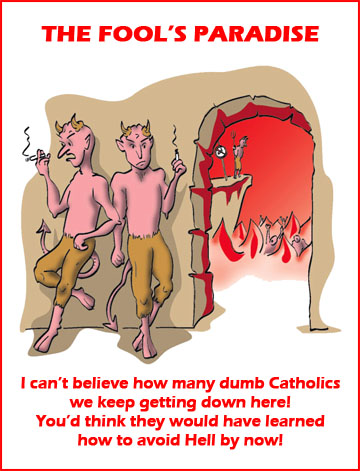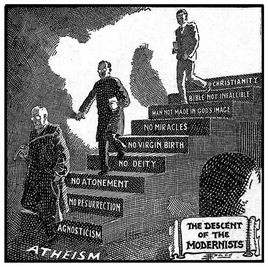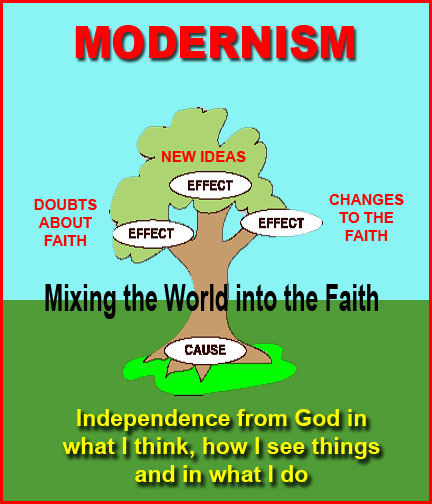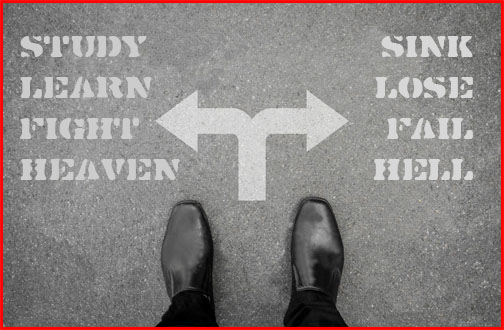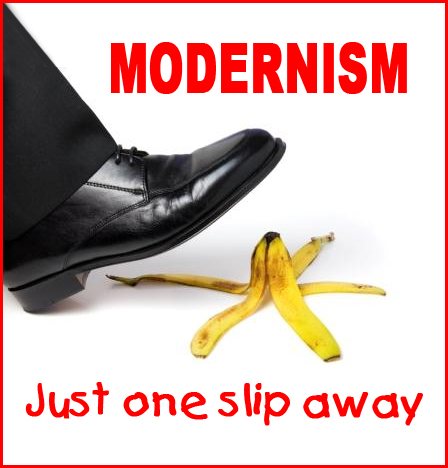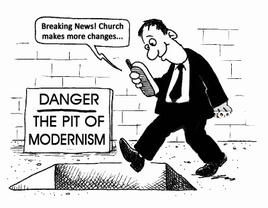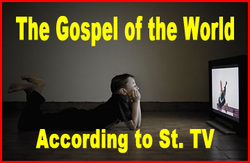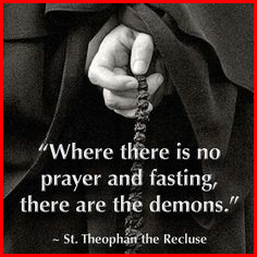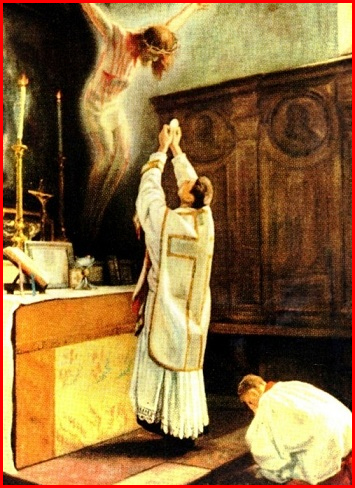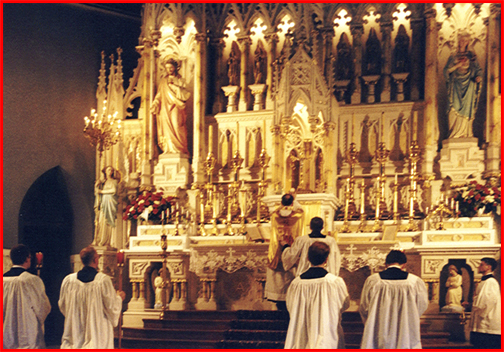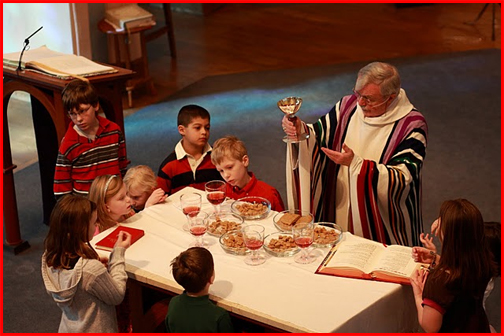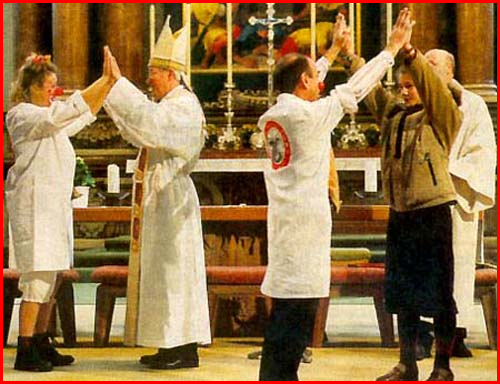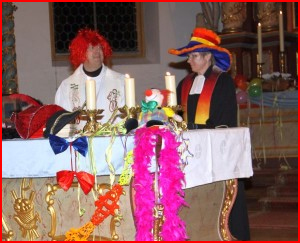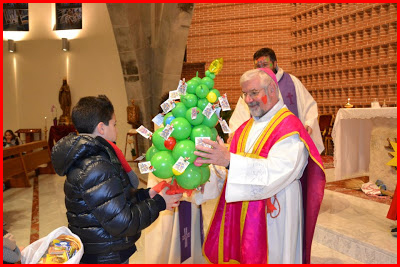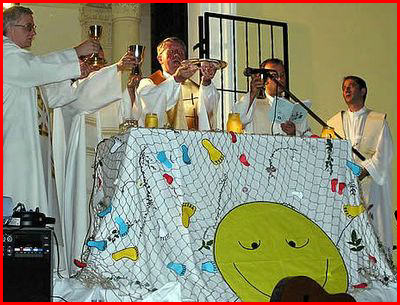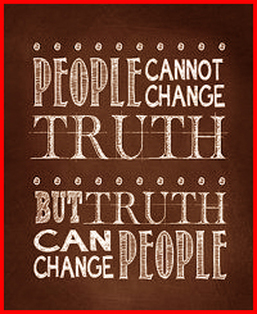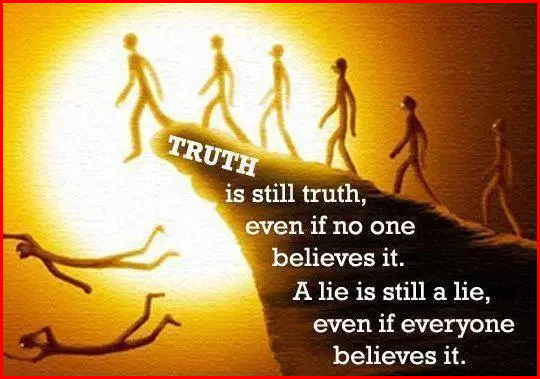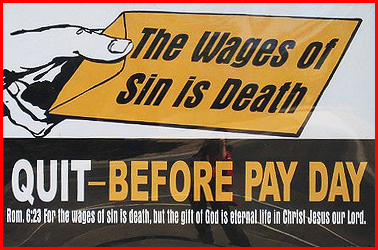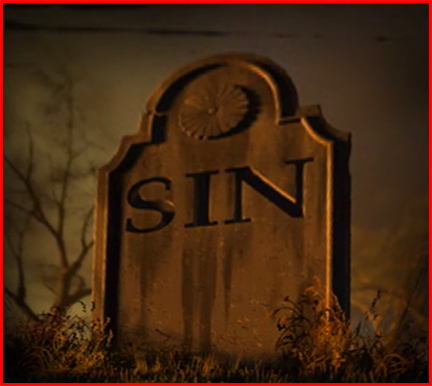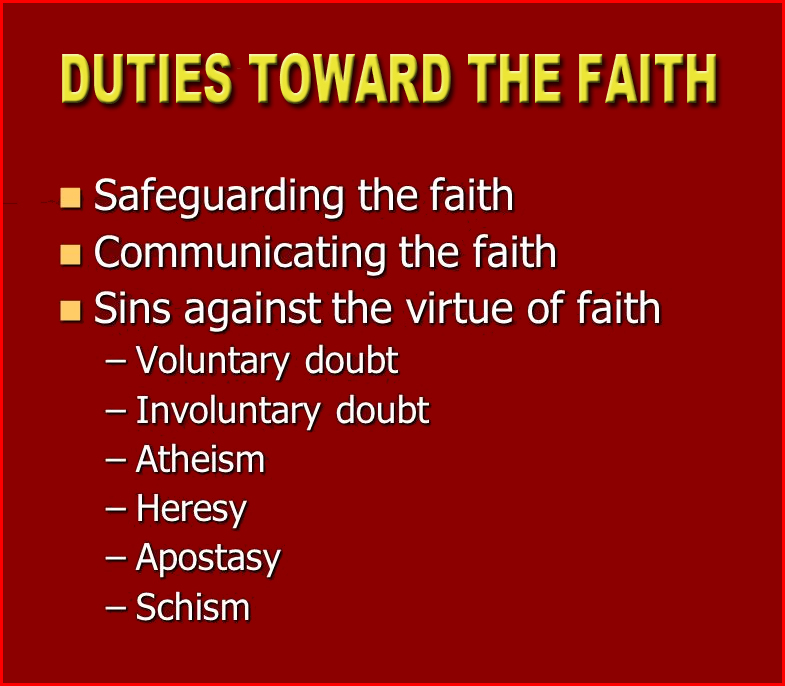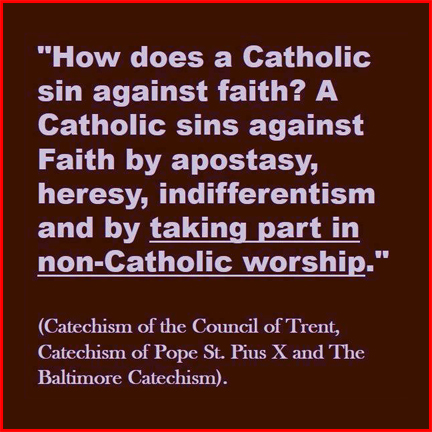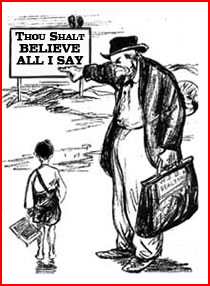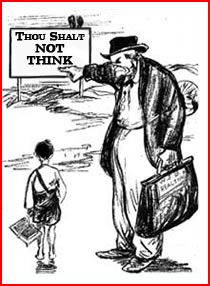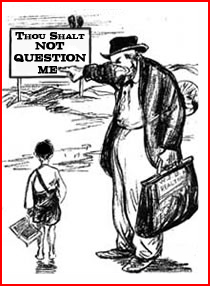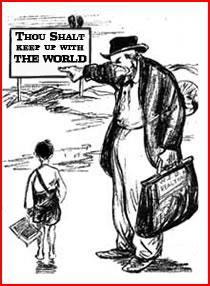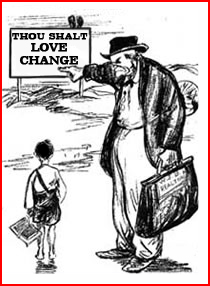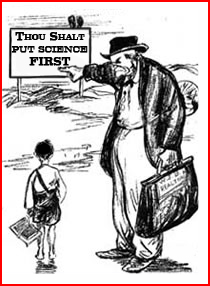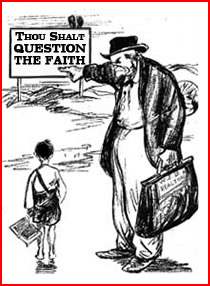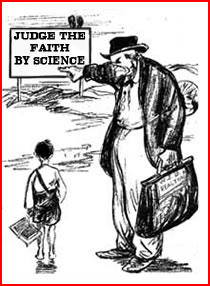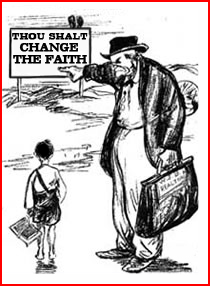| Devotion to Our Lady |
|
- Homepage
-
Daily Thoughts
- 2023 October Daily Thoughts
- Daily Thoughts Lent 2020
- Daily Thoughts for Advent 2019
- Daily Thoughts for October 2019
- Daily Thoughts for September 2019
- Daily Thoughts for August 2019
- Daily Thoughts for July
- Daily Thoughts for June
- Daily Thoughts for Easter 2019
- Daily Thoughts for Lent 2019
- Daily Thoughts for Christmas
- Daily Thoughts Easter 2022
- Sacred Heart
- Holy Ghost
-
Spiritual Life
- Holy Mass Explained
- First Friday Devotions
- First Saturday Devotions
- The Mercy of God
- Vocations
- The Path Everyone Must Walk >
- Gift of Failure
- Halloween or Hell-O-Ween?
- Ignatian Spiritual Exercises >
- Meditation is Soul-Saving
- Spiritual Communion
- Miraculous Medal
- Enrollment in Miraculous Medal
- St. Benedict Medal
- Holy Water
- Advice on Prayer
- Your Daily Mary
-
Prayers
- September Devotions
- Seven Sorrows of Our Lady
-
Novenas
>
- NV-Help of Christians
- NV-Nativity of Our Lady
- NV-Seven Sorrows
- NV- Sorrowful Heart
- NV-Pope St Pius X
- NV-La Salette
- NV-St Michael Archangel
- NV-Immaculate Heart
- NV-Assumption
- NV-Novena for Fathers
- NV-Novena for Your Mother
- NV-St Raphael Archangel
- NV-Souls in Purgatory
- NV-All Saints Day
- NV-Christ the King
- NV-Divine Motherhood
- NV-Guardian Angels
- NV-Rosary
- NV-Mirac Med
- NV- Imm Conc
- NV - Guadalupe
- NV - Nativity of Jesus
- NV-Epiphany
- NV-OL Good Success
- NV-Lourdes
- NV-St Patrick
- NV-St Joseph
- NV-Annunciation
- NV-St Louis de Montfort
- NV-OL Good Counsel
- NV-Last Supper
- NV-Passion
- NV-Pentecost
- NV-Ascension
- NV-Sacred Heart
- NV-Sacred Heart & Perpetual Help
- NV-Corpus Christi
- NV-OL of Perpetual Help
- NV-Queenship BVM
- NV-OL of Mount Carmel
- NV-St Mary Magdalen
- NV- Im Hrt
- August Devotions to IHM
- Immaculate Heart of Mary
- Litany of Dependence
- Prayers to St Mary Magdalen
- Prayers in Times of Sickness Disease & Danger
- Holy Souls in Purgatory
- Meditations on the Litany of Our Lady
- Special Feast Days
- Prayers to Mary (Mon-Sun)
- Litanies to Our Lady >
- Various & Special Needs
- Our Lady of the Rosary
- Our Lady of Mt. Carmel
- Our Lady of Perpetual Help
- Our Lady of Guadalupe
- Other titles of Our Lady
-
Rosary
- Downloads
- Consecration
- Easter Season
-
Holy Week
- Last Seven Words of Jesus >
- Characters of Passion >
- The Last Days of Christ
- Before Palm Sunday
- Palm Sunday
- Monday in Holy Week
- Tuesday in Holy Week
- Wednesday in Holy Week
- Holy Thursday (Last Supper)
- Holy Thursday (Agony & Arrest)
- Night Vigil with Christ
- Good Friday (Pilate & Herod)
- Good Friday (Way of Cross & Crucifixion)
- Saturday in Holy Week
-
Lent
- Ideas for Lent
- Daily Lenten Planner
- Daily Lenten Liturgy
- From Cold to Hot
- Lent with Aquinas
- Lent with Dom Gueranger
- Virtues for Lent
- History of Penance
- How Expensive is Sin?
- Confession of Sins
- Letter to Friends of the Cross
- Sermons for Lent
- Stations of the Cross >
- Lenten Prayers
- 7 Penitential Psalms
- Lenten Psalms SUN
- Lenten Psalms MON
- Lenten Psalms TUE
- Lenten Psalms WED
- Lenten Psalms THU
- Lenten Psalms FRI
- Lenten Psalms SAT
- Lenten Laughs
- Septuagesima
-
Christmas
- Epiphany Explained
- Suggestions for Christmas
- Food For Thought
- Christmas with Aquinas
- Christmas with Dom Gueranger
- Christmas Prayers
- Candles & Candlemas
- Christmas Sermons
- Christmas Prayers SUN
- Christmas Prayers MON
- Christmas Prayers TUE
- Christmas Prayers WED
- Christmas Prayers THU
- Christmas Prayers FRI
- Christmas Prayers SAT
- Twelve Days of Christmas >
-
Advent Journey
- Purgatory
- Christ the King
- Legion of Mary
- Scapular
-
Saints
-
Martyrs for the Faith
>
- Your Daily Martyr >
- All 365 Days of Martyrs
- Cristeros
- St Valentine & Valentine's Day
- Martyrs--Thomas Becket
- Martyrs--John the Apostle
- Holy Machabees
- Age of Martyrdom
- Carmelites of Compiegne
- Martyrs--Peter & Paul
- Martyrs--John the Baptist
- Martyrs--Andrew
- Martyrs--James the Great
- Martyrs--North American
- Martyrs--Seven Holy Sleepers
- Martyrs--Afra
- School of Martyrdom
- Martyrs--Christina
- Desert Saints >
- Saints for Sinners >
- Saints of Mary >
- History of All Saints Day
-
Martyrs for the Faith
>
- Precious Blood
- Synod 2023
-
Catechism
- Catechism Lesson 1
- Catechism Lesson 2
- Catechism Lesson 3
- Catechism Lesson 4
- Catechism Lesson 5
- Catechism Lesson 6
- Catechism Lesson 7
- Catechism Lesson 8
- Catechism Lesson 9
- Catechism Lesson 10
- Catechism Lesson 11
- Catechism Lesson 12
- Catechism Lesson 13
- Catechism Lesson 14
- Catechism Lesson 15
- Catechism Lesson 16
- Catechism Lesson 17
- Catechism Lesson 18
- Catechism Lesson 19
- Catechism Lesson 20
- Catechism Lesson 21
- Catechism Lesson 22
- Bible Study
-
Calendar
- Miracles
- Apparitions
- Shrines
- Prophecies
- Angels Homepage
- Hell
-
Church Crisis
- Conspiracy Theories
- Amazon Synod 2019 >
- Liberalism & Modernism
- Modernism--Encyclical Pascendi
- Modernism & Children
- Modernism--Documents
- The Francis Pages
- Church Enemies on Francis
- Francis Quotes
- Amoris Laetitia Critique
- Danger of Ignorance (Pius X)
- Restore all In Christ (Pius X)
- Catholic Action (Pius X)
- Another TITANIC Disaster?
- The "Errors of Russia"
- CRISIS PRAYERS
- Election Novena 2024
- The Anger Room
- War Zone
- Life of Mary
- Spiritual Gym
- Stupidity
- Coronavirus and Catholicism
- History & Facts
- Books
- Catholic Family
- Children
- Daily Quiz
-
Novena Church & Pope
- Day 01 Church-Pope Novena
- Day 02 Church-Pope Novena
- Day 03 Church-Pope Novena
- Day 04 Church-Pope Novena
- Day 05 Church-Pope Novena
- Day 06 Church-Pope Novena
- Day 07 Church-Pope Novena
- Day 08 Church-Pope Novena
- Day 09 Church-Pope Novena
- Day 10 Church-Pope Novena
- Day 11 Church-Pope Novena
- Day 12 Church-Pope Novena
- Day 13 Church-Pope Novena
- Day 14 Church-Pope Novena
- Day 15 Church-Pope Novena
- Day 16 Church-Pope Novena
- Day 17 Church-Pope Novena
- Day 18 Church-Pope Novena
- Day 19 Church-Pope Novena
- Day 20 Church-Pope Novena
- Day 21 Church-Pope Novena
- Day 22 Church-Pope Novena
- Day 23 Church-Pope Novena
- Day 24 Church-Pope Novena
- Day 25 Church-Pope Novena
- Day 26 Church-Pope Novena
- Day 27 Church-Pope Novena
- Day 28 Church-Pope Novena
- Day 29 Church-Pope Novena
- Day 30 Church-Pope Novena
- Day 31 Church-Pope Novena
- Day 32 Church-Pope Novena
- Day 33 Church-Pope Novena
- Day 34 Church-Pope Novena
- Day 35 Church-Pope Novena
- Day 36 Church-Pope Novena
- Day 37 Church-Pope Novena
- Day 38 Church-Pope Novena
- Day 39 Church-Pope Novena
- Day 40 Church-Pope Novena
- Day 41 Church-Pope Novena
- Day 42 Church-Pope Novena
- Day 43 Church-Pope Novena
- Day 44 Church-Pope Novena
- Day 45 Church-Pope Novena
- Day 46 Church-Pope Novena
- Day 47 Church-Pope Novena
- Day 48 Church-Pope Novena
- Day 49 Church-Pope Novena
- Day 50 Church-Pope Novena
- Day 51 Church-Pope Novena
- Day 52 Church-Pope Novena
- Day 53 Church-Pope Novena
- Day 54 Church-Pope Novena
- Penance Novena
- Daily WeAtheR Forecast
THE CRISIS IN THE CHURCH
Click on any link below
| Church Crisis | Liberalism & Modernism | Modernism & Children | Encyclical on Modernism, Pascendi (Pius X) |
| Modernist Documents | The Francis Pages | Church Enemies on Francis | Francis Quotes |
| Amoris Laetitia Critiqued (Pope Francis) | Dangers of Ignorance (Pius X) | Restoring All Things In Christ (Pius X) |
Catholic Action (Pius X) | Syllabus of Errors (Pius X) | Syllabus of Errors (Pius IX) |
| Another Titanic Disaster | The "Errors of Russia" | Conspiracy Theories |
Other related links
THE 2019 PAN-AMAZON SYNOD OF BISHOPS
Rome, October 6th to October 27th
Click on any link below
| General Articles on the Synod | Amazon Synod Daily Updates | Synod Sequel | Pagan Idols Destroyed |
| The Instrumentum Laboris or Working Document of the Synod | The Final Document of the Synod |
| CCC Crazy Comments Critiqued |
Click on any link below
| Church Crisis | Liberalism & Modernism | Modernism & Children | Encyclical on Modernism, Pascendi (Pius X) |
| Modernist Documents | The Francis Pages | Church Enemies on Francis | Francis Quotes |
| Amoris Laetitia Critiqued (Pope Francis) | Dangers of Ignorance (Pius X) | Restoring All Things In Christ (Pius X) |
Catholic Action (Pius X) | Syllabus of Errors (Pius X) | Syllabus of Errors (Pius IX) |
| Another Titanic Disaster | The "Errors of Russia" | Conspiracy Theories |
Other related links
THE 2019 PAN-AMAZON SYNOD OF BISHOPS
Rome, October 6th to October 27th
Click on any link below
| General Articles on the Synod | Amazon Synod Daily Updates | Synod Sequel | Pagan Idols Destroyed |
| The Instrumentum Laboris or Working Document of the Synod | The Final Document of the Synod |
| CCC Crazy Comments Critiqued |
These articles are simplified so that children themselves can read and understand the dangers of Modernism
Article 49
MARY IS NO MODERNIST
This article is currently being written. Sections will be posted as they are completed. Please check back later.
Article 49
MARY IS NO MODERNIST
This article is currently being written. Sections will be posted as they are completed. Please check back later.
|
Our Lady Does Not Change
Our Lady is as old-fashioned as they come. Just as there is no change in God, likewise, Our Lady, who is the perfect human image of God, does not change. She cannot be wrong, and so have to change something. Nor can she do any better, and thus have to change for the better. Furthermore, she knows that God knows better than she does and so she follows the will of God in all things. Even though she is the greatest of all human creatures that God ever made—just like Lucifer was said to be the greatest of the angels that God had made—Our Lady does not rebel like Lucifer, nor does she seek independence like Lucifer, but she is totally dependent and happily dependent upon God. It is the Rationalist, the Liberal and the Modernist, who copy Satan and seek independence of mind and independence of action. Reminder! In Case You Forgot! Modernism is a child of Liberalism. Liberalism is a child of Rationalism. Rationalism places human reason and human thinking as the supreme authority. It states that each person’s mind or intellect is the sole and only judge of things. Such a person will not accept any other authority that does not seem “right” and “believable” to one’s own mind and reasoning. If you like, the first Rationalist was the devil, who thought that God’s command was not right—and so he rebelled with the famous cry of “I will not serve”! Liberalism, a child of Rationalism, puts the ideas and rules of Rationalism into action in its everyday actions, whether private or public; in the home, in the school, in the parish, in the community, in politics and religion. Where the Rationalist would say: “I can think what I want!”, the Liberal will say: “I can do what I want!” Again, the first Liberal was the devil, with his cry of “I will not serve”! Modernism, a child of Rationalism and Liberalism, operates exclusively in the Church. It brings to the Church the false ideas of “I can think what I want!” and “I can do what I want!” adding to them the cry of “I can believe what I want!” and “I will only keep the rules and commandments that I want to keep!” Once again, the devil was the first Modernist, placing his ideas, thoughts, desires and plans above those of God. The Modernist will not try to make the world accept the ways of God, but he will try to make God accept the latest fashions and ways of man. For the Modernist, truth can change. Therefore what we used believe before, might not have to be believed today or in the future. What was sinful in the past, might no longer be sinful in the future—if enough people believe it is no longer a sin. That is how we have more and more Catholics today believing in divorce and remarriage; believing also that all religions are acceptable and that they all lead to God; accepting homosexuality and same-sex marriages; accepting abortion, etc. |
These articles are simplified so that children themselves can read and understand the dangers of Modernism
Article 48
UNTANGLING YOURSELF FROM MODERNISM
Article 48
UNTANGLING YOURSELF FROM MODERNISM
|
Having a Disease
Without Knowing It
Most people are carrying diseases that they are not even aware of—they will only realize that they have the disease once it has reached a dangerous level. They may feel early symptoms, but they “explain them away”, pretending or hoping that it is “just nothing” and that it will go away by itself. Cancer is one of those diseases. We all carry cells in our body that are potential cancer cells. It only needs the right environment, that is created by our bad habits of eating and lacking exercise, to blossom in to a full-fledged cancer. The same is true of heart disease and the causes are usually the same—bad eating habits and little exercise. Cancer and heart disease are the two top killers in the Western world today. Disease of Liberalism and Modernism We can liken Liberalism and Modernism to cancer and heart disease—they are the two top ‘damners’ of today. Everyone carries around in their soul the potential cells of Liberalism and Modernism—they are a consequence of Original Sin. Given the right environment—Liberal or Modernist family members, friends, teachers or fellow workers—those cells will grow in to the disease of Liberalism and Modernism. Most souls end up in Hell because of Liberalism and Modernism—and, as Jesus and many saints say: Most souls are damned. You might not like that truth. You might question that truth. You might dispute that truth. You might reject that truth. But it is the truth and nobody, not even you, can change the truth. Not that Jesus wants them to be damned—but it is their deliberate refusal to follow the instructions of Jesus that damns them. They think that they can do what they want and end up being saved. They find out too late that they were wrong. Liberalism and Modernism is all about refusing instructions and doing what you want to do. Nobody Will Tell You This Because It Is Not Popular Nobody wants to be a spoilsport and nobody likes to rock the boat. Bishops, priests, parents and teachers will avoid telling you unpleasant things for fear of losing your ‘friendship’! Yet they don’t think of the eternal consequences of doing so! How many souls are in Hell today because nobody warned them about certain behaviors, nor corrected them if they fell into those behaviors. I would hope that most priests, parents and teachers will warn you about mortal sins and teach you which sins are mortal. But how many warn and correct you about venial sins? It is venial sins that are the spiritual ‘cancer’ cells that potentially grow into mortal ‘cancer’ cells. Get used to committing lots of venial sins, and the smallest of mortal sins is only a step away. Pope St. Pius X on Modernists Priests, parents and teachers would do well to pay attention to the words and attitude of Pope St. Pius X. Replying to someone who begged him (Saint Pius X) to “go soft” on the Modernists, the Pope retorted: “Kindness is for fools! They want them [Modernists] to be treated with oil, soap, and caresses, but they ought to be beaten with fists! In a duel you don't count or measure the blows, you strike as you can! War is not made with charity, it is a struggle, a duel. If Our Lord were not terrible, He would not have given an example in this too. See how he treated the Pharisees, the sowers of error, the wolves in sheep's clothing, the traitors in the Temple. He scourged them with whips!” Too Soft! We really are too soft! Too soft on ourselves and too soft on those who are deliberately, or indeliberately, destroying our Faith. Our enemies make themselves “cute” and likeable. We don’t have the heart to fight them off. That we why we get ourselves entangled in their traps and snares. Even those traps and snares are made to feel comfortable and likeable! |
These articles are simplified so that children themselves can read and understand the dangers of Modernism
Article 47
SUMMERTIME PROOFS
Article 47
SUMMERTIME PROOFS
|
Time On Your Hands
Summertime is here. It is a time when you have more time on your hands than you do during the school year. What do you do with that time? When we have time on our hands, we usually like to do things that we love to do—if that is possible. Our free-time, spare-time or down-time will usually show up what we really love. It might not always be actions, it might not always be words, it might just be thoughts or things that we look at. But when given free-time, we will, if possible, head for what we love the most. Check at the Check-Out It is like releasing some people in a supermarket, or Walmart or a Mall and saying to them: “You’ve got just three minutes to put into your cart whatever you want! Everything is free, you don’t have to pay a cent!” Everybody would rush off in different directions, depending on what was important to them—some might go for food, or candy, or drinks; others might head to the electronics department; others might run to the clothing section; others to the hardware aisles. After those three minutes, no two carts would contain exactly the same things—their contents would be more or less different, depending on what each person thought was important to them and what they liked the most. Check This Out! Jesus loves you. Do you love Jesus? Don’t just give an automatic response—“Yes, sure I do!” If you truly love Jesus, what is the proof of your love? True love cannot be hidden! True love is pretty obvious to anybody; it is expressed in words and actions. And actions speak louder than words! Anybody can say they love God, but how many can prove it? It is not enough to sing and say that you love God; you must also put action to it. Our Lord, Himself, ‘shoots-down’ the mere saying that we love Him, when He complains: “Well did Isaias prophesy of you hypocrites, as it is written: ‘This people honors Me with their lips, but their heart is far from Me!’” (Mark 7:6). He expects more than just words—He expects deeds, He wants actions to prove it: “If you love Me, keep My commandments!” (John 14:15). In other words, don’t just say you love Me, prove it by keeping My commandments! Keeping the Commandments of God and His Church is no easy job today, when most people are not keeping them, but breaking them! Yet, as St. Paul said of the Chosen People, “with most of them, God was not well pleased!” (1 Corinthians 10:5). Did not Jesus tell us that most souls would not follow Him, and that they would be lost? “Enter ye in at the narrow gate: for wide is the gate, and broad is the way that leadeth to destruction, and many there are who go in thereat. How narrow is the gate, and strait is the way that leadeth to life: and few there are that find it!” (Matthew 7:13-14). “Not everyone that saith to Me: ‘Lord! Lord!’ shall enter into the Kingdom of Heaven: but he that doth the will of My Father Who is in Heaven, he shall enter into the Kingdom of Heaven. Many will say to Me in that day: ‘Lord! Lord! Have not we prophesied in Thy Name, and cast out devils in Thy Name, and done many miracles in Thy Name?’ And then will I profess unto them: ‘I never knew you! Depart from Me, you that work iniquity!’” (Matthew 7:21-23). ‘Divorced’ Catholics You will have often met people who claim to love God, but their words and especially their actions say otherwise. They say they love God, but they can’t prove it—they fail to prove it! True love of God is not worldly, it is not self-seeking, it is not half-hearted, but it desires to please whom it loves. If you love God you will long to do what pleases Him all the time, not just some of the time—and that some of time is often filled with complaints. Jesus, our perfect example, loved God and loved man—even the sinner—and He proved it by His actions. He did nothing for His own benefit. It was for God and for man all the time. He burnt Himself out in His love for God and man. And, of course, all the way to Calvary, He went and died for man. He was wounded for our transgressions and sins; He was bruised for our iniquities: the chastisement of our peace was upon Him; and with His stripes we are healed – says Isaias 53:5. You can’t love someone and the person will not know it, because if you truly do love them, you will unmistakenly show it. God, too, knows if you really love Him and when you really love Him, because your words and especially your actions will express it. So, how will God know that you truly love Him? The foundation of love of God has to be obedience. Obedience Your obedience to God and His words is the “number one” piece of evidence of your love for Him. Christ Himself said, “If you love Me, keep My Commandments.” You can’t love God and be disobedient to His commands. God cannot be mocked, He who made ears and eyes can certainly hear and see the things that you do. Jesus proved His love for His Father by obeying all His instructions, even to death on the cross: the most shameful death of His time, (Philippians 2:8, Galatians 3:13). He judged as He heard from His Father because He was seeking the will of His father who sent Him (John 5:30). His primary task on Earth was to carry out the plan and purpose of God for man, which He completed successfully. At the end, He said, “It is finished” (John 19:30). God demands that you obey Him absolutely, not just when it is convenient for you. He showed an example for us by sacrificing His only Son—Our Lord Jesus Christ. And, on the cross, for the first time, He seemed to turn His back upon His son because of your sin and mine (Matthew 27:46). It certainly was not convenient for God, but He did it for the love He has for you and me. Total Obedience, Not Halfway Obedience Therefore, your obedience must be total. God will not accept half commitment from you, which is why He said He prefers you being cold or hot and not lukewarm. Christ will not condone a lukewarm service; He will spew you out of His mouth if you are lukewarm (Apocalypse 3:15-16). As Our Lord Himself said to Mother Mariana de Jesus Torres (to whom Our Lady of Good Success also appeared): “If men would only realize how greatly I am wounded and displeased with the coldness, indifference, lack of confidence and small inveterate imperfections on the part of those who so closely belong to Me ... But I will not tolerate this! Halfway measures are not pleasing to Me! I desire all or nothing! — according to My example, for I gave of Myself to the last drop of Blood and Water from My shattered Body on the Cross. Moreover, I have continued to live in the Tabernacle under the same roof with these hidden souls, exposing Myself to so many hateful profanations and sacrileges! For I know well all that takes place in My sacramental life! ... Woe to souls like this! Woe!” This summer, you have more time on your hands than you do throughout the course of the school year. Make time for God. Otherwise you are telling Him that He is unimportant or not important enough to you. If you do that, you might well find God telling you that you are not important to Him, or not important enough for Him to let you into Heaven. “Everyone therefore that shall confess Me before men, I will also confess him before My Father Who is in Heaven. But he that shall deny Me before men, I will also deny him before My Father Who is in Heaven” (Matthew 10:32-33). |
These articles are simplified so that children themselves can read and understand the dangers of Modernism
Article 46
PLAY OR PRAY?
Which is Most Important? Which Do You Do the Most?
Article 46
PLAY OR PRAY?
Which is Most Important? Which Do You Do the Most?
|
Which is Most Important—to Play or Play?
In a certain sense, there are two answers to this question. In theory, we will of course say that praying is more important. However, it is our practice that will condemn us, as it will answer: “I always thought playing was most important, because that is what you try to do most of the time!” And shamefully and embarrassingly, we will have to bow our heads and admit the truth—even though we know in our minds that praying is more important, it is not that which we do! Instead, playing finds more time in our heart and our day. Playing is more fun than praying—and that is why it ends up being Number One in practice, even though praying might be Number One in theory. A Saint Who Played St. Aloysius Gonzaga, born in 1568 and who died age 23 in 1991, was once playing ball with others, when the tutor asked them--“If end of world came right now, what would you do?” One child said that they would go to Confession immediately; another said they would run to the Blessed Sacrament in the chapel for protection; but Aloysius said that he would happily keep on playing—because it was his duty of state for that particular moment in time. An admirable answer and true. For someone as good as he was, that would work fine—but for someone in a state of sin, Confession is by far the better idea! Besides, St. Aloysius did not mean that playing is better than going to Confession or to visit the Blessed Sacrament—because he would also do those things and do them better than most other children—but that each moment of the day has a duty and we please God if we do that duty instead of doing something else. The Place of Playing The reply of St. Aloysius is echoed in the Bible. Everything has its time and place—as the Bible tells us: “All things have their season, and in their times all things pass under heaven. A time to be born and a time to die. A time to plant, and a time to pluck up that which is planted. A time to kill, and a time to heal. A time to destroy, and a time to build. A time to weep, and a time to laugh. A time to mourn, and a time to dance. A time to scatter stones, and a time to gather. A time to embrace, and a time to be far from embraces. A time to get, and a time to lose. A time to keep, and a time to cast away. A time to rend, and a time to sew. A time to keep silence, and a time to speak. A time of love, and a time of hatred. A time of war, and a time of peace” (Ecclesiastes 3:1-8). Today, we could paraphrase that and, from the perspective of a child, say: “All things have their season and all things must be done that lead to Heaven. There is a time to pray and a time to play. A time to cry [over sin] and a time to laugh [with joy at being in God’s grace]. A time of plenty and a time of penance. A time to enjoy and time to abstain. A time to talk and a time for silence. A time for work and a time for rest. A time of peace from temptation and a time of fighting temptation. A time of being with others and a time of fleeing others, etc., etc.” Coming Back to Aloysius “Oh, but he was a saint!” you may say, “I am no saint!” Well, neither was Aloysius a saint—he had more in common with you than you might think! He started out as spoilt rich kid, who was born into violence and wealth, and was an heir to the Visconti, Sforza and d’Este families who ruled the Lombardy region of Italy. His father expected Aloysius, who was his eldest son and heir, to become a soldier. But, at the age of seven, Aloysius had a deep religious experience. It changed his life and shaped the remainder of his life—much like the three children at Fatima. Aloysius began to pray much and to perform severe penitential practices as young child. When the time came for him to enter religious life, he chose the Jesuits, in part because of their commitment to poverty and fraternal equality. His family name or wealth would not matter. So, he gave his all inheritance to his younger brother and joined the Society of Jesus. When plague came to Rome in 1591 Luigi worked in the Jesuit hospital, doing the worst and lowest work. He went out into the streets, searching for untended and abandoned plague victims, carrying them on his back to the sanctuary of the hospital. Luigi, too, caught the plague, and, at the age of 23, he died on the Feast of Corpus Christi. He went from being a spoilt brat to becoming a bright saint! The same must happen to you—because it is ONLY saints who go to Heaven. Amusements Don’t Lead to Heaven At La Salette, Our Lady complained that there would come a time when “People will think of nothing but amusement!” She is therefore not showing approval for too much playing, fun and amusement. To St. Bernadette at Lourdes, she said: “I do not promise to make you happy in this life, but in the next!” The Angel of Portugal at Fatima, similarly, did not approve of the three children playing at the expense of playing. On one occasion, when he appeared to them, they were playing. The angel scolded them, saying: “What are you doing? Don’t play but pray! … . Offer prayers and sacrifices continually to the Most High” (Angel of Portugal, Fatima, summer of 1916). Our Lady reiterated this during her apparitions at Fatima, in 1917: “Pray! Pray very much!” At Akita in 1973, Our Lady echoes this: “Continue to pray very much...very much! … Prayer, penance and courageous sacrifices can soften the Father’s anger … Pray very much the prayers of the Rosary.” Pray Much and Pray Constantly Playing your way to Heaven sounds like fun, but it is not what Jesus wants or recommends. Pray without ceasing; pray and faint not is what the Bible says: “And Jesus spoke also a parable to them, that we ought always to pray, and not to faint” (Luke 18:1). “Pray without ceasing” (1 Thessalonians 5:17). “I desire therefore that men pray in every place” (1 Timothy 2:8). “I will praise Thy Name continually” (Ecclesiasticus 51:15). “We will give ourselves continually to prayer” (Acts 6:4). “Prayer was made without ceasing” (Acts 12:5). “By all prayer and supplication praying at all time” (Ephesians 6:18). “The continual prayer of a just man availeth much” (James 5:16). Gems from Our Lady on Prayer This reminds us of what Our Lady said to St. Catherine Labouré when she showed her the Miraculous Medal. Our Lady had beams of light streaming from the jeweled rings on her fingers. However, some of the rings gave off no rays of light. As St. Catherine was wondering why some jewels gave off no light, the Blessed Virgin turned her eyes on her and made her understand with what generosity and great joy she dispensed grace. But she indicated that there are graces for which she is not asked, and it is for this reason that some of the gemstones did not send forth rays of light: “These rays symbolize the graces I shed upon those who ask for them. The gems, from which rays do not fall, are the graces for which souls neglect to ask.” It is through prayer that we ask—those who neglect to pray, neglect to ask. St. Alphonsus Liguori says that “He who prays most receives most.” Prayer Vital for Life St. Augustine tells us that “As our body cannot live without nourishment, so our soul cannot spiritually be kept alive without prayer,” while St. John Chrysostom says “It is simply impossible to lead, without the aid of prayer, a virtuous life.” We sin so much because we pray so little—if we would only pray much more, we would sin much less. Prayer is perhaps the most important ingredient of our cure for sin. If it is true that we can do nothing without God’s help—“Without Me, you can do nothing!” (John 15:5)—then we have to ask for His help in all things. Even though “your Father knoweth what is needful for you, before you ask Him” (Matthew 6:8), this does not mean that God will give what is needful WITHOUT our asking Him: “Ask, and it shall be given you: seek, and you shall find: knock, and it shall be opened to you” (Matthew 7:7). “And in all things whatsoever you shall ask in prayer, believing, you shall receive” (Matthew 21:22). |
These articles are simplified so that children themselves can read and understand the dangers of Modernism
Article 45
USE IT OR LOSE IT!
Article 45
USE IT OR LOSE IT!
|
Nothing New Under the Sun!
Though we might think the phrase “Use it, or lose it!” is a modern thing, Our Lord actually spoke a parable wherein He says the same thing, but not exactly in the same words: A man going on a journey, who called his servants and entrusted to them his property. To one he gave five talents (millions of dollars in today’s money), to another two talents, to another one talent, giving to each person according to his ability. Then he went away. He who had received the five talents went at once and traded with them, and he made five talents more. The one who had received two talents, also made two talents more. But he who had received the one talent went and dug a hole in the ground and buried his master’s money. Now after a long time the master of those servants came and settled accounts with them. He who had received the five talents came forward, bringing five talents more, saying, “Master! You gave me five talents! Here! I have made five talents more!” His master said to him: “Well done, good and faithful servant! You have been faithful over a little; I will set you over much! Enter into the joy of your master!” And he who had the two talents came forward, saying: “Master! You delivered to me two talents! Here! I have made two talents more!” His master said to him: “Well done, good and faithful servant! You have been faithful over a little; I will set you over much! Enter into the joy of your master!” He who had received the one talent came forward, saying: “Master! I knew you to be a hard man, reaping where you did not sow, and gathering where you scattered no seed! So I was afraid and I went and hid your talent in the ground! Here you have what is yours!” And he gave his master back the one talent he had received from him. But his master answered him: “You wicked and lazy servant! You knew that I reap where I have not sown and gather where I scattered no seed! Then you ought to have invested my money with the bankers, and, at my coming I should have received what was my own, with additional interest as profit!” Then he said to his other servants: “Take the talent from him and give it to him who has the ten talents! For to everyone who has will more be given, and he will have an abundance. But from the one who has not, even what he has will be taken away! And cast the worthless servant into the outer darkness. In that place there will be weeping and gnashing of teeth!” (Matthew 25:14-30). What Did the Servant Lose? How much, in today's money, was a talent? The Hebrew word for "talent" was kikkār, meaning a round gold or silver disk, or disk-shaped loaf. The word “talent” comes to us from the Greek language and the word tálanton, which was a large monetary measurement equal to 6,000 drachmas or denarii, the Greek and Roman silver coins. The talent was the heaviest or largest biblical unit of measurement for weight, equal to about 75 pounds. Thus, a talent represented a rather large sum of money. According to some scholars, the man who was given five talents of gold or silver would be a multimillionaire by today's standards. Some calculate the talent in the parables to be equivalent to 20 years of wages for the common worker. Other scholars estimate more conservatively, valuing the New Testament talent somewhere between $1,000 to $30,000 dollars today. So five talents would be $150,000. Whichever scholars you wish to believe, those who say that they were given thousands or those who say it was millions, it doesn’t change the fact that each of the three servants were given a very large sum of money to do something with it. You’ve Been Give More Than Millions! Does that sound far-fetched? Nope! Your Faith is the most valuable thing you will ever have or experience in this life. The same is true for any and all Catholics! Yet, just a like person might not recognize a rough diamond, or raw silver, there are many who do not see and recognize the beauty and preciousness of the Faith. You can have all the money in world, but it won’t buy you Heaven—in fact, Our Lord seems to say quote the opposite: “Then Jesus said to His disciples: ‘Amen, I say to you, that a rich man shall hardly enter into the Kingdom of Heaven! And again I say to you: It is easier for a camel to pass through the eye of a needle, than for a rich man to enter into the Kingdom of Heaven!’” (Matthew 19:23-24). St. Peter adds: “That … your faith, much more precious than gold which is tried by the fire, may be found unto praise and glory and honor at the appearing of Jesus Christ” (1 Peter 1:7). Do Not Bury Your Faith! Your Faith is the most precious thing—apart from God Himself—that you can possess: “Without Faith it is impossible to please God” (Hebrews 11:6). Yet Faith is not something to be buried—it is something that must be used: “What shall it profit, my brethren, if a man say he hath Faith, but hath not works? Shall Faith be able to save him? Faith, if it have not works, is dead in itself. Show me thy Faith without works; and I will show thee, by works, my Faith. Thou believest that there is one God. Thou dost well: but the devils also believe and tremble. But wilt thou know, O vain man, that Faith without works is dead? Do you see that by works a man is justified; and not by Faith only? For even as the body without the spirit is dead; so also Faith without works is dead” (James 2:14-26). Count Your Blessings and Watch Your Step! These comments of St. James, dovetail perfectly with Our Lord’s Parable of the Talents. If the master was angry with the servant for not using what had been given to him, then God will be angry with you if you do not use the Faith that He has so kindly and mercifully given you—you are one out seven people with the Faith. Six out of seven do not have the Faith, but you do! You are not like the man who was given one talent, nor are you like the man who was given two talents—you have been given the five talents! To whom more is given, more is expected—and he who has been given more, will be judged more severely: “That servant who knew the will of his lord, and prepared not himself, and did not according to his will, shall be beaten with many stripes. But he that knew not, and did things worthy of stripes, shall be beaten with few stripes. And unto whomsoever much is given, of him much shall be required: and to whom they have committed much, of him they will demand the more” (Luke 12:48). Start Using Your Faith Before You Lose Your Faith In the Parable of the Talents, he, who hid his talent, ended up having his talent taken from him. If we neglect to use the tremendous and precious gift that God has given us in the shape of the Faith, then we are telling God that we do not rate the Faith very highly. God will then judge that He has cast His pearls before swine and will allow us to lose that precious Faith because of our being unworthy to possess it. As Jesus said: “Give not that which is holy to dogs; neither cast ye your pearls before swine, lest perhaps they trample them under their feet!” (Matthew 7:6). We could slightly paraphrase another quote of Our Lord’s and say: “For he that hath [used the Faith well], to him shall be given, and he shall abound: but he that hath not [used the Faith well], from him shall be taken away that also which he hath” (Matthew 13:12). In other words--“Use the Faith, or Lose the Faith!” That means: start studying the Faith—read the Bible, read and review your Catechism; read Church history; read spiritual books on how we are to live in order to get to Heaven; pray more—especially more Rosaries; go to Mass more often and make more visits to the Blessed Sacrament; make better preparations for Holy Communion and better thanksgivings afterwards; start making yourself less worldly; do penance for your past sins and perhaps make a good General Confession—especially if you have fudged, twisted and lied in any past confessions. The bottom line is TAKE YOU FAITH SERIOUSLY and you will avoid serious consequences the day you die and appear before the God that gave you His precious Faith to use and profit from. Faith without works is dead! How dead or alive is your Faith? |
These articles are simplified so that children themselves can read and understand the dangers of Modernism
Article 44
D'YA WANNABE INDEPENDENT?
This article is currently being written. Sections will be posted as they are completed. Please check back later.
Article 44
D'YA WANNABE INDEPENDENT?
This article is currently being written. Sections will be posted as they are completed. Please check back later.
|
"Free! Free! I Wannabe Free!
This modern age has become an age of INDEPENDENCE. Yet there is can be no real independence for a creature of God's. Everything depends upon God for its existence and preservation. If we were to REALLY become TOTALLY INDEPENDENT, then we would cease to exist. We would simply vanish. Everything was ultimately made by God (or God made the raw materials that we merely re-arrange when we say that we "MAKE" something, but we are only using things that God has made, without them we could do nothing! The Bible tells us that "“In the beginning was the Word, and the Word was with God, and the Word was God. All things were made by Him: and without Him was made nothing that was made” (John 1:1-2). Our Lord Himself, the Word made Flesh, repeats this idea when He says: “Without Me, you can do nothing!” (John 15:5). Dependence versus Independence God wants us to be dependent and the world wants us to be independent. Why is this? How is this? Well, remember one thing—independence leads to sin. The first sin ever—even before the Original Sin of Adam and Eve—was the sin of Lucifer, the devil or Satan. The Fathers of the Church speak of Lucifer’s famous and fatal cry—“Non serivam!” or “I will not serve!”—before being cast down into Hell for his independence. The same happened to Adam and Eve, who took on the spirit of independence from Satan the serpent. They had been told by God not to eat a certain fruit—if they did so, then they were told they would die. Then the devil steps in with his false reasoning and lies. He persuades Eve to be independent—to do what she thinks is right and not what God told her was right. So she did! She became independent! She ate the fruit! So did Adam! Just as it was with the devil, it all turned bitter and sour—we could say it was a bitter and sour fruit, one that looked good, but only brought bitterness. As independence led the devils to Hell, so too did independence lead Adam and Eve to death! As the Bible says: “Wherefore as by one man sin entered into this world, and by sin death; and so death passed upon all men, in whom all have sinned” (Romans 5:12). “For the wages of sin is death!” (Romans 6:23). “For the nation and the kingdom that will not serve Thee, shall perish!” (Isaias 60:12). Is Independence a Good Thing? In our physical life, we start out as babies―completely dependent upon our parents and other adults for our very survival. As we grow, we gradually become independent in various areas: we learn to dress ourselves, tie our own shoes, make meals, clean up after ourselves, learn how to drive, etc. However, even as we are becoming independent we learn that we are really interdependent (upon each other)―we wouldn’t last all that long all by ourselves! You may know how to do many things by yourself, but you cannot give yourself dental fillings or a crown for your tooth—you have to depend upon a dentist. You cannot do surgery on yourself—you have to depend upon a doctor. In legal matters you depend on an attorney. In some major electrical or plumbing matters—you have to depend upon an electrician or a plumber. In mortal sin, you cannot forgive and absolve yourself—you have to depend upon a priest. Likewise for Sunday Mass—you cannot say it yourself, again you need a priest. The list could go on and on. The point is this—there is no true independence. The best we can get is interdependence—which means depending upon one another. God created us as social beings and we need others. Isn’t it funny and weird that in a society that places such a high value on independence, that the most dreaded form of punishment is solitary confinement? When you are sent to your room for misbehavior and told to stay there all day—surely that must be Heaven on Earth, if we are talking about wanting to be independent! Financial Independence—Being “Well-Off” Overall, financial independence is something most people desire. In itself, it is not wrong, but it can be very dangerous. It can be a good thing if you use what you have according to the will of God and are able to avoid the pitfalls of financial ‘success’. What pitfalls, you might ask? I am sure there are more, but here are three possibilities: (1) Pride: We start to get a big ego and think more of ourselves than we ought to, which can lead to us making poor decisions ... and end very badly! We may even start to feel that we deserve all kinds of things because of our financial success—such as honor, fame, respect, power, the first place in many things. However, the word of God warns us: “Pride goeth before destruction: and the spirit is lifted up before a fall” (Proverbs 16:18). (2) Love of Money: Having money is very nice. It can buy us many pleasures and make life a lot easier and less stressful in many ways. But how does that match-up with God telling us to mortify ourselves and offer sacrifices. However, there have been cases where money and wealth changed peoples attitude from “loving people and using money” to “using people and loving money”! The Bible says: “For the desire of money is the root of all evils; which some coveting have erred from the Faith, and have entangled themselves in many sorrows. But thou, O man of God, flee from these things” (1 Timothy 6:10-11). Hence the wisdom behind Our Lord’s words to the “financially independent” rich young man in the Gospels: “Jesus said to him: ‘Go sell what thou hast, and give to the poor, and thou shalt have treasure in Heaven: and come follow Me!’ And when the young man had heard this word, he went away sad: for he had great possessions. Then Jesus said to His disciples: ‘Amen, I say to you, that a rich man shall hardly enter into the Kingdom of Heaven! And again I say to you: It is easier for a camel to pass through the eye of a needle, than for a rich man to enter into the Kingdom of Heaven!’” (Matthew 19:21-24) and “Blessed are the poor in spirit: for theirs is the Kingdom of Heaven” (Matthew 5:3). (3) Independence: Isn’t it interesting that we hear so many stories of “self-made” people who have achieved financial success, yet are they really “self-made”? Not even God is “self-made”—He always was and always will be. Nobody can make anything good of themselves without God—as Jesus said: “Without Me, you can do nothing!” Nothing except sin, of course. Sinners can boast of being “self-made” men and women. Everything else that is good, DEPENDS on God and cannot be INDEPENDENT of God’s Divine Providence—which means what it sounds like: God provides. It seems that the more wealthy a society or a family is, the less they feel the need to be “dependent” on God ― which is a real shame, because it goes against the truth. Once again we read in the Bible: “Lest thou shouldst say in thy heart: ‘My own might, and the strength of my own hand have achieved all these things for me!’―remember the Lord thy God, that He hath given thee strength” (Deuteronomy 8:17-18). |
These articles are simplified so that children themselves can read and understand the dangers of Modernism
Article 43
THE MAJOR ERRORS THAT WE FALL FOR
This article is currently being written. Sections will be posted as they are completed. Please check back later.
Article 43
THE MAJOR ERRORS THAT WE FALL FOR
This article is currently being written. Sections will be posted as they are completed. Please check back later.
|
STILL NOT SURE?
THEN EXAMINE THINGS CLOSER! |
Ever Been Fooled?
Everybody has fooled at one time or another! Whether as an infant, or as a child, or even as an adult. Actually, the world is full of foolery and fools. There are those who fool and those who are fooled. There are two ways to be fooled—one is to accept what is not true, the other is to reject what is true. There are also different kinds of fools. Basically, it all comes to down to a lack of learning and knowledge, or being naïve and imprudent (which still can be blamed on a lack of learning and knowledge). “He that lacks understanding thinks vain things: and the foolish, and erring man, thinks foolish things” (Ecclesiasticus 16:23). “The mouth of a fool is his destruction: and his lips are the ruin of his soul” (Proverbs 18:7). In a sense, the fool fools himself—he does not need anyone else to fool him! “Wisdom is too high for a fool” (Proverbs 24:7). If you “know your stuff” then you won’t be fooled. That is why conmen usually target people who are naïve and clueless. “The wisdom of a prudent man is to understand his way: but the imprudence of fools leads down the paths of error” (Proverbs 14:8). Fake, Superficial, Dumb World The world has become so fake and superficial that the knowledge of most people is very shallow indeed. You cannot sail a ship into shallow waters, for it will run aground and shipwreck. The same is true for the ship of the Faith. Your waters of knowledge have to be deep if you are to avoid running aground on heresies, false opinions, and flimsy knowledge. There are many who are full of opinions, but without any or much learning. They do not think things through before they speak, they just open their mouth and speak without thinking much about what they are saying. To anyone who has deep knowledge, these persons “stick-out like a sore thumb” and are easily spotted, rejected and avoided. But to someone whose knowledge is shallow, these kinds of persons—those who speak without thinking—can seem to be intelligent and worthy of belief. Learn Your Lesson! Don’t Be Fooled! Being fooled once does not always mean that you are a fool, but being fooled in the same way, again and again, will make a fool out of you. Hence the proverb: “Fool me once—shame on you! Fool me twice—shame on me!” Our Lord and the Bible warn us against being fooled too easily. “Therefore let not [others] deceive you, nor delude you with a vain persuasion, and do not believe…” (2 Paralipomenon 32:15). “Now I beseech you, brethren, to mark them who make dissensions and offences contrary to the doctrine which you have learned, and avoid them. For they that are such, serve not Christ our Lord, but their own belly; and by pleasing speeches and good words, seduce the hearts of the innocent” (Romans 16:17-18). Or, as a more modern translation puts it: I urge you, brothers and sisters, to watch out for those who cause divisions and put obstacles in your way that are contrary to the teaching you have learned. Keep away from them. |
These articles are simplified so that children themselves can read and understand the dangers of Modernism
Article 42
ARE YOU FLUNKING THE FAITH?
Article 42
ARE YOU FLUNKING THE FAITH?
|
What’s Your Grade
Going To Be?
In school, some subjects are given more importance than others. If your school is a Catholic school, then Religion SHOULD be the most important subject—but, these days, sadly it isn’t. The only thing that REALLY MATTERS is the exam that you will have to take on you DAY OF JUDGMENT. The grade you get in that exam will decide your eternity. If you fail, you fall—you fall right into Hell. If you pass, then you pass through the Pearly Gates into Heaven. There is no chance of retaking that exam. It is a ONCE ONLY exam. The pass mark does not change―it always was and will be the same. The pass mark is high and, as the saints say, most of those who do not fail, have to go to “Remedial School” which is Purgatory. Our Lady Gives A Poor Report Already a long time ago, Our Lady saw that there would be a lot of ‘flunkers in the Faith’ in our times. She warned that “The effects of secular education will increase … The Christian spirit will rapidly decay, extinguishing the precious light of Faith, until it reaches the point that there will be an almost total and general corruption of morals … Innocence will almost no longer be found in children.” She says that during these times many “will rebel against the spirit of the Catholic Church” and “in these unhappy times, there will be unbridled luxury which will ensnare the rest into sin, and will conquer innumerable frivolous souls who will be lost.” She sadly speaks of the few who will not fail the test, referring to “the small number of souls who will preserve the treasures of the Faith and practice virtue.” The Few and the Many The Bible speaks of the “few” and the “many” on several occasions. God seems to prefer few, rather than the many. When Moses led God’s own Chosen People out of Egypt to the Promised Land, it seems as though most of them were getting “bad grades” with God, for the Bible tells that “with most of them God was not well pleased” (1 Corinthians 10:5), because they would not always keep God’s laws and were always grumbling and complaining about God’s way of doing things and the plans He had for them. Later, in the time of Gedeon, out of the army of 32,000 that Gedeon had assembled to fight the Madianites, but God said that was too many and that, if they won, they would take credit for the victory rather than giving all credit to God. So God finally chose only 300 out the 32,000. The rest had failed God’s test! In the time of Noe, almost the whole world failed the test! We don’t know how many people there were in the world at that time, but only 8 passed God’s test and made it into the Ark. The rest were drowned. The same is true for the Catholic Faith. Even though God wants to save all men, only 1 in 7 people in the world today are Catholic and with those Catholics, we can pretty much bet that “with most of them God is not well pleased.” This is backed up by Sister Lucia of Fatima, who said that these days, most souls are lost. Never have the words from the Bible been truer: “Many are called, but few are chosen!” Most fail to make the grade and flunk their Faith. Why Few and Not Many? The same is true in the world—whether in education, business, the military, sports or any other field. Very few make it to the top. It is not so much because people don’t have equal chances—it more a case of most people not really wanting to put in the effort it takes to get to the top. Most people are mediocre and mediocre people cannot get into Heaven: “The Kingdom of Heaven suffereth violence, and the violent bear it away!” (Matthew 11:12). The Catholic may live in the world, but the Catholic must live apart from the world. It is a case of “kill, or be killed.” The world, since the devil is its prince, is an enemy to God. Most things in the world are subtly stacked to harm the Faith. In the Old Testament, God was always warning His Chosen People to stay away from the pagan nations that surrounded them, for they would be contaminated by them. We see an instance of this in the case of King Saul, who was told by God to utterly and totally destroy the kingdom of Amalec―killing every man, woman, child and animal. Saul didn’t do this. Instead he spared what appeared to him to be the most beautiful. He flunked his test with God and God rejected Saul for ever more. This should be a lesson to us—if God says avoid the world, then He means avoid the world. Reject His word and He might well reject you just as He rejected King Saul. The world and how you react to it, is your test. Don’t flunk it! Saul Flunks His Test Big-Time “Thus says the Lord of hosts: ‘I have reckoned up all that [the kingdom of Amalec hath done to Israel! How they opposed them in the way when they came up out of Egypt. Now therefore go, and smite Amalec, and utterly destroy all that they have! Spare them not, nor covet anything that is theirs: but slay both man and woman, child and suckling, ox and sheep, camel and ass!’ … "And Saul attacked Amalec and he took Agag, the king of Amalec, alive: but all the common people he slew with the edge of the sword. And Saul and the people spared Agag and the best of the flocks of sheep and of the herds, and the garments and the rams, and all that was beautiful, and would not destroy them: but everything that was vile and good for nothing, that they destroyed. “And the word of the Lord came to Samuel, saying: ‘It repents Me that I have made Saul king: for he has forsaken Me, and has not executed My commandments!’ And Samuel was grieved, and he cried unto the Lord all night. And when Samuel rose early, to go to Saul in the morning, Samuel was told that Saul had come to Carmel, and had erected for himself a triumphant arch. And Samuel came to Saul, and Saul was offering a holocaust to the Lord, out of the choicest of the spoils which he had brought from Amalec. And when Samuel was come to Saul, Saul said to him: ‘Blessed be thou O prophet of the Lord, I have fulfilled the word of the Lord!’ [Saul thought he had passed the test!]. "And Samuel said: What then does this bleating of the flocks mean, which sounds in my ears, and the lowing of the herds, which I hear?’ And Saul said: ‘They have brought them from Amalec! For the people spared the best of the sheep and of the herds that they might be sacrificed to the Lord your God, but the rest we have slain!’ Samuel said to Saul: ‘Allow me to tell you what the Lord hath said to me this night. And Saul said to Samuel: ‘Speak!’ And Samuel said: ‘When you were a little one in your own eyes, were you not made the head of the tribes of Israel? And the Lord anointed you to be king over Israel! And the Lord sent you on the way, and said: “Go, and kill the sinners of Amalec, andyou shall fight against them until you have utterly destroyed them!” Why then did you not listen to the voice of the Lord? Why have you done evil in the eyes of the Lord?’ “And Saul said to Samuel: ‘Yes, I have listened to the voice of the Lord, and have walked in the way by which the Lord sent me, and have brought Agag, the king of Amalec, and the people of Amalec I have slain. But our people took of the spoils sheep and oxen, as the first-fruits of those things that were slain, to offer sacrifice to the Lord their God.’ “And Samuel said: 'Does the Lord desire holocausts and victims, and not rather that the voice of the Lord should be obeyed? For obedience is better than sacrifices: and to listen. rather than to offer the fat of rams. Because it is like the sin of witchcraft, to rebel: and like the crime of idolatry, to refuse to obey. Forasmuch therefore as you have rejected the word of the Lord, the Lord has also rejected you from being king!’ “And Saul said to Samuel: ‘I have sinned because I have transgressed the commandment of the Lord, and your words, because I feared my own people and obeyed their voice [the sin of human respect]. But now bear, I beg you, my sin, and return with me, that I may adore the Lord!' “And Samuel said to Saul: ‘I will not return with you, because you have rejected the word of the Lord, and the Lord has rejected you from being king over Israel!’ And Samuel turned about to go away: but Saul caught hold of the edge of his cloak, and it tore. And Samuel said to Saul: ‘The Lord has torn the kingdom of Israel from you this day, and has given it to your neighbor who is better than thee!’ [it would be David]. And Samuel said: ‘Bring hitherto me Agag, the king of Amalec!’ [A symbol of the world and worldliness]. And King Agag was presented to him very fat, and trembling. And Samuel said to Agag: ‘As your sword has made women childless, so shall your mother be childless among women!’ And Samuel cut him into pieces with the sword before the Lord. And Samuel departed and Saul went up to his house in Gabaa. And Samuel saw Saul no more till the day of his death” (1 Kings 15:2-35). |
These articles are simplified so that children themselves can read and understand the dangers of Modernism
Article 41
WHAT DO YOU READ?
This article is currently being written. Sections will be posted as they are completed. Please check back later.
Article 41
WHAT DO YOU READ?
This article is currently being written. Sections will be posted as they are completed. Please check back later.
|
Everybody Reads Something, But How Well?
In the western world, most people are able to read—illiteracy is fairly low, yet still shocking. According to a study conducted by the U.S. Department of Education, 32 million adults in the U.S. can’t read. That’s 14% of the population, or 7 out of 50 people. Of those who know how to read, 21% of adults in the U.S. (1 out of 5 adults) read below a 5th grade level, and 19% (1 out of 5) of high school graduates can’t read. For many it simply because they don’t want to read and don’t see the need, because we have gone back down to a kindergarten level, where pictures are more important than words. Going Backwards—Pictures Replace Words In these days of television, movies, internet, smartphones—which are all image or picture based—reading takes on a lesser importance for many people. Why read, when you can look at pictures instead! Today, we no longer live in a “word-based” society. We have changed into an “image-based” or “picture-based” society over the last few decades, and this has enormous implications for all of us. The world we live in today focuses on the headlines, the short-sound bite, and, at best, perhaps a short paragraph―yet that paragraph has to be at a 5th Grade student’s level, so that most people can understand it comfortably, without being confused. Superficial Knowledge Do you remember the old saying, “A picture is worth a thousand words”? Perhaps today a picture is worth 10,000, or 20,000, or 100,000 words―because words are cheap and no longer desired, the image has taken over and dumbed us down. This new reality that we all must deal with is, in part, due to a rapid development in technology that has led to an explosion of Internet usage, which is mainly image-based. Focusing on images or pictures and reading a headline or two means you will only skim the surface of any issue or topic. That is why we have so many stupid and ignorant Catholics today, because of an inability and lack of desire to do “deep study and deep thinking”—it simply overheats the brain! The Slow Death of Reading This leads us to another casualty and, perhaps, the greatest tragedy of all, is that reading is rapidly declining. Newspapers are practically dead thanks to the Internet. Studies have shown that young people between the ages of 15 to 24 read only 7 minutes a day. 70% (7 out of ten) of 13 year olds do not read daily. The less you read, the less you think, the less you know. This is seen by an inability by most people for a serious, in-depth discussion of anything—except perhaps sports, fashions, music, scandal and gossip. The Less You Read, the More You Will Be Controlled Where does all of this ultimately lead to? We are putting ourselves into a position where we can be more easily controlled and manipulated by today’s mass media culture. Believe me when I tell you this. If you are not willing to think for yourself and do your own research, someone else will be more than willing to tell you what to think. And that “someone else” is today’s media. The funny thing about images, which are nothing more than pictures, is that they are easily manipulated by skilled media makers. Advertisers for years have used these persuasive techniques to get us to buy their products. Most images, such as the flag (patriotism), family, home, nature, wealth and sports are buried deep within our subconscious and carry powerful symbolism and meaning to us. By rearranging various images on multiple media platforms, it’s possible to assign new meaning and feeling and create new belief systems around those images, which may or may not be true. Use It or Lose It! If you do not exercise your Faith, you will lose your Faith! It is as simple and as true as that! That is why most youngsters fall away from the Faith—it is because they did not use it enough and paid too little attention to it. If you do not pay attention to your physical fitness, you will lose it. If you do not pay attention in class and do not do your homework, you will fail the tests. If you do not pay attention to your friends, you will lose them. The same is true of the Faith and our friends in Heaven. Salvation is far more a serious business than passing exams or keeping fit. That is why St. Paul writes: “With fear and trembling work out your salvation!” (Philippians 2:12). The best sports coaches spend a lot of time studying their sport and its tactics and training methods. The best soldiers spend a lot of time studying tactics of war and training themselves in a wide variety of skills. The best students read far more than they are asked to read and willingly put in extra hours of reading in subjects they love. Do you love the Faith? Do you wish to save your soul? Do you want to come through the war of this life successfully? Then start reading and prove it! |
These articles are simplified so that children themselves can read and understand the dangers of Modernism
Article 40
WHAT'S STOPPING YOU?
Article 40
WHAT'S STOPPING YOU?
|
Paralysis of Body and Soul
How lucky we are to be healthy! Everyone gets sick from time to time, but most of us fairly health in all the major areas—we can talk, hear, see, walk, etc. Yet there are some people who are not so lucky and who are paralyzed in one way or another. It might be total paralysis, where none of the body parts can move; or partial paralysis, where only one or some body parts cannot be moved—for example, the arm or the leg. We call this paralysis of the body. But there is also a paralysis of the soul. This means that some or all parts of the soul are not moving in the way God made them to move. Since the soul is more important than the body, then paralysis of the soul (even though it less visible and less obvious) is a greater tragedy that paralysis of the body (which is clearly visible and easily seen). In the Gospels, Our Lord came across a paralytic by the Pool of Bethsaida (also called “Probatica”) in Jerusalem. He had been paralyzed for 38 years! Here is what the Gospel tells us about this event. “Now there is at Jerusalem a pond, called Probatica, which in Hebrew is named Bethsaida, having five porches. In these lay a great multitude of sick, of blind, of lame, of withered; waiting for the moving of the water. And an angel of the Lord descended at certain times into the pond; and the water was moved. And he that went down first into the pond after the motion of the water, was made whole, of whatsoever infirmity he lay under. And there was a certain man there, that had been eight and thirty years under his infirmity. Jesus knew that he had been there a long time and when He saw him lying there, Jesus said: ‘Do you want to be cured?’ The sick man answered Him: ‘Sir, I have no man to put me into the pond when the water is moved. For while I am going to the pond, another person gets there before me!’ Jesus said to him: ‘Arise! Take up thy bed, and walk!’ And immediately the man was cured and he took up his bed, and walked!” (John 5:2-9). “Afterwards, Jesus met him again in the Temple, and said to him: ‘Behold thou art cured! Sin no more, in case some worse thing happen to thee!’” (John 5:14). What Paralyzes Us? What are the things that paralyze or stop us on our road to Heaven? If you had to pick one thing that would be an umbrella for all the other things—then that one thing would be SIN. Whether it is Mortal Sin or Venial Sin, each one can paralyze us and stop us in our tracks. The other things that come under the umbrella of sin are things like fear, laziness, human respect, lukewarmness, lack of enough religious knowledge, lack of seriousness, distractions, worldliness, etc. What is Paralysis? The word “paralysis” comes from the Greek word that means a “disabling of the nerves”. Paralysis is the loss of muscle function in part of your body. It happens when something goes wrong with the way messages pass between your brain and muscles. Paralysis can be complete or partial. Paralysis can be accompanied by a loss of feeling (sensory loss) in the affected. If bodily paralysis is a loss of muscle function for one or more muscles, the we could also say that Spiritual Paralysis is the loss of spiritual muscle—which is VIRTUE—in one or more virtues. The word “virtue” comes from the Latin “virtus” meaning “courage or bravery; strength or power; manliness, virtue, character, or excellence.” These describe the spiritual muscle that we SHOULD have. Spiritual paralysis would mean a loss of quality or a loss of ease or ability in doing these things, or being like them. It happens when something goes wrong with the way messages or graces pass between God and your soul with its muscles (virtues). These messages or graces can come from God directly through inspirations and suggestions that come to our mind, or indirectly through the teaching of the Church, sermons, books we read, advice we are given, examples we see. Communication and Response Children respond differently to what they are taught at school. Some want to learn, others do not. Some study hard, some hardly at all. Some do extra work on their own, others don’t even do the work that they are supposed to do. Some pass their examinations with a high grade, others get an average grade, some fail. The same is true for the spiritual life—some do well and go to Heaven immediately after death; the average ones end up in Purgatory; and those that failed end up in Hell. Just as good, correct and powerful muscle-use depends upon a good communication between the brain and the muscle nerves, so too does sanctity depend upon a good communication between God and our soul. The Way of the Cross or The Way of Fun? Our Lord communicates to us the truth that if we want to get to Heaven, we have to take up our daily crosses with our spiritual muscles and follow Him to Heaven on the Way of the Cross: “And Jesus said to ALL [“all” means everybody, children included): ‘If any man will come after Me, let him deny himself, and take up his cross daily, and follow Me!’” (Luke 9:23). Yet most people—especially children—do not want the Way of the Cross! They want the Way of Fun! Denying yourself things is no fun. Leaving the world behind is no fun. Carrying a cross is no fun. Yet it is the only way to Heaven! “He that taketh not up his cross, and followeth Me, is not worthy of Me!” (Matthew 10:38). “And whosoever doth not carry his cross and come after Me, cannot be My disciple!” (Luke 14:27)—and therefore cannot follow Him into Heaven. |
These articles are simplified so that children themselves can read and understand the dangers of Modernism
Article 39
SO WHEN WILL YOU BEGIN?
Article 39
SO WHEN WILL YOU BEGIN?
|
It Starts At The Beginning!
We tend to put-off unpleasant tasks until later or tomorrow—but, as they say, “tomorrow never comes”! For many children, religion is unpleasant. They can think of a million other things to focus-on and do, instead of focusing-on and ‘doing’ religion. Some may think, “I’ll get more serious when I’m older!”—but the problem is that you form habits as a child that you cannot always shake as an adult. The Bible says: “A young man according to his way, even when he is old he will not depart from it” (Proverbs 22:6)—meaning that for better or for worse, you will follow the habits you acquired when you were young. Unless the grace of God miraculously steps-in to change things, if you had little time for God when you were a child, then you will have little time for God when you get older, and so you will have little chance of salvation. First of All, Seek God That is why the Bible also says things like: “Seek God first” … “Love God with your whole heart, mind, soul and strength” … “Love not the world nor the things that are in the world” … “Love not the world, nor the things which are in the world” ... “Know you not that the friendship of this world is the enemy of God? Whosoever therefore will be a friend of this world, becometh an enemy of God” (Luke 12:31; 10:27; 1 John 2:15; James 4:4). Either children have not read these passages, or have never been taught them, or they insanely think that these words do not apply to them and only apply to adults. You have to be a child and not act like an adult before your time. Yet NO CHILD is excused from loving God with their whole heart, mind, soul and strength. No child can be excused for being worldly. No child can be excused from not seeking God above all things. Even though the fault may lay in the lap of the child’s parents and teachers and priests, this does not remove the guilt of the child. It is true that a child does not teach itself and depends upon its parents and teachers—and woe betide them if they have not put all their energy into trying to make the child religious above being worldly, for parents and teachers should know these things. Yet if those parents and teachers are themselves worldly, what on earth can they give the child, except worldliness—for, as the saying goes, “You cannot give what you do not have.” Learn From the End of Others, What To Do in the Beginning Yourself If we see other people go down a path where they are bitten by poisonous snakes and spiders, then, unless we are crazy, we will not take the same path—not matter how beautiful the scenery might be! The same is true for the spiritual life. There is a passage in Fr. Schouppe’s book, Purgatory, that is worth thinking over. Here it is: “Souls that allow themselves to be dazzled by the vanities of the world, even if they have the good fortune to escape damnation, will have to undergo terrible punishment. Let us open the “Revelations of St. Bridget,” which are held in such esteem by the Church. We read there, in Book 6, that the saint saw herself transported in spirit into Purgatory, and that, among others, she saw there a young lady of high birth who had formerly abandoned herself to the luxury and vanities of the world. This unfortunate soul related to her the history of her life, and the sad state in which she then was. “Happily,” said she, “before death I confessed my sins in such dispositions as to escape Hell, but now I suffer here to expiate the worldly life that my mother did not prevent me from leading! Alas!” she added, with a sigh, “this head, which loved to be adorned, and which sought to draw the attention of others, is now devoured with flames within and without, and these flames are so violent that every moment it seems to me that I must die. These shoulders, these arms, which I loved to see admired, are cruelly bound in chains of red-hot iron. These feet, formerly trained for the dance, are now surrounded with vipers that tear them with their fangs and soil them with their filthy slime; all these members which I have adorned with jewels, flowers, and divers other ornaments, are now a prey to the most horrible torture. O mother, mother!” she cried, “how guilty have you been in my regard! It was you who, by a fatal indulgence, encouraged my taste for display and extravagant expense; it was you that took me to theaters, parties, and dances, and to those worldly gatherings which are the ruin of souls. ... If I have not suffered eternal damnation, it was because a special grace of God s mercy touched my heart with sincere repentance. I made a good confession, and thus I have been delivered from Hell, yet only to see myself thrown into the most horrible torments of Purgatory” (Fr. Schouppe, Purgatory, Part 1, chapter 29). There we have a case of a soul of who did not take the right road from the very beginning and only by the mercy of God and the skin of her teeth did she save her soul—but would have to suffer terribly for a very long time in the fires of Purgatory—fires that the saints, like St. Thomas Aquinas, say are the same as the fires of Hell; the only difference being that at some point those fires end for souls in Purgatory, but they never end for the souls in Hell. Do we really want that? Is our negligence to God really worth the trouble it will bring? Begin To Put God First The opening words of the Bible are “In the beginning God created Heaven and Earth” (Genesis 1:1). The beginning of St. John’s Gospel is almost the same: “In the beginning was the Word, and the Word was with God, and the Word was God” (John 1:1). The Book of the Apocalypse “puts the icing on the cake” by saying: “‘I am Alpha and Omega, the beginning and the end!’ saith the Lord God” (Apocalypse 1:8). Twice more does the Apocalypse repeat this idea: “I am Alpha and Omega; the beginning and the end. To him that thirsteth, I will give of the fountain of the water of life, freely” (Apocalypse 21:6) … “I am Alpha and Omega, the first and the last, the beginning and the end!” (Apocalypse 22:13). God is the beginning and end of all things—is He the beginning of your day and the end of your day? Is He the first thing we turn to upon awakening in the morning? Is He our first thought? But God should go way beyond being just passing thought in the morning and at the end of the day! What about all the time in between? In the Bible, God tells us “that we ought always to pray, and not to faint” (Luke 18:1). What Comes First In Your Day? Praying means, not just saying Our Fathers and Hail Marys, but raising the mind and heart to God in many different ways in all of our activities—thinking about Him, talking about Him, doing things for Him, even our chores and most menial tasks—all of this is a part of “praying”. Is God seen in all things to you? Do you see Him in all things and behind all things that happen? Do you look for Him everywhere throughout the day? “God looked down from heaven on the children of men: to see if there were any that did understand, or did seek God. All have gone aside, they are become unprofitable together, there is none that doth good, no not one!” (Psalm 52:3-4). The problem with children is that they are victims of human respect—they prefer not to stand out or stand against their friends and peers. They prefer to blend-in with the crowd, even if the crowd sins. It has been said many times already and it has to be said countless times in the future—if we are like the majority of people in the world, then it is not a good sign, because Our Lord said already back in His days on Earth: “Enter ye in at the narrow gate: for wide is the gate, and broad is the way that leadeth to destruction, and many there are who go in thereat. How narrow is the gate, and strait is the way that leadeth to life: and few there are that find it!” (Matthew 7:13-14). “For many are called, but few are chosen!” (Matthew 22:14). Once you start to feel safe amongst large numbers, then you are not safe at all. Change your attitude—even it pains you to do so—for the pain will be nothing like the pain that comes after this life! Do not try to fool yourself that God will overlook your faults. The Bible says that every idle word will be judged. Better stop being idle now and get down to putting God first. Begin now, and you will never regret it for eternity. Put it off, and you will regret for eternity! |
These articles are simplified so that children themselves can read and understand the dangers of Modernism
Article 38
LEARNING TO SAY "NO!" TO OTHERS
Article 38
LEARNING TO SAY "NO!" TO OTHERS
|
Wanna Say "NO!" But Can't?
Do you wish you could put your foot down sometimes and say “NO!” to people? Many of us feel obliged to agree to every request or even suggestion that is made to us. Learning to say “NO!” can earn you respect from yourself, as well those around you. So why do we continue to say “YES!” to others? It could be that we believe that saying “NO!” comes across as being uncaring, even selfish, and we may have a fear of letting other people down. On top of this may be a fear of being disliked, criticized, or risking a friendship. But Jesus Tells Us To Say “YES!” How can I say “NO!” to others, when Jesus tells me I must say “YES!” to them? This is what Jesus says: “A new commandment I give unto you―That you love one another, as I have loved you, that you also love one another” (John 13:34). “If a man will contend with thee in judgment, and take away thy coat, let go thy cloak also unto him. And whosoever will force thee one mile, go with him other two. Give to him that asks of thee and from him that would borrow of thee, turn not away” [Matthew 5:40-42). “Give to everyone that asks thee, and of him that takes away thy goods, do not ask for them to be given back again” (Luke 6:30). “And which of you, if he ask his father bread, will he give him a stone? or a fish, will he for a fish give him a serpent? … If you then, being evil, know how to give good gifts to your children, how much more will your Father from Heaven give the good Spirit to them that ask Him?” (Luke 11:11-13). “Give, and it shall be given to you: good measure and pressed down and shaken together and running over shall they give into your bosom. For with the same measure that you shall mete withal, it shall be measured to you again” (Luke 6:38). “Sell what you possess and give alms. Make to yourselves bags which grow not old, a treasure in Heaven which fails not: where no thief approaches, nor moth corrupts” (Luke 12:33). St. John, having heard all this, later adds in his epistle: “He that hath the substance of this world, and shall see his brother in need, and shall shut up his bowels from him: how doth the charity of God abide in him?” (1 John 3:17). And you’re telling me to say “NO”? How come? Isn’t that disobeying Jesus—in view of what He said above? “YES!” & “NO!” Our Lord, in His Sermon on the Mount, tells us: “But let your speech be ‘Yea! Yea! No! No!’ and that which is over and above these, is of evil!” (Matthew 5:37). In other words, this means: All you need to say is simply ‘Yes’ or ‘No’; anything beyond this comes from the evil one. Sometimes we are tempted, out of human respect (fear of what others may think, or fear of mockery, persecution and losing friends) we won’t simply say “Yes!” or “No!”, but we come up with all kinds of “maybes”, “what ifs”, “well, it depends”, “I’m not sure”, “Well, do it if you want”, “Follow your own conscience”, “I guess if you think it’s okay, do it”, etc. We fudge the truth, we dodge the truth, we twist the truth, we hide the truth, we are afraid to speak the truth. When it is a case of wrongdoing and sinfulness, we cannot cooperate or counsel what is done. The Liberal will respect everyone else’s conscience—even when he knows it is sinful. For the Liberal, everyone is right—if one person says something is square while another thinks it’s round. I might think something is sinful, he might think it isn’t sinful—for the Liberal, we are both right! The Liberal wants to get along with everybody and will accept everyone’s sins and saying nothing about them, as long as they accept and say nothing about his sins. Either something is sinful, or it is not—it cannot be both things at the same time—and if we not sure, then we have to seek advice and find out for sure. “YES!” to Virtue—“NO!” to Vice. "YES!" to Good—"NO!" to Evil The Bible is pretty clear about this. In the New Testament, St. Peter says: “Let him decline from evil, and do good” (1 Peter 3:11). In the New Testament it says: “For my foolish people have not known Me! They are foolish and senseless children! They are wise to do evil, but to do good they have no knowledge!” (Jeremias 4:22). “Turn away from evil and do good!” (Psalm 33:15). “Decline from evil and do good” (Psalm 36:27). “Woe to you that call evil good, and good evil: that put darkness for light, and light for darkness: that put bitter for sweet, and sweet for bitter” (Isaias 5:20). That is where we are today—where people think that evil things are ‘fun’, good and sweet; whereas truly good and virtuous things are bad, no fun and bitter. More and more children today enjoy sinful things—immodesty, impurity, drunkenness, drugs, stealing, fighting, mocking, etc. For the modern child and young person, all these things are good, ‘fun’, good and sweet. To be pure, modest, honest, polite, sober and virtuous is seen as a weakness, a joke, an out-of-date attitude. Pressure! Pressure! Pressure! The result is pressure to conform. Pressure to be like everyone else. Pressure to abandon what you know is right! Pressure to compromise! Pressure to sin! Because of the scars of Original Sin—washed away at our Baptism, but leaving us weak and wounded—we find ourselves being pulled towards sin, and this is made even worse by the encouragement from the world to sin. We find ourselves in the predicament that St. Paul speaks about: “For we know that the law is spiritual; but I am carnal [we could here say worldly], sold under sin. For that which I do, I understand not. For I do not do the good which I want to do; but the evil which I hate, that I do. If, then, I do that which I do not want to do, I consent to the law of God, and that it is good. But I know that in me, that is to say, in my flesh, there dwells something which is not good. For to desire what is good, is present with me; but to accomplish that which is good, I find not. For the good which I desire to do, I do not do; but the evil which I do not want to do, that I do. Now if I do that which I do not want to do, it is no more I that do it, but sin that dwells in me [that is to say, sin has taken a hold over me]. “I find then a law, that when I have a desire to do good, evil is present with me. Because I am delighted with the law of God, according to the inward man: but I see another law in my body, fighting against the law of my mind, and captivating me in the law of sin, that is in my body. Therefore, I myself, with the mind, serve the law of God; but with the flesh, the law of sin. Unhappy man that I am, who shall deliver me from the body of this death? Only the grace of God, by Jesus Christ our Lord, can deliver me from this” (Romans 7:14-25). You Need the Grace of God to Say "NO!" The grace of Our Lord Jesus Christ—without which we can do nothing (John 15:5)—will help us to say to temptation and sin, as well as tempting and sinful people. St. Paul had a bad temptation that would not leave him, of which he says: "There was given me a sting of my flesh, an angel of Satan, to buffet me. For which thing three times I begged the Lord, that it might depart from me. And the Lord said to me: ‘My grace is sufficient for thee; for power is made perfect in infirmity!’” (2 Corinthians 12:7-9). With St. Paul we can say: “When I am weak, then am I powerful!” (2 Corinthians 12:10)—if we seek, use and rely upon the grace of Our Lord Jesus Christ. Grace is the most precious thing—outside of God Himself—that we can possess. Grace raises us up beyond what we could achieve with mere human powers and assistance. Grace perfects our human nature, so that, once again we can say with St. Paul: “I can do all these things in Him who strengthens me!” (Philippians 4:13), for, as Jesus said: “With men this is impossible: but with God all things are possible!” (Matthew 19:26). You fail because you do not rely on God and His grace enough! Perhaps you have even lost the state of grace and that REALLY weakens you. If that is the case, there is only one solution to regain strength and grace—a good confession of your sins. “NO!” to Sin—Death to Sin That is why St. Paul also encourages us to beg for this grace of God and, helped by the grace of God, to say “NO!” to these temptations and sins: “What shall we say, then? Shall we continue in sin? God forbid! For we that are dead to sin, how shall we live any longer in sin? Know you not that all we, who are baptized in Christ Jesus, are baptized in His death? For we are buried together with Him by Baptism into death [to sin]; that, as Christ is risen from the dead by the glory of the Father, so we also may walk in newness of life. For if we have been planted together in the likeness of His death, we shall be also in the likeness of His resurrection. Knowing this, that our old self is crucified with Him, that the body of sin may be destroyed [in us], to the end that we may serve sin no longer” (Romans 6:1-6). |
These articles are simplified so that children themselves can read and understand the dangers of Modernism
Article 37
BE DIFFERENT! BE HAPPY!
Article 37
BE DIFFERENT! BE HAPPY!
|
What Are you Afraid Of?
Catholics, by the very nature of their Faith, have to be different. Yet being different is something that can cause great fear in us and paralyze us. You probably know—at least we hope so—what a good Catholic SHOULD be like, but most probably you do not live-up to all the demands of being a REAL and TRUE Catholic because you are afraid to do so. Why are you afraid to do so? The chief reasons for you will be the same reasons as they are for every Catholic. 1. You’re afraid of standing-out from everyone else. 2. You’re afraid of not being “normal” in the eyes of the world. 3. You’re afraid of being talked about—what people will think and say.. 4. You’re afraid of being compared unfavorably with the rest of the crowd. 5. You’re afraid of being insulted or made fun of. 6. You’re afraid of being hated. 7. You’re afraid of being isolated and ignored by others. 8. You’re afraid of changing for the better because of the above. It all comes down to what we call “human respect”, or “pack mentality”, “safety in numbers”, “conformity” or whatever else you want to call it. For many people it’s mixture of being afraid to be different and that they feel safer being the same as others, although these two things sound the same, they are different ways of looking at the same situation. Tough To Take! We’ve all had the experience of being laughed at by our friends, fellow students, co-workers, and certainly our family members. Occasionally, you may even recall being laughed at by a stranger for some social blunder or gaffe, or perhaps over the way you dress and the clothes you wear (or won’t wear). Being laughed at by others can be a miserable experience. Call it bullying, teasing, or mocking, yet serving as the butt of someone else’s humor is very tough on a person. What's even worse, is that this kind of mistreatment by others can lead you to become anxious and fearful of being exposed to the situation again—so the mistreated person conforms, complies, and starts to behave in a way that is acceptable to the crowd or pack mentality. At the same time, you start to wonder whether there’s something wrong with you and so start to question your own personal qualities, as well as questioning the Faith and its moral demands. Time For Tough Decisions You have to be strong—especially if you want to get to Heaven! Our Lord said: “The Kingdom of Heaven suffereth violence, and the violent bear it away!” (Matthew 11:12) and St. Paul adds: “Fight the good fight of Faith: lay hold on eternal life, whereunto thou art called!” (1 Timothy 6:12). Now why do most souls go to Hell? Because they will not fight the fight! Instead, they lay down their arms in face of the slightest opposition. They do not want to be part of the minority--“Many are called, but few are chosen … for wide is the gate, and broad is the way that leadeth to destruction, and many there are who go in thereat. How narrow is the gate, and strait is the way that leadeth to life: and few there are that find it!” (Matthew 22:15; 7:13-14). For being part of the “few” means “being different” and being opposed by the “many”. Tough Drama of Life That is the drama—the tough drama—of life. The “few” versus the “many”—yet that is the test, the examination, the battle that we have to pass through and pass through successfully. God is there to help you and will help you! Our Lady is there to help you and will help you. But do you want to be helped? Help does not mean having everything done for you, or difficulties being taken away. Help means assistance to go through the difficulties, to fight the fight, to endure the mockery, gossip, ostracization and persecution—for without those tests YOU WILL NOT GET TO HEAVEN! Our Lord Himself said: “Everyone therefore that shall confess Me before men, I will also confess him before My Father Who is in Heaven. But he that shall deny Me before men, I will also deny him before My Father Who is in Heaven. Do not think that I came to send peace upon Earth! I came not to send peace, but the sword! For I came to set a man at variance against his father, and the daughter against her mother, and the daughter-in-law against her mother-in-law. And a man’s enemies shall be they of his own household. He that loveth father or mother [or friends] more than Me, is not worthy of Me; and he that loveth son or daughter more than Me, is not worthy of Me. And he that taketh not up his cross, and followeth Me, is not worthy of Me. He that findeth his life, shall lose it: and he that shall lose his life for Me, shall find it!” (Matthew 10:32-39). You Have To Be Different and You Will Be Hated Our Lord goes on to tell us that we will be attacked for being different to the world. Jesus said to Pontius Pilate: “My kingdom is not of this world” (John 18:36). Speaking of us, Jesus said: “They are not of the world, as I also am not of the world” (John 17:16). Jesus says to us: “If the world hate you, know ye, that it hath hated Me before you” (John 15:18). “Then shall they deliver you up to be afflicted, and shall put you to death: and you shall be hated by all nations for My name’s sake” (Matthew 24:9). “And you shall be hated by all men for My Name’s sake. But he that shall endure unto the end, he shall be saved” (Mark 13:13). We have to say to others what Our Lord said to others: “You are from beneath, I am from above. You are of this world, I am not of this world!” (John 8:23). We must be different and have the courage to say: “You seek the things of this world, I seek the things of above. You are worldly, I want to be spiritual! Jesus and the Bible say that your way will lead to Hell and damnation, I want to go to Heaven!” For most people, someone who is different, to the rest of the world, feels like a threat and a sting to their conscience. Deep down they know what they should be doing, but they avoid doing it. Those who really try to be true Catholics are bound to get attacked—Our Lord said so. If you're seen as a threat, you will be attacked. They hope that if you are attacked, you will stop being different, because you will be afraid of being attacked again and again. That is where real courage comes into play. You need to think of the Passion of Our Lord and beg for the graces (you cannot do it without grace) to imitate Our Lord’s calm endurance of all they threw at Him. Rejoice in Being Different—Rejoice if You Are Hated It is not for nothing that Our Lord says: “Blessed are they that suffer persecution for justice' sake: for theirs is the Kingdom of Heaven! Blessed are ye when they shall revile you, and persecute you, and speak all that is evil against you, untruly, for My sake! Be glad and rejoice, for your reward is very great in Heaven. For so they persecuted the prophets that were before you. You are the salt of the earth. But if the salt lose its savor, wherewith shall it be salted? It is good for nothing any more but to be cast out, and to be trodden on by men. You are the light of the world. A city seated on a mountain cannot be hid. Neither do men light a candle and put it under a table, but upon a candlestick, that it may shine to all that are in the house. So let your light shine before others, that they may see your good works, and glorify your Father Who is in Heaven” (Matthew 5:10-16)—or even if they ridicule you and mock you in the process. Your reward will be great in Heaven! That’s where you want to go, isn’t it? Well, there is only one way that leads there—the Way of the Cross—and as Jesus said, very few take that road and go down the other road instead. It’s Your Choice—You Choose the Consequences Too Jesus can tell you what to do, but He will never twist your arm—you are free to choose which road you want to take and take the consequences that come with your choice. As St. Paul says: “Be not conformed to this world [so be different to the world]; but be reformed in the newness of your mind, that you may find and do what is the good, and the acceptable, and the perfect will of God” (Romans 12:2). “Be not deceived! God is not mocked! For what things a man shall sow, those also shall he reap. For he that soweth in his flesh, of the flesh also shall reap corruption. But he that soweth in the spirit, of the spirit shall reap life everlasting” (Galatians 6:8). Is This What You Want To Be Like? “Know also this, that, in the last days, shall come dangerous times. Men shall be lovers of themselves, covetous, haughty, proud, blasphemers, disobedient to parents, ungrateful, wicked, without affection, without peace, slanderers, incontinent, unmerciful, without kindness, traitors, stubborn, puffed up, and lovers of pleasures more than of God, having an appearance indeed of godliness, but denying the power thereof. NOW THESE AVOID” (2 Timothy 3:1-5). In other words DO NOT BE LIKE THEM, which means being different to them, and AVOIDING THEM, which also means being different to them—for as they say: “Birds of a feather will flock together!” Be Different Here on Earth to Be Happy in Heaven “What friendship can there be between light and darkness? And what agreement can there be between Christ and the devil? Or what friendship can there be between the faithful and the unbeliever? And what agreement has the temple of God with idols? For you are the temple of the living God! Wherefore, ‘Go out from among them, and be ye separate!’ saith the Lord” (2 Corinthians 6:14-17). “My son, walk not thou with them, restrain thy foot from their paths. For their feet run to evil” (Proverbs 1:15-16). Be different and be happy that you are different—for your reward will be great in Heaven, not here below, but in Heaven. “But he that shall endure until the end, he shall be saved” (Mark 13:13). |
These articles are simplified so that children themselves can read and understand the dangers of Modernism
Article 36
MODERNISM LEADS TO HELL!
Article 36
MODERNISM LEADS TO HELL!
|
Sweet-Tasting Poisons Will Kill You Just As Much As Bitter-Tasting Poisons
Poison is poison—whether it is sweet or bitter. Poison will still kill you even if you do not know that it is a poison. The same is true for the spiritual poison of Mortal Sin. You can go to Hell for one single unconfessed and unrepented and unpaid Mortal Sin—it doesn't take 10, or 100, or 1,000 Mortal Sins to do that—one is enough! Everyone is Drinking the Poison The big problem with Modernism is that it is sweet and most people are drinking it! This means that you are worn-down and fooled from two different sides. Why? How? Well, first of all, we have this tendency to think that things that are nice, easy and sweet must be good for us! Let’s face it—how many people buy things that are not nice, that are hard and difficult, and that are bitter? That is why the devil and the world will always wrap-up and package its poison in paper and boxes that are nice-looking, sweet to taste, and easy to do. The second side to our being taken-in, worn-down and fooled is the fact that MANY, or even MOST, people are Modernists. They are all around us—even in our families, among our relatives and friends, in school and in among our social connections. It’s Hard to Say “No!” The devil has succeeded in pulling most people into his pool of poison, that you stick-out like a sore thumb if you do not join them. It is not easy to go against the grain, to be different to everyone else, to refuse to what everyone else is doing—and especially when what they are doing seems to be ‘fun’, ‘nice’, ‘cool’ and fashionable! St. Louis de Montfort writes of these ‘poisoned’ people: “The world’s group, the devil’s in fact, is far superior in number, and seemingly far more colorful and splendid in how they look. Fashionable folk are all in a hurry to enlist, the highways are overcrowded, although they are broad and ever broadening with the crowds that flow through in a torrent. These roads are strewn with flowers, bordered with all kinds of amusements and attractions and paved with gold and silver … These worldlings rouse one another to persist in their unscrupulous depravity. “Enjoy life, peace and pleasure,” they shout, ‘Enjoy life, peace and pleasure! Let us eat, let us drink, let us sing, let us dance, let us play! God is good, He did not make us to damn us! God does not forbid us to enjoy ourselves! We shall not be damned for that! Away with scruples! We shall not die!’ And so they continue” (St. Louis de Montfort, Letter To The Friends Of The Cross). The Poison in the Church as Seen By Saints, Popes and Mystics This is a perfect description of the Modernist—who, according to the pope who fought hard against them, POPE ST. PIUS X, are just like those described by St. Louis de Montfort. “The number of the enemies of the cross of Christ has, in these last days, increased exceedingly, who are trying by entirely new and subtle ways, to destroy the vital energy of the Church … they lay hidden in her very heart of Church, and pretend to love the Church, while being thoroughly soaked with the poisonous doctrines taught by the enemies of the Church, and call themselves reformers of the Church.” “They lay the axe, not to the branches, but to the very root of the tree, that is, to the Faith. and its deepest fibers. And having struck at this root, they proceed to spread poison through the whole tree, so that there is no part of Catholic truth from which they hold their hand, none that they do not try to corrupt. None is more skillful, none more clever than they, in the employment of a thousand evil tricks; and this done so craftily that they easily lead the unwary into error… To this must be added the fact, which is well calculated to deceive souls, that they lead a life of the greatest activity, of intense and fervent application to every branch of learning, and that they possess, as a rule, a reputation for the strictest morality.” BLESSED ANNE CATHERINE EMMERICH, who had the stigmata, and whose body was exhumed (dug-up) three times after her death and was found to be incorrupt [had not decomposed and rotted), was given many visions of the future by God. Many of those visions were about our times and the birth and increase of Modernism in the Church. Here are some extracts, in her own words, of what she saw: “The Church is in great danger … I see that in Rome the Catholic Church is being so cleverly undermined, that there will hardly remain a hundred or so priests who have not been deceived. They all work for destruction, even the clergy. The great devastation is now at hand … It was also shown to me that there were almost no Christians left who accepted the old teaching of the Church … The minds of many turned quickly here and there; viewing things in a worldly light ... I see, in the future, religion falling so low, that it will be practiced only here and there, in farmhouses and in families protected by God during the horrors of war … The Church is completely isolated and as if completely deserted. It seems that everyone is running away … “I had a vision of two churches and two Popes and a variety of things, ancient and modern. I saw how harmful would be the consequences of this counterfeit [fake] church. They were building a great, strange, and extravagant church. I saw it increase. I saw heretics of all kinds flocking to the city of Rome ... I saw that many pastors allowed themselves to be taken up with ideas that were dangerous to the Church. Everyone was to be admitted in it in order to be united and have equal rights: Evangelicals, Catholics sects of every description. Such was to be the new church … It is a church of human creation, following the latest fashion … Everything was being done, according to human reason. I saw all sorts of people, things, doctrines, and opinions. There was something proud, presumptuous, and violent about it, and they seemed to be very successful. I did not see a single Angel nor a single saint helping in the work … I again saw the strange big church that was being built there in Rome. There was nothing holy in it … All in this church belonged to the earth, returned to the earth. All was dead, the work of human skill, a church of the latest style, a church of man’s invention.” |
These articles are simplified so that children themselves can read and understand the dangers of Modernism
Article 35
GROW UP!
Article 35
GROW UP!
|
Life is Short! Most People Come Up Short and Never Grow-Up!
Life is very short—even though to children time seems to drag slowly. “The days of man are short, and the number of his months is with thee: thou hast appointed his bounds which cannot be passed” (Job 14:5). “In the morning man shall grow up like grass; in the morning he shall flourish and pass away: in the evening he shall fall, grow dry, and wither” (Psalm 89:6). Life is too short to waste—yet most people waste their life and waste their time. In fact, in a certain way, most people never grow-up. They never achieve what God meant them to achieve. They don’t even achieve what they themselves would like to achieve! Be Grown Up or Be Like Children? At times the Bible says we must grow up and at other times it seems to say that we must not grow-up, but remain as little children! St. Paul tells us: “But by doing the truth in charity, we may in all things grow-up in Him Who is the Head” (Ephesians 4:15). Whereas Our Lord says: “Amen I say to you, unless you be converted, and become as little children, you shall not enter into the Kingdom of Heaven!” (Matthew 18:3). So which is it to be? To grow-up or not to grow-up? Our Lord Himself shows us the way. He was born as mere Child in Bethlehem, “and the Child grew, and waxed strong, full of wisdom; and the grace of God was in Him” (Luke 2:40). Yet at all times, Our Lord had a childlike trust and obedience to His Father in Heaven: “Jesus said to them: ‘My meat is to do the will of Him that sent Me, that I may perfect His work!’” (John 4:34). “I cannot, of Myself do anything, because I seek not My own will, but the will of Him that sent Me” (John 5:30). “I came down from Heaven, not to do My own will, but the will of Him that sent Me” (John 6:38). Growing to Perfection An acorn is not a perfect tree—it is a tree in the making. A child is not a perfect person—but on the way to perfection. We read in the Bible that “the child Samuel advanced, and grew on, and pleased both the Lord and men” (1 Kings 2:26). “And Samuel grew, and the Lord was with him” (1 Kings 3:19). Likewise, of St. John the Baptist, the Bible says: “And the child grew, and was strengthened in spirit; and was in the deserts until the day of his manifestation to Israel” (Luke 1:80). Speaking of Our Lord, after His finding in the Temple by Mary and Joseph, the Bible says: “and the Child grew, and waxed strong, full of wisdom; and the grace of God was in Him” (Luke 2:40). Yet we can grow two ways—we can grow better and stronger, or weaker and worse. We can grow in virtue, or we can grow in vice. We can grow in holiness, or grow in evil. The Bible says that “Sinners and they that glory in evil things, grow old in evil” (Ecclesiasticus 11:16), whereas good people “grow old in the work of the commandments” (Ecclesiasticus 11:21). As regards the Faith, we can say that “Some grow, and some fall off” (Ecclesiasticus 14:19). Nature Grows Up Our Lord tells us to also meditate on growth in nature: “Consider the lilies of the field, how they grow” (Matthew 6:28) and uses the idea of growing things in many of His teachings and parables. Behind these images are lessons on what Our Lord expects us to be and the dangers involved in “growing-up”. “The Kingdom of Heaven is similar to a man that sowed good seeds in his field. But while the workers were asleep, his enemy came and over-sowed cockle among the wheat and went his way. And when the blade was sprung up, and had brought forth fruit, then appeared also the cockle. And the servants of the good man of the house coming said to him: ‘Sir, did you not sow good seed in your field? How come, then, does it have cockle?’ And he said to them: ‘An enemy hath done this!’ And the servants said to him: ‘Do you want us to go and pluck it out?’ And he said: ‘No, lest perhaps gathering up the cockle, you also root up the wheat together with it. Suffer both to grow until the harvest, and in the time of the harvest I will say to the reapers: ‘Gather up first the cockle, and bind it into bundles to burn, but the wheat gather ye into my barn!’” (Matthew 13:24-30). This teaches us that, in this world, there are good people (the wheat) and bad people (the cockle), and that we cannot escape having them around us in one way or another—they may in our own family, relatives, neighbors, parishioners, students, etc., or “virtual cockle” on the TV, the internet, in books and magazines, etc. The fate of this cockle is Hell—unless it converts by the grace of God and is changed into good wheat. This means that we have to FIGHT for our existence and FIGHT to avoid being choked by the cockle that surrounds us. In the following parable, Our Lord shows the growth that He expects in our lives if we are to be worthy of Heaven: “Another parable He proposed to them, saying: ‘The Kingdom of Heaven is similar to a grain of mustard seed, which a man took and sowed in his field. Which is the least indeed of all seeds; but when it is grown up, it is greater than all herbs, and becometh a tree, so that the birds of the air come, and dwell in its branches!’” (Matthew 13:31-32). When we are children, we are like seeds hidden in the ‘ground’ of our mother’s womb, but then when we are born into this world, we begin to grow until we have many branches which will give shelter and food to the birds of the air. Our branches are branches of knowledge—all of which are ultimately attached to the trunk and the roots, from which they are fed. Likewise, all knowledge must lead to God and not away from God, for God is to be found in everything, in one way or another. “And seeing a certain fig tree by the way side, Jesus came to it, and found nothing on it, but only leaves, and He said to it: ‘May no fruit grow on you from this moment onwards and for ever more!’ And immediately the fig tree withered away” (Matthew 21:19). Everyone Wants Fruit Everybody wants ‘fruit’—or should we say “returns” or “profit” or something back for the work they have put into a project. A father works the whole week long and the fruit of his labors is the money he brings home. A mother labors in the kitchen and the meal she eventually produces is the fruit of her labors. Children go to school for many years to learn all kinds of things, and the fruit of their learning is being able to get a job that fits their learning ability. A soldier fights a battle and the fruit of his efforts is hopefully to win the war for his country. A team trains hard in the hope that the fruit of their efforts will be to win a trophy. God Wants Fruit God also expects fruits from us! At the Last Supper, Our Lord said: “I am the true vine; and my Father is the husbandman. Every branch in Me, that bears not fruit, He will take away: and every one that bears fruit, He will purge it, that it may bring forth more fruit. As the branch cannot bear fruit of itself, unless it abide in the vine, so neither can you, unless you abide in Me. I am the vine and you are the branches! He that abides in Me, and I in him, the same bears much fruit: for without Me, you can do nothing. If anyone abide not in Me, he shall be cast forth as a branch, and shall wither, and they shall gather him up, and cast him into the fire, and he will burn. If you abide in Me, and My words abide in you, you shall ask whatever you will, and it shall be done unto you. In this is My Father glorified; that you bring forth very much fruit, and become My disciples” (John 15:1-8). Good Fruit and Bad Fruit Everyone bears fruit of one kind or another. What is your fruit like? Unless you are already a saint—and it is ONLY saints who get into Heaven—then your fruit will be like that of most other people, a mixed bag of fruits: some good, some bad. Yet, even though it is a mixed bag, it will contain either mostly good fruit or mostly bad fruit. It will be either mainly spiritual fruit or worldly fruit. Which is it? Our Lord has this to say about fruits: “By their fruits you shall know them. Do men gather grapes of thorns, or figs of thistles? Even so every good tree bringeth forth good fruit, and the evil tree bringeth forth evil fruit. A good tree cannot bring forth evil fruit, neither can an evil tree bring forth good fruit. Every tree that bringeth not forth good fruit, shall be cut down, and shall be cast into the fire. Wherefore by their fruits you shall know them” (Matthew 7:16-20). Worldly fruits are bad fruits, since the world is an enemy of God: “Love not the world, nor the things which are in the world. If any man love the world, the charity of the Father is not in him” (1 John 2:15). “Know you not that the friendship of this world is the enemy of God? Whosoever therefore will be a friend of this world, becometh an enemy of God” (James 4:4). We could, therefore, rephrase the above quote and say: “By their fruits you shall know them. Do men gather spiritual things from worldliness? Even so every spiritual tree bringeth forth good spiritual fruit, and the worldly tree bringeth forth evil worldly fruit. A good spiritual tree cannot bring forth evil worldly fruit, neither can an evil worldly tree bring forth good spiritual fruit. Every tree that bringeth not forth good spiritual fruit, shall be cut down, and shall be cast into the fire. Wherefore by their fruits you shall know them.” Mature or Immature? The mature tree bears more fruit than a young or immature tree. An adult is usually stronger, more intelligent and more experienced than a child. People are more likely to give you job if you are mature, rather than immature. Similarly, on sports teams, a young player might have more energy than a slightly older player, but the experience that the older player has, often counts for far more than just energy. Our problem today is that there are too many immature people in this world—and that does not mean too many children. There are many adults who have never really grown-up and nothing else than “big kids”. If parents are nothing else than “big-kids” who have never really grown-up, then how on earth are they going to give a sense of maturity to their own children? Where will the mature role model come from? It won’t! For you cannot give what you do not have! If I cannot speak French or German, then I cannot teach you French or German. Immature people are those that haven’t moved onto adult ways of thinking and behaving. They seem to be trapped in a childish mentality, but don’t (and probably never will) realize it. It can be a 50, 80, 28 or 35 year old ― male or female. It is not a problem limited to one age group or gender. Some Common Signs of Emotional Immaturity ● You don’t take responsibility for your mistakes and always find someone else to blame. ● You are insecure, often defensive and have low self-esteem which you band aid by talking yourself up all the time. ● You are unreliable ― often late, not doing what you say you will and letting people down (with hundreds of excuses ready of course). ● When something great happens to someone you know instead of being thrilled for them, you often feel jealous and wish bad things upon them instead. ● You are stuck in childhood patterns of thinking and behaving. Some Chief Causes of Immaturity 1. TOO MUCH FOCUS ON FUN AND ENTERTAINMENT The world’s increasing preoccupation with “fun” and “entertainment” does not encourage maturity. Fun is usually something that “big” for kinds—not so much adults. Yet fun and entertainment have taken over the lives of so many adults (and children) today—to the point where they have becomes slaves of fun and entertainment. The hours spent on the internet, watching TV (sports or movies or other shows) is mind-boggling when you really stop to have a look at the statistics. The American Time Use Survey reports that on an average day in 2014, Americans age 15 and over slept about 8.8 hours, spent 5.3 hours doing leisure and sports activities, worked for 3.6 hours, and spent 1.8 hours doing household activities. The remaining 4.5 hours were spent in a variety of other activities, including eating and drinking, attending school, and shopping. All this leisure and play time damages the elements that help us to mature, among which are making sacrifices and accepting responsibility for a whole variety of things. This entertainment makes us live on the surface of things and we avoid going deeply into a serious subjects on life, whether it be religious or secular (or just simply cannot go into any depth on subjects because our minds have become too shallow) . Additionally, rather than do things for the common good, the good of others, we are like a baby that demands to be entertained and sulks and cries when it is not entertained.
2. A LESS AND LESS DEMANDING INTELLECTUAL WORLD We have been are being "dumbed-down". This means that we are not able to reason as well as we could and should. Our intellectual development is slowed-down and stunted. We remain locked in or trapped in an under-developed mind. This is like being a child, whose mind is not yet fully developed and cannot think very deeply. We play into the hands of this situation by refusing to exercise our minds in what can sometimes be a very painful exercise. But, as they say, "NO PAIN, NO GAIN!" This refusal to exercise the mind in deep and difficult matters in related to our desire for fun and entertainment — which are not deep and difficult. Thus, our minds become flabby, weak and soft. The world knows this and that is why media caters for these intellectually flabby, weak and soft adults by writing and presenting material at a level that is somewhere between an Fifth-Grade and an Eighth-Grade standard of understanding. 3. A WORLD OF EXCUSES Excuses are the immature manifestation of a refusal to accept responsibility. We will say no more on that, since Article #34 was all about excuses. It suffices to say that excuses are the bread and butter of the immature. |
These articles are simplified so that children themselves can read and understand the dangers of Modernism
Article 34
EXCUSES! EXCUSES! FULL OF EXCUSES!
Article 34
EXCUSES! EXCUSES! FULL OF EXCUSES!
|
The Thing Most People Are Good At!
If there is anything that most people are good at, it is making excuses! It is a problem as old as Adam! In fact, Adam and Eve were the first people to make excuses! Adam blamed Eve. Eve blamed the serpent. God did not accept their excuses and they were both sentenced to death! They knew that even before eating the fruit, for God had said: “Of every tree of paradise thou shalt eat; but of the tree of knowledge of good and evil, thou shalt not eat. For in what day soever thou shalt eat of it, thou shalt die the death” (Genesis 2:16-17). Oops! Another Excuse! Do you ever catch yourself making excuses when things don’t turn out as you had expected? Have you ever refused or avoided taking responsibility for the events and circumstances of your life? Or have you ever tried to explain away why you didn’t, couldn’t, shouldn’t, or simply wouldn’t do something? All these are all subtle signs that show that you are living a life of excuses. This will often hold you back from improvement and betterment. The real man is one who always finds excuses for others, but never excuses himself. He who excuses himself, accuses himself. Ninety-nine percent of the failures come from people who have the habit of making excuses. Or, in other words, those who are good at making excuses, are usually no good at anything else. If you are lucky, after a while, people won't accept your excuses, and then you will stop looking for them! You can learn from your mistakes if you don't waste your time denying and defending them. We usually put forward an excuse when a simple “I’m sorry! I was wrong! It’s my fault!” would be better. Never ruin an apology with an excuse. People who admit they're wrong, get a lot further than people who try to prove they're always right. Only God is always right! You Can Be Your Greatest FOE Your can be your own greatest FOE or F.O.E. — when you are “Full Of Excuses”! Excuses are reasons that we make up for ourselves about other people, events and circumstances. They are “invented” or “made-up” reasons that we create to defend our behavior, to neglect taking a particular kind of action, or simply as a way of refusing responsibility. When it comes down to it, excuses are ways of placing the blame for a problem inside ourselves on something or somebody outside ourselves. The problem is that by "inventing" or "making-up" reasons to defend our behavior and refuse responsibility for our actions, we are actually making-up or inventing untruths or lies. Or, at the very least, we are twisting and exaggerating or down-playing the truth, which is also a lie. By passing the blame onto someone else, we are also lying. By refusing to accept responsibility, we are again lying. In other words, when we live by excuses, we live by lies. The Reasons Why We Make Excuses There are many reasons why people make excuses. In fact everyone has different reasons for making them. However, when it boils down to it, we only make excuses for the following main reasons: ● Fear of Failure ● Fear of Embarrassment ● Fear of Success ● Fear of Change ● Fear of Uncertainty and the Unknown Future ● Fear of Responsibility ● Fear of Making Mistakes ● Lack of confidence or lack of resources Excuses and Confession If we get used to making excuses to others, we will eventually start making excuses about our sins—in Confession and outside of Confession. That is when things get really dangerous—for we risk making bad Confessions, which means that if it about mortal sins (serious sins), then our Confession will not be valid and we will even blacker afterwards than we were before we entered the confessional. Or we might make an excuse for not even going to confession when we are in a state of mortal sin—which is just as bad, because we allow the poison of mortal sin to stay in the soul, which will usually lead to more poisonous mortal sins. Honesty and Humility is the Best Policy Excuses are basically lies. Excuses are often made to cover or hide deficiencies or failings. Therefore the best way to cure a lie is to be honest. The best way to deal with failure is humility. Those two virtues—honesty and humility—will also work wonders in Confession. They will, first of all, help us avoid making bad confessions—which, if it means twisting or hiding our mortal sins—would mean that we are still without the grace of God, still in mortal sin, and will have committed a sacrilege into the bargain! Honesty and humility could have saved the day! Saved our soul! And saved a lot of extra punishment too! Stop Trying To Be, or Pining To Be, What God Does Not Want You To Be!When we have double goals, or two different targets, or we make two promises of which it is only possible to keep one of them, then we fall into the field of pretense, faking, lies and excuses. Our Lord has told us to have a single goal—to have a simple goal and a simple eye, which is an eye that is focused on its goal alone. “The light of thy body is thy eye. If thy eye be single, thy whole body shall be lightsome. But if thy eye be evil thy whole body shall be darksome. If then the light that is in thee, be darkness: the darkness itself how great shall it be! No man can serve two masters. For either he will hate the one, and love the other: or he will support the one, and despise the other. You cannot serve God and mammon (the pleasures and treasures of the world). Therefore I say to you, be not worried about your life and what you shall eat, nor worry about your body and what you shall wear. Is not the life itself more important than the meat: and the body itself more important than the clothing? Be not anxious therefore, saying: ‘What shall we eat?’ or ‘What shall we drink?’ or ‘With what shall we be clothed?’ For the pagans seek after all these things. Seek ye therefore first the kingdom of God, and His justice, and all these things shall be added unto you. Therefore, be not anxious over tomorrow; for tomorrow will look after itself. Each day there is enough evil to worry over, without thinking of the next day’s evil!” (Matthew 6:22-34). “Keep Your Eye Focused On God “My eye hath wasted my soul” (Lamentations 3:51). “The eye admireth (Ecclesiasticus 43:20). “Thy eye desireth” (Ecclesiasticus 40:22). “Remember that a wicked eye is evil” (Ecclesiasticus 31:14). “What is created more wicked than an eye?” (Ecclesiasticus 31:15). “An evil eye is towards evil things” (Ecclesiasticus 14:10). “If thy right eye scandalize thee (leads you to temptation and sin), pluck it out and cast it from thee. For it is better for thee that one of thy body parts should perish, rather than that thy whole body be cast into Hell. And if thy right hand scandalize thee (leads you to temptation and sin), cut it off, and cast it away from thee: for it is better for thee that one of thy body parts should perish, rather than that thy whole body be cast into Hell” (Matthew 5:29-30). thy body parts should perish, rather than that thy whole body be cast into Hell” (Matthew 5:29-30). “Without Faith it is impossible to please God!” (Hebrews 11:6). “And they who are in the flesh (worldly), cannot please God. For the wisdom of the flesh is death; but the wisdom of the spirit is life and peace. Because the wisdom of the flesh is an enemy to God; for it is not subject to the law of God, neither can it be” (Romans 8:6-8). “For do I seek to win over men, or God? Or do I seek to please men? If I seek to please men, I will not be the servant of Christ” (Galatians 1:10). Be Single-Minded and not Two-Faced “A double minded man is inconstant in all his ways” (James 1:8). “Know you not that the friendship of this world is the enemy of God? Whosoever therefore will be a friend of this world, becometh an enemy of God. Be subject therefore to God, but resist the devil, and he will flee from you. Draw near to God, and he will draw near to you. Cleanse your hands, you sinners! And purify your hearts, you double-minded!” (James 4:4-8). “They are corrupted, and become abominable in iniquities: there is none that doth good. God looked down from heaven on the children of men: to see if there were any that did understand, or did seek God. All have gone aside, they are become unprofitable together, there is none that doth good, no not one. They have not called upon God: there have they trembled for fear, where there was no fear. For God hath scattered the bones of them that please men: they have been confounded, because God hath despised them!” (Psalm 52:6). “Be not delighted in the paths of the wicked [world], neither let the way of evil men please thee” (Proverbs 4:14). No More Excuses We have been invited by God to Heaven and we must therefore not preoccupy ourselves with the things of this Earth. To refuse or neglect the invite could mean losing our place in Heaven, as is shown by the following parable of Our Lord’s: “A certain man made a great supper, and invited many. And he sent his servant at the hour of supper to say to them that were invited, that they should come, for now all things are ready. And they began all at once to make excuse. The first said to him: ‘I have bought a farm, and I must needs go out and see it! I pray thee, hold me excused!’ And another said: ‘I have bought five yoke of oxen, and I go to try them! I pray thee, hold me excused!’ And another said: ‘I have married a wife, and therefore I cannot come!’ And the servant returning, told these things to his lord. Then the master of the house, being angry, said to his servant: ‘Go out quickly into the streets and lanes of the city, and bring in hither the poor, and the feeble, and the blind, and the lame. But I say unto you, that none of those men that were invited, shall taste of my supper!’” (Luke 14:16-24). We see here how Our Lord hates and refuses excuses. “A sinful man will flee correction, and will find an excuse according to his will” (Ecclesiasticus 32:21). “Incline not my heart to evil words to make excuses in sins” (Psalm 140:4). Our Lord has told us place our heart in the things of Heaven, not those of Earth: “Lay not up to yourselves treasures on Earth: where the rust, and moth consume, and where thieves break through and steal. But lay up to yourselves treasures in Heaven: where neither the rust nor moth doth consume, and where thieves do not break through, nor steal. For where thy treasure is, there is thy heart also. No man can serve two masters. For either he will hate the one, and love the other: or he will sustain the one, and despise the other. You cannot serve God and mammon!” (Matthew 6:19-24). |
These articles are simplified so that children themselves can read and understand the dangers of Modernism
Article 33
I'VE GOT TIME ON MY SIDE!
Article 33
I'VE GOT TIME ON MY SIDE!
|
Time Waits For No One!
You must have heard of that expression: “Time waits for no one!” One moment passes and another moment comes. If you failed to do something that you should have done a moment ago, that moment will never ever come back to allow you to do what you should have done. If I should have prayed at last Sunday’s Mass, but was distracted instead and thought about other things, then that Sunday Mass is gone and will never come back for me to put things right. There will another Sunday with another Mass, but the past Sunday will never return. Every moment of our lives has something that God expects us to do. If we waste that moment, we have lost it for eternity. People waste their time very easily and it never comes back so that they can fix it. They will be judged on what they have done with their time. No Time For God Because God is Creator, time belongs to Him. When God created the world, He created time—there was a “beginning” (Genesis 1:1). Though God needs no time, God is still in control of time. God Himself, is completely outside of time. For him, all of history exists in an “eternal now” an “eternal present moment” without past or future. That is hard to imagine, but that’s how it is. God never sleeps. In Heaven nobody sleeps. Everyone is awake all of the ‘time’ without getting tired. I guess nobody misses anything that way! Is there any time in Heaven? That is a hard question and philosophers and theologians have debated and argued over that question for the longest time!! Let us just say this—if there is time in Heaven, then it is not time like we know it here on Earth. The Bible, perhaps, give us some kind of vague clue, when it says: “One day with the Lord is as a thousand years, and a thousand years as one day!” (2 Peter 3:8). Sharing Time God owns all time. Man only shares in part of that time. There was a time when you did not exist. There will be a time when you will cease to exist in this life, but you will never cease to exist in the “after-life”—whether you end up in Heaven or Hell. God owns all time. Man only shares in part of that time. “He gave him the number of his days and time” (Ecclesiasticus 17:3). “And he knoweth not what time shall pass, and that death approacheth, and that he must leave all to others, and shall die.” (Ecclesiasticus 11:20). There was a time when you did not exist. There will be a time when you will cease to exist in this life, but you will never cease to exist in the “after-life”—whether you end up in Heaven or Hell. Time is to be Used, not Abused God gives us time to use and not abuse. “Son, observe the time, and flee from evil!” (Ecclesiasticus 4:23). “This therefore I say, brethren; the time is short!” (1 Corinthians 7:29). “Time passes like a shadow” (Ecclesiastes 7:1). “For our time is as the passing of a shadow, and there is no going back … for it is fast sealed, and no man returns" (Wisdom 2:5). “And our name, in time, shall be forgotten, and no man shall have any remembrance of our works” (Wisdom 2:4). “Work your work before the time, and he will give you your reward in his time” (Ecclesiasticus 51:38). “Therefore, whilst we have time, let us work good to all men, but especially to those who are of the household of the Faith” (Galatians 6:10). “Be wise: redeeming the time, because the days are evil” (Ephesians 5:16). Time Runs Out, Even For Children Children usually think that time is on their side—especially while they still see their parents, uncles and aunts still living. It is dangerous to presume that you will have many years still ahead of you! Think of the massacre of the Holy Innocents at Bethlehem—their parents were still living, but they were slaughtered by King Herod’s soldiers. This still happens today—look at the Christian children who have been beheaded in Syria and surrounding areas for refusing to give up Christ! “Okay” you say, “but that’s only a few out of thousands!” True! But then think of the Third Secret of Fatima, which the Church still refuses to reveal in all its fullness—Pope John Paul II said: “it should be sufficient for all Christians to know this: if there is a message in which it is written that the oceans will flood whole areas of the Earth, and that from one moment to the next millions of people will perish, truly the publication of such a message is no longer something to be so much desired.” Other prophecies say that the greater part of humanity will be wiped out by God’s chastisement for the world’s sins. Those millions do not just mean millions of adults! Among those millions will be children too! If a war breaks out and they use nuclear weapons, then adults and children will die. Yet to all this Our Lord says: “Fear ye not them that kill the body, and are not able to kill the soul: but rather fear Him that can destroy both soul and body in Hell” (Matthew 10:28). You Do Not Have Time On Your Side Even without worldwide disasters, such as the one spoken of by Pope John Paul II, it is surprising how many children dies each year. The World Health Organization (WHO) tells us that worldwide more than 29,000 children, under the age of five ― 21 children each minute ― die every day. That is over 11 million a year and that number is only for children under five years of age. Many millions more die in the age range of 6 to 19 each year—with road accidents and unintentional injuries accounting for over half of those millions of deaths. We think of good and holy children who have also died young: Blessed Jacinta Marto of Fatima (aged 9), Blessed Francisco Marto of Fatima (aged 10), St. Dominic Savio (aged 14), the Venerable Anne de Guigné (aged 10), St. Maria Goretti (aged 11). These are just a few of the better known names, out of hundreds of names, that you will find if you look up “Child Saints”. A Good Life Is Better Than A Long Life The Imitation of Christ hits the nail on the head when it says: “It is vanity to wish for long life and to care little about a well-spent life. It is vanity to be concerned with the present only and not to make provision for things to come. It is vanity to love what passes quickly and not to look ahead where eternal joy abides” (The Imitation of Christ, Book 1, Chapter 1). There are other sections of the same chapter that are worth quoting too: “There are many who hear the Gospel often, but care little for it, because they have not the spirit of Christ … What would it profit us to know the whole Bible by heart, if we live without grace and the love of God? Vanity of vanities and all is vanity, except to love God and serve Him alone … It is vanity, therefore, to seek and trust in riches that perish. It is vanity also to court honor and to be puffed up with pride. It is vanity to follow the lusts of the body and to desire things for which severe punishment later must come.” Further into the book, it says: “I do not doubt that you would correct yourself more earnestly, if you would think more of an early death than thinking of a long life. And if you thought in your heart the future pains of Hell or of Purgatory, I believe you would willingly endure labor and trouble and would fear no hardship. But since these thoughts never pierce your heart and since you are in love with pleasure, you remain very cold and indifferent” (The Imitation of Christ, Book 1, Chapter 21). “What good is it to live a long life when we amend that life so little? Indeed, a long life does not always benefit us, but on the contrary, it often adds to our guilt. If we only could have lived well throughout one single day in this world. Many count up the years they have lived, but find their lives made little or no holier. If it is so terrifying to die, it is nevertheless possible that to live longer is more dangerous. Blessed is he who keeps the moment of death ever before his eyes and prepares for it every day” (The Imitation of Christ, Book 1, Chapter 23). “In the morning, consider that you may not live till evening, and when evening comes, do not dare to promise yourself the dawn. Be always ready, therefore, and so live that death will never take you unprepared. Many die suddenly and unexpectedly, for in the unexpected hour the Son of God will come. When that last moment arrives you will begin to have a quite different opinion of the life that is now entirely past, and you will regret very much that you were so careless and remiss” (The Imitation of Christ, Book 1, Chapter 23). “How happy and prudent is he who tries now in life to be what he wants to be found in death. Perfect contempt of the world, a lively desire to advance in virtue, a love for discipline, the works of penance, readiness to obey, self-denial, and the endurance of every hardship for the love of Christ, these will give a man great expectations of a happy death. You can do many good works when in good health; what can you do when you are ill? Few are made better by sickness” (The Imitation of Christ, Book 1, Chapter 23). “Do not put your trust in friends and relatives, and do not put off the care of your soul till later, for men will forget to pray for you more quickly than you think. It is better to provide now, in time, and send some good account ahead of you than to rely on the help of others. If you do not care for your own welfare now, who will care when you are gone?” (The Imitation of Christ, Book 1, Chapter 23). “The present is very precious; these are the days of salvation; now is the acceptable time. How sad that you do not spend the time in which you might purchase everlasting life in a better way. The time will come when you will want just one day, just one hour in which to make amends, and do you know whether you will obtain it?” (The Imitation of Christ, Book 1, Chapter 23). “See, then, dearly beloved, the great danger from which you can free yourself and the great fear from which you can be saved, if only you will always be wary and mindful of death. Try to live now in such a manner that at the moment of death you may be glad rather than fearful. Learn to die to the world now, that then you may begin to live with Christ. Learn to spurn all things now, that then you may freely go to Him. Chastise your body in penance now, that then you may have the confidence born of certainty” (The Imitation of Christ, Book 1, Chapter 23). “Ah, you foolish person! Why do you plan to live for a long time, when you are not sure of living even a day? How many have been deceived and suddenly snatched away! How often have you heard of persons being killed by drownings, by fatal falls from high places, of persons dying at meals, at play, in fires, by the sword, in pestilence, or at the hands of robbers! Death is the end of everyone and the life of man quickly passes away like a shadow” (The Imitation of Christ, Book 1, Chapter 23). “Who will remember you when you are dead? Who will pray for you? Do now, beloved, what you can, because you do not know when you will die, nor what your fate will be after death. Gather for yourself the riches of immortality while you have time. Think of nothing but your salvation. Care only for the things of God. Make friends for yourself now by honoring the saints of God, by imitating their actions, so that when you depart this life they may receive you into everlasting dwellings” (The Imitation of Christ, Book 1, Chapter 23). “Keep yourself as a stranger here on Earth, a pilgrim who does not care worldly events and things. Keep your heart free of these things and raise it up to God, for Earth is not a lasting home. Direct your daily prayers, your sighs and tears to God, that your soul may merit, after death, to pass in happiness to the Lord” (The Imitation of Christ, Book 1, Chapter 23). |
These articles are simplified so that children themselves can read and understand the dangers of Modernism
Article 32
YOU WERE MADE TO BURN! AND BURN YOU WILL! BUT HOW & WHERE?
Article 32
YOU WERE MADE TO BURN! AND BURN YOU WILL! BUT HOW & WHERE?
|
Fire Can Be Beautiful or Dreadful
It sounds shocking and frightening, doesn't it? YOU WERE MADE TO BURN! Yet it is so true and also so necessary. Fire can be a beautiful thing and a terrible thing. A fire can keep us warm during the cold times of year. A fire can cook our food. A fire can give us light in the dark. A fire can purify and get rid of waste materials. Yet a fire can also destroy what is precious. A fire can badly burn, or even totally destroy, our bodies. A fire can ruin our homes and possessions. A fire can destroy our crops, our fruit trees, and our land. God Chooses Fire to Represent Himself God, of course, is a spirit. Unless He chooses to do otherwise, He has no body and nothing material about Him. So, in the strict sense, God cannot physically burn. Yet God has chosen fire to represent Himself. The Bible says that "God is a consuming fire!" (Hebrews 12:29). God appears to Moses under the form of fire: “And the Lord appeared to him in a flame of fire out of the midst of a bush: and he saw that the bush was on fire and was not burnt” (Exodus 3:2). Later, God was to lead His Chosen People out of Egypt, and for forty years He regularly appeared as a pillar of fire at night: “And the Lord went before them to show the way by day in a pillar of a cloud, and by night in a pillar of fire: that He might be the guide of their journey at both times. There never failed the pillar of the cloud by day, nor the pillar of fire by night, before the people” (Exodus 13:21-22). Three months after leaving Egypt, the Chosen People arrived at Mount Sinai, where the presence of God lit up the whole mountain with fire: “In the third month of the departure of Israel out of the land of Egypt, on this day they came into the wilderness of Sinai. And Moses went up to God: and the Lord called unto him from the mountain, and said: Go to the people, and sanctify them today, and tomorrow, and let them wash their garments. And let them be ready against the third day: for on the third day the Lord will come down in the sight of all the people upon Mount Sinai.’ … And now the third day was come, and thunders began to be heard, and lightning to flash, and a very thick cloud to cover the mount … And all Mount Sinai was on a smoke: because the Lord was come down upon it in fire, and the smoke arose from it as out of a furnace: and all the mount was terrible ... And the sight of the glory of the Lord was like a burning fire upon the top of the mount, in the eyes of the children of Israel” (Exodus 19:1-18; 24:17). Our Lord, who of course has fire flaming out of His Sacred Heart, also said: “I am come to cast fire on the earth; and what will I, but that it be kindled?” (Luke 12:49) and of whom St. John the Baptist said: “I indeed baptize you in the water unto penance, but He that shall come after me, He shall baptize you in the Holy Ghost and fire” (Matthew 3:11). St. Margaret Mary Alacoque, writes of the apparition of the Sacred Heart to her: “Flames issued from every part of His Sacred Humanity, especially from His Adorable Breast, which resembled an open furnace and disclosed to me His most loving and most amiable Heart, which was the living source of these flames.” We all know that at Pentecost, the Holy Ghost came down from Heaven in the form of tongues of fire: “And there appeared to them parted tongues as it were of fire, and it sat upon every one of them” (Acts 2:3). Even God Burns! Therefore We Must Burn Too! God burns with love for us—as stated by the Sacred Heart of Jesus to St. Margaret Mary Alacoque—“My Divine Heart is so inflamed with love for men, and, being unable any longer to contain within Itself the flames of Its burning Charity, It must needs spread them abroad!” That is why Our Lord said: “I am come to cast fire on the earth; and what will I, but that it be kindled?” (Luke 12:49), and which is why Holy Scripture says: "Our God is a consuming fire!" (Hebrews 12:29). Yet we do not burn with love for God! Let us not pretend that we do! Our Lord complains to St. Margaret Mary: “Behold the Heart which has so loved men that it has spared nothing, even to exhausting and consuming Itself, in order to testify Its love; and in return, I receive from the greater part only ingratitude, by their irreverence and sacrilege, and by the coldness and contempt they have for Me in this Sacrament of Love … If only they would make Me some return for My Love, I should think but little of all I have done for them and would wish, were it possible, to suffer still more. But the sole return they make for all My eagerness to do them good is to reject Me and treat Me with coldness.” What was so true back in St. Margaret Mary’s day, is all the more true in our day. We make little or no preparation for Holy Communion and little or no thanksgiving after Holy Communion. The little that we do is just mechanical, automatic, insincere and repetitious, out of a book and not from our heart! If you do not try to break out these bad habits now, then it is most likely that you never will—because we are creatures of habit, and the longer a habit remains with us—either good habits or bad habits—the deeper they sink their roots into our soul and the more difficult it is to pull up those roots. A tree is more easily uprooted in the first few years than after 10, or 20 or 30 years. The devil knows that, and that is why he distracts you from the work of forming good habits or changing bad habits. Virtues and Vices As you already know, we are creatures of habit—for better or for worse. The word “virtue” means a good habit. The world “vice” means a bad habit. A few good actions—such as being helpful to someone else—do not make a habit. A virtue has to be more than a few good actions—it has to be our usual way of acting. Likewise, a few sins of a certain kind—such as stealing—do make it a vice of stealing. For it to be a vice, it has to be our usual way of acting. A virtue or a vice, then, is said to have really taken a hold of us—it becomes hard to change. The roots of the virtue or vice have grown deep into our soul and are now harder to pull-out. We could liken it to a fire. When a fire is just starting in one part of the room, it is easier to put out than if it spread to all the room, or even to several rooms. Our minds and hearts can easily be set alight by a love of doing good, or a love of committing sin. Our Lord said: “I am come to cast fire on the earth; and what will I, but that it be kindled?” (Luke 12:49), but the devil also wants to kindle the fires of Hell and sin in your mind and heart. You cannot avoid burning—but with which fire will you burn? The fire of Heaven, or the fire of Hell? The fire of virtue, or the fire of vice? A good fire, or a sinful fire? God Burns the Complainers with Fire When the Chosen People were coming out Egypt, there came along with them a small number of people who were not Israelites. These ended up being like a cancer to some of the Chosen People, by complaining about the difficulty of things, to the point that some of the Israelites also started to complain—which provoked God to send a fire from Heaven to destroy the complainers—Israelites and non-Israelites: “In the meantime there arose a murmuring of the people against the Lord, as it were complaining at their fatigue. And when the Lord heard it, He was angry. And the fire of the Lord, being kindled against them, devoured them that were at the uttermost part of the camp. And when the people cried to Moses, Moses prayed to the Lord, and the fire was swallowed up. And Moses called the name of that place, “The Burning”―for that the fire of the Lord had been kindled against them. For a mixed multitude of people [the non-Israelites], that came up with them out of Egypt, burned with desire, sitting and weeping, the children of Israel also being joined with them, and said: ‘Who shall give us flesh to eat? We remember the Ash that we ate in Egypt, free of any cost! The cucumbers come into our mind, and the melons, and the leeks, and the onions, and the garlic! Our soul is dry, our eyes behold nothing else but manna!’ … Now Moses heard the people weeping by their families, every one at the door of his tent. And the wrath of the Lord was exceedingly enkindled: to Moses also the thing seemed insupportable” (Number 11:1-10). Burning in the Wrong Fire Just like the Chosen People, we tend to complain about many things with regard to the Faith. We burn with resentment at having to spend much time in prayer, or having to go Mass. We burn with envy when we see the so-called ‘fun’ things that the worldly people are doing. We burn with hatred when humiliation comes our way. Money burns a hole in our pockets as we cannot spend it quickly enough on worldly things. Then, stupidly, we burn ourselves with the many sins, offenses and negligences, that we are guilty of, in regard to our Faith. Worse, still, is that fact that we only gathering together firewood for our fires after death—whether in Purgatory, or, God forbid, in Hell! Rather than burn with a love of God here on Earth, we, instead, burn with a love for the things of this Earth. Since we deliberately choose not to burn with love for God here below, then we sentence ourselves to burn hereafter. Our life, without our realizing it, is going up in flames! Kindle the Right Fire Do not hide behind your parents, or your teachers, or your relatives or friends. It is your life, your decisions, your choices, your Last Judgment. When God judges you, you will not be able to point the finger and blame others in your place. They may have been a bad influence on you—but, in the end, it was your choice and so it is your sin, your offense, your neglect that will be judged. Blaming others is the game that everyone plays! Excuses are the name of the game! However, God reads the minds and hearts of every man, woman and child. He knows what is really true. That is how He will judge you. Better to burn now—with a love of God—than to burn in Hell with a hatred of God. Better to burn now—with the fires of penance and sacrifice—than to burn in the terrible fires of Purgatory. The devil wants these kinds of thoughts to be thrown-out of your mind, whereas God wants these thoughts to guide your mind along the narrow and safe road to Heaven. Yet God twists nobody’s arm. He has given you a free will. You choose and you get what your choices deserve. Let Your Heart Be Different to That of Others It is not by being like most of the world that you are going to save your soul. It is by being different to the rest of world. Our Lord knows that this is going to be hard—but that is what He means by: “Enter ye in at the narrow gate! For wide is the gate, and broad is the way that leadeth to destruction, and many there are who go in thereat! How narrow is the gate, and strait is the way that leadeth to life: and few there are that find it!” (Matthew 7:13-14). The “few” are different to the “many”. The “few” are serious, the “many” are not too serious. That narrow path to salvation is not an easy path, but it is the only path worth taking. It is the path of the cross: “If any man will come after Me, let him deny himself, and take up his cross daily, and follow Me!” (Luke 9:23). “And whosoever doth not carry his cross and come after Me, cannot be My disciple!” (Luke 14:27). “And he that taketh not up his cross, and followeth Me, is not worthy of Me!” (Matthew 10:38). “For he that will save his life, shall lose it: and he that shall lose his life for My sake, shall find it. For what doth it profit a man, if he gain the whole world, and suffer the loss of his own soul? Or what exchange shall a man give for his soul?” (Matthew 16:25-26). That is the truth that you are hopefully being fed by your parents and teachers and friends. Truth does not lay with the majority opinion of people. Truth comes from the Word of God, Our Lord Jesus Christ. God is not short of friends in Heaven so that He reduces the price of the ticket to Heaven, just so that He doesn't feel lonely and without friends. The Holy Trinity were perfectly happy before they created anything. If we can say so, when the Holy Trinity created the world and mankind, They ended creating a pain in the neck for Themselves. They were short of no joy or happiness before, and we have brought much offense to them since. The happiness of God will not change if only 1 person is saved, or if 1 billion people are saved. The price of Heaven is what it is. The price of Hell is what it is. You choose which ticket you want, but you must pay the price. |
These articles are simplified so that children themselves can read and understand the dangers of Modernism
Article 31
ARE YOU LOSING THE FAITH?
Article 31
ARE YOU LOSING THE FAITH?
|
Once a Catholic, Always a Catholic?
Not every child who starts out in Church stays in the Church. Baptism is a happy beginning that does not always have a happy ending! In fact, there are more and more unhappy endings today, than there are happy endings! The Numbers Two studies conducted by both the Barna Group and USA Today found that nearly 75% (three out of four) of Christian young people (from all denominations―Catholics and non-Catholics) fall away from the Faith and leave the Church after high school. 80% (four out of five) of Catholics are no longer Catholic by the time they turn 23. This is an American statistic. As a recent study by the Pew Forum on Religion and Public Life found: “Almost half of Catholics who are now unaffiliated (48%) left Catholicism before reaching the age of 18.” Nineteen Sixty-four―a research blog for the Center for Applied Research in the Apostolate (CARA) at Georgetown University―reports that in the age range of 14 to 17, about half of those teenagers never go to Mass or only a few times a year. Only 20% (1 out of 5) said that they read the Bible or pray with Scripture at least once a month. Whereas 60% (six out of ten) say they rarely or never read the Bible or pray about it. Only 14% (3 out of 20) said that they pray the Rosary at least once a month. Change of Connection When kids enter their teen years they often become more peer-connected than parent-connected. They may talk to their parents less and their social life often begins to be centered more on friends rather than family. Only around 1 in 10 parents talk with their teenagers about religion on daily basis. There are 2 out of 10 parents who talk about religion with them only once a week. Another 2 out of 10 do so less than once a week. Whereas 4 out of 10 parents talk about religion with their teens very rarely. And 1 out 10 parents never talk to their teens about religion. Faithless Parents Yet, of all those Catholic parents, we see that many parents are, themselves, disconnected from the Church! Only two out of 10 adults go to Sunday Mass regularly. As for the beliefs of Catholics—those who go to Church and those who do not—most of them no longer believe (8 out of 10) that Jesus is really present in the Holy Eucharist! Only 2% of these modern-day Catholics pray the Rosary every day—a duty that Our Lady demanded and imposed at Fatima in 1917 and reiterated at Akita in 1973. Many of these modern-day Catholic parents no longer believe some of the key teachings and dogmas of the Church. Most Catholics no longer believe that the Holy Mass is the same thing as the sacrifice of Jesus on Calvary; most Catholics have lost the sense of sin and thus no longer go to Confession, or very rarely (though their sins are not rare); most Catholics accept that you can be saved in any religion you want; most Catholics no longer believe in Original Sin and so see no need to be baptized, seeing Baptism as being nothing other than a community enrollment ritual. Is it surprising that the children of these Catholics lose the Faith? If the child sees its parents picking and choosing what they want to believe, then they child will follow suit, and pick and choose what it wants to believe. What will happen is that the hard and unpleasant bits will not be accepted and thrown away, whereas the nice, sweet and easy things will be accepted, believed and practiced. Faithless Teachers A child usually trusts and should be able trust its teachers. Yet, what happens when those teachers are faulty and even faithless? Surveys show that among Catholic elementary school teachers: 90% disagree with the Church’s condemnation of birth control. 74% disagree with the Church’s condemnation of abortion. 73% disagree with the Church’s teaching on Papal Infallibility. 37% disagree with the Church teaching on the Real Presence of Jesus Christ in the Holy Eucharist. With teachers like that—who needs enemies? According to a recent National Catholic Education Association report (2009- 2010), 20% of all Catholic high school teachers are non-Catholic. The number is high and is even higher in Western USA region, in which Catholic high schools have an average of 27% non-Catholic teachers. These data are reason for concern. Teachers cannot share what they do not know or believe. Yet this is the crucial age range for children, when loss of Faith is more vulnerable and likely. What a Mess! How did it come about that most Catholics no longer believe in the Real Presence of Jesus in the Holy Eucharist? How did most Catholics arrive at accepting and practicing contraception? Why are increasing numbers accepting mortal sins as being no sins at all? It is all a progressive disease, that begins with lying on the beach of ignorance and dipping our big toe in the waters of subjectivity (truth is what I think it is)—where my own mind becomes the final judge on what to believe and what to reject. Faith is not based on what I believe to be true—Faith is based on the authority of the revealer outside of me: namely, God and His Church. Besides the waters of subjectivity (truth is what I think it is), the greatest enemy is IGNORANCE. Catholics are, as a whole, very ignorant of the Faith! Ignorance is the root of so many other ills. When we ignorant of the Faith, then we can all the more easily “be led down the garden path” into many errors of belief and action. The world, especially, profits from our poor knowledge in matters of Faith, and so it can quickly and successfully push many false arguments onto us to try and make us submit to its desires. It is ignorance that indirectly affects our love of God—for we cannot love what we do not know; and we will love imperfectly what we know imperfectly. This is why St. Thérèse of the Infant Jesus complained: “Jesus is so little loved because He is so little known!” This little love breeds lukewarmness, of which Our Lady of Good Success said: “Some let themselves be dazzled by the false glamor of honors and human greatness, while others are blinded by self-love, not realizing that they are falling into lukewarmness, that immense evil which destroys their fervor, humility, self-renunciation and the ceaseless practice of religious virtues.” This ignorance is the product of the spiritual sloth and the modern addiction to entertainment. The bottom line is that for most people, LEARNING JUST ISN’T FUN! They can think of a dozen other things that they would prefer to do than learn. Furthermore, of all the learning and books that are available about religion and the Faith are the least appetizing of all—for it is, in effect, a kind of ‘killjoy learning.’ Rather than promote the things we like, such as fun, enjoyment, pleasure, comfort and indulgence—it promotes, instead, things we don’t like―painful and boring things such as penance, mortification, sacrifices, discipline, prayer, alms-giving, etc. Where Does the Fault Lie? Well, of course, we will get into the “Adam and Eve Syndrome” of pointing the finger at others. “She made me do it!” … “The devil made me do it!” … “It’s the Church’s fault!” … “It’s the priest’s fault!” etc. Yet the ultimate place and foundation of teaching and education is the home! The Church helps the parents educate their children, but the Church cannot replace the parents. What we do at home in the earliest years of each child’s life, could well mean the difference between a “Ticket to Heaven” or a “Ticket to Hell.” As Holy Scripture warns: “Withhold not correction from a child: for if thou strike him with the rod, he shall not die!” (Proverbs 23:13)—but we want to be buddies with our children! Again, Scripture warns: “A horse not broken becometh stubborn, and a child left to himself will become headstrong” (Ecclesiasticus 30:8)—but I want my children to like and love me! “A young man according to his way, even when he is old he will not depart from it” (Proverbs 22:6)—but I want to enjoy my children, there is plenty of time for training! That’s like starting a forest fire and saying you want to enjoy the blaze for now, there is lots of time to put out the forest fire! Or the children are allowed to start a "fire" for fun, and then they expect someone to put it out for them! It is these fires of the world, the fires of fun, the fires of amusement, the fires of entertainment, the fires of curiosity, the fires of passions that put out the fire of the Faith. You could almost say: "This soul ain't big enough for more than one fire!" You choose your fire and you burn in it! The bottom line failure is that we first want to have children entertained, but not trained. We do not deny the need for one or the other, but the modern heresy is one of entertaining before training. The fault lies mainly at home, though the school can well start a forest fire—but ultimately it is up to the parents which forest (school) they choose to plant their children in. |
These articles are simplified so that children themselves can read and understand the dangers of Modernism
Article 30
CAN YOU ANSWER THIS?
Article 30
CAN YOU ANSWER THIS?
|
The Greatest Enemy of the Church!
Pope St. Pius X that the greatest enemy of the Catholic Church was to be found inside the Catholic Church itself. What is that enemy within the Church that the Pope is speaking about? It is IGNORANCE! The Pope was trying to point out that if Catholics really knew their Faith, then they would not fall for the false arguments offered by the world and the external enemies of the Church. You know what he means from personal experience. If, at home or at school, there is a conversation on a subject that you know very little about, then you feel uncomfortable and secretly wish that someone would somehow change the subject to something you are more comfortable with. Because this conversation is about something you know little about, you keep your mouth shut for most of the time. You would not even know if others were saying the truth or not, because you know very little about the subject. Blindly Following the Blind Ignorance is similar to blindness. The blind cannot see where they are going. They have to be led. Ignorant people and especially ignorant children are very vulnerable to being led down the wrong path and led into error and sin. If you don't know how to get to where you are supposed to go, if you don't which is wrong turn or a correct turn, the right road from the wrong road, then you are in a mess and have to depend on someone else—who may or may not be trustworthy and right. Ignorance is similar to blindness. The blind cannot see where they are going. They have to be led. Ignorant people and especially ignorant children are very vulnerable to being led down the wrong path and led into error and sin. If you don't know how to get to where you are supposed to go, if you don't which is wrong turn or a correct turn, the right road from the wrong road, then you are in a mess and have to depend on someone else—who may or may not be trustworthy and right. Our Lord, speaking of this kind of blindness, said: “Let them alone: they are blind, and leaders of the blind. And if the blind lead the blind, both will fall into the pit” (Matthew 15:14). St. Peter tells us that we must be prepared to explain to others and give reasons for what we believe: “Being ready always to satisfy everyone that asketh you a reason of that hope which is in you” (1 Peter 3:15). “I also will answer my part, and will show my knowledge” (Job 32:17). But if you have little or no knowledge, then what will you answer? Knowing the Least About the Most Important Things There is nothing more important than God and therefore the things that are connected to God. The Faith is more important than any other subject on Earth—more important than knowledge about any science, medicine, mechanics, and the million “how to do this” or “how to do that” skills that exist. Yet most people know far more about these other things than the Faith. Don't kid yourself into thinking that you will study the Faith later, when you grow up and are an adult. If you don't acquire the discipline and taste for it now, you not very likely to acquire it later. Most Catholic adults are pathetically ignorant about the Faith—they may argue and debate it, but for most it only serves to show their stupidity in matters of Faith. Some might have highly specialized knowledge in one or two areas, but at the same time their knowledge of the whole, or how it all fits together, is infantile. The following words of the Bible apply to them: “The tongue of the wise adorneth knowledge: but the mouth of fools bubbleth out folly” (Proverbs 15:2). “The heart of the wise seeketh instruction: and the mouth of fools feedeth on foolishness” (Proverbs 15:14). “The heart of fools is in their mouth: and the mouth of wise men is in their heart” (Ecclesiasticus 21:29). On top of that: “The number of fools is infinite” (Ecclesiastes 1:15) just like infinite is the number of souls that are lost. Losing your soul and lack of interest in the Faith seem to go hand-in-hand. The Faith is far more important than the secondary and lesser things, like sports, fashions, electronics, etc. Yet we know far more about those things than we know about the Faith. Without and the Faith we are toast! We are fodder for the fires of Hell after a very, very, very short life on Earth. Our Lord says bluntly: “Seek ye therefore first the kingdom of God, and His justice, and all these things shall be added unto you” (Matthew 6:33). St. Paul says: “Without Faith it is impossible to please God” (Hebrews 11:6). “Therefore, if you be risen with Christ, seek the things that are above!” (Colossians 3:1). To which St. John adds: “Love not the world, nor the things which are in the world. If any man love the world, the charity of the Father is not in him” (1 John 2:15). Don't Be A Silent Spectator! Speak Out! So what are your thoughts about the Modernist post we looked at in the previous article? You have probably heard similar statements in your own environment. What answer can you give? What is your reply? Will you accept the following statement silently, or will you speak out and show what is right and wrong about it? Let us read it again. Someone had posted something about being Old-Fashioned. This was the reply: “Your morals are YOUR morals, it isn't up to me or anyone else to tell you what to do, or what you should believe. Just because I don't agree with you, doesn't mean that you are wrong, it just means that we are different. Yes, I would probably say that your morals are old-fashioned, and they are not as widely-held as they used to be among people, but that doesn't mean that you should "change with the times" or whatever. As long as you feel like what you do is the right thing to do, and you do not cause any harm to people, or try to press your beliefs onto others, then you should stick with your own morals and let other people stick to their morals.” What’s Right and What’s Wrong? When you have to deal with a passage like this, it is necessary and essential to divide it up into “bite-size” or “think-size” pieces. Sometimes just one sentence—even a short one—can have several points that need to be addressed. So let us go step-by-step, piece-by-piece and see what we can find—seeing what is true and what is false and what is half-true (which is the most dangerous of all, because it is error in truth’s clothing). “Your morals are YOUR morals”. This is false! Morals—which means judging what behavior is (morally) good and what is (morally) bad—are based upon God’s law and not “YOUR” opinion. That is typical Liberalism and Modernism—making up your own law, creating your own viewpoint of what is right and what is wrong (which is what we mean by “morals”). It is not a case of “Your morals are YOUR morals” but it has to be a case of “Your morals must be God’s morals” or “God’s idea of right and wrong must be your idea of right and wrong”. “It isn't up to me or anyone else to tell you what to do, or what you should believe.” This is a dangerous “half-truth” and therefore is a “half-lie”. Once again, our actions have to based upon and must follow and obey God’s Law. This law is laid down by the Church—which is what Jesus Himself wanted, when He said: “Going therefore, teach ye all nations ... Teaching them to observe all things whatsoever I have commanded you” (Matthew 28:19-20). “And I will give to thee the keys of the Kingdom of Heaven. And whatsoever thou shalt bind upon Earth, it shall be bound also in Heaven: and whatsoever thou shalt loose upon Earth, it shall be loosed also in Heaven” (Matthew 16:19). “He that heareth you, heareth Me; and he that despiseth you, despiseth Me; and he that despiseth Me, despiseth Him that sent Me” (Luke 10:16). Therefore, others CAN and MUST tell us what to do, IF it according to the WILL and LAW of God. “Just because I don't agree with you, doesn't mean that you are wrong, it just means that we are different.” This is true, but the statement stops short of where it should really go. It seems to say, and can very easily be interpreted to say, “Just because I don't agree with you, doesn't mean that you are wrong, it just means that we are both right. What is true for you is not true for me, and what is true for me is not true for you—but we are both right and both our opinions are true.” This is not true. If we disagree over something, then both sides cannot be true. We have to get to the bottom of things and find out what really is true. Truth is not what I think it is, truth exists whether I think it or not. A tree exists even if I don’t know about it, or think about it. The tree is still a tree even if I think it is a telegraph pole. The tree does not depend upon my knowledge or opinion for it to be a tree. Today, in this Liberal and Modernist world, everyone can have their own truth—even if it disagrees with what others hold to be true. Truth has become what you think it is, and not what it really is. One example of the craziness of this is that today, most people think that everyone goes straight to Heaven after they die. They think it is true, so to them it must be true. But nothing could be further from the truth. As Our Lord said, as so many saints have said, as Our Lady at Fatima said, and as Sr. Lucia of Fatima said—most souls are lost! But modern man does not want to believe that—because he doesn’t want to make the efforts you have to make in order to get to Heaven. “I would probably say that your morals are old-fashioned, and they are not as widely-held as they used to be among people, but that doesn't mean that you should "change with the times" or whatever.” Absolutely correct. Truth and moral values do not depend upon numbers or the majority. Just because most people might think something is true, does not make it true. Also, truth cannot change, just like God cannot change—and God is total truth: “I am the truth” said Jesus (John 14:6) … “with Whom there is no change, nor shadow of alteration” (James 1:17). Truth cannot change over time or with time. If something was true a thousand years ago, then it is still true today. We can know the truth better with time, and know more of the truth, but we cannot change the truth. We pointed this out in the previous paragraph, where most people think that everyone goes to Heaven—which is not true, even if most people think is true. However, it takes courage and mental strength to stand by the truth and “old-fashioned” moral values when you find yourself to be a minority. The temptation is to cave-in to the majority and to believe what they believe. That is where we must remember Our Lord’s words: “The spirit of truth the world cannot receive, because it seeth Him not, nor knoweth Him: but you shall know Him; because He shall abide with you, and shall be in you” (John 14:17). "Everyone therefore that shall confess Me before men, I will also confess him before My Father Who is in Heaven. But he that shall deny Me before men, I will also deny him before My Father Who is in Heaven” (Matthew 10:32-33). “Wonder not, brethren, if the world hate you ... If the world hate you, know you, that it hath hated Me before you” (John 15:18; 1 John 3:13). “As long as you feel like what you do is the right thing to do, and you do not cause any harm to people, or try to press your beliefs onto others, then you should stick with your own morals and let other people stick to their morals.” This is the typical Liberal and Modernist viewpoint that we see everywhere today! “Do what you feel is right!” But we do not follow our feelings, instead, we must find out what is right and then do it! To this “follow your feelings” they add: “Follow your own conscience!” Following our conscience is fine when our conscience is true and correct. Our conscience also needs to be taught and educated—otherwise it risks being a false conscience, a mistaken conscience. If I have educated my conscience and I honestly come across a situation where I am not sure what to do, then the Church tells me that I must seek and find the advice of another person, who knows what I do not know and will be able to guide me in my action. If I cannot find anyone, then I can follow my EDUCATED conscience without fear of sinning. But to NEGLECT to educate your conscience—which means reading and learning about what is right and wrong—is sinful in itself, because we deliberately and lazily neglect a duty of state. As for letting other people “stick to their morals”—we are commanded to correct others if they are not in the truth. We are guilty of the sins of others in nine ways: (1) by Counsel; (2) by Command; (3) by Consent; (4) by Concealment; (5) by Partaking; (6) by Provocation; (7) by Praise or Flattery; (8) by Silence; (9) by Defense of the Evil Done. By letting others “stick to their morals” when they are wrong, is a sin for us—by consent and by silence, and maybe even by praise and defending their right to “stick to their morals.” The first three of the seven Spiritual Works of Mercy are: (1) to instruct the ignorant; (2) to counsel the doubtful; and (3) to correct sinners. We would be lacking in these ways if we were to allow other people “stick to their [wrong] morals." Hopefully these answers help you a little and encourage you to learn more about your Faith. We spend far too much time growing in knowledge about worldly matters and nowhere near enough on the Faith. It is sad that so many adults today do not even have enough knowledge of the Faith as to pass a serious "old-fashioned" First Communion test or a Confirmation test. That ignorance starts in childhood. “A young man according to his way, even when he is old he will not depart from it” (Proverbs 22:6). Pope St. Pius X was right in saying that ignorance is the greatest enemy of the Catholic Church! As the Bible says: “The number of fools is infinite!” (Ecclesiastes 1:15). |
These articles are simplified so that children themselves can read and understand the dangers of Modernism
Article 29
AN OLD-FASHIONED HEART NEVER CHANGES
Article 29
AN OLD-FASHIONED HEART NEVER CHANGES
|
We Hate the Thought of Being “Old-Fashioned”
There are plenty of words that mock and put-down someone or something that is old-fashioned—a dinosaur, a dweeb, a fogey, fossilized, a fuddy-duddy, a Luddite, Neanderthal, an Old Maid, from the old school, schoolmarmish, a square, a stick-in-the-mud, a stuffed shirt, a technophobe, traditionalist, etc. The world has an obsession with the “new” and “fashionable”. We need to be “with it” and “not living in the past”. We need to “keep up with the times” and not be “an obstacle to progress” that “holds people and technology back”. The march of progress much go on! Woe to anyone who gets in the way! We are proud to walk in the large procession of progress, but ashamed to walk in the tiny procession of the “old-fashioned”! We feel safe in the company of the majority and are afraid to be seen in the company of the minority! “Numbers must be right!” we try to tell ourselves. “If most people believe something to be true, then it must be true!” we say ourselves. Do Your Ears Itch? If your ears itch, it could be a bad sign. The doctor might tell you that it could be a sign that you have parasites! Actually, the WHO—who’s that you may ask: it’s the World Health Organization—tells us that 85% of people in the world have parasites and most of them don’t even know it! Yet the Bible also speaks about “itching ears” and it refers to modern teachings, or “fables” as the Bible puts it: “For there shall be a time, when they will not endure sound doctrine; but, according to their own desires, they will heap to themselves teachers, having itching ears: and will turn away their hearing from the truth, but will be turned unto fables” (2 Timothy 4:3-4). We could follow the WHO and say that well over 85% of people are Modernists. They have the parasite of Modernism and they don't even know it! They just think, say and do as everyone else does—without thinking, analyzing or judging what they do. A Typical Modernist Idiot Here is the reply of young Modernist blogger to someone who said that they had “Old Fashioned Morals”. “Your morals are YOUR morals, it isn't up to me or anyone else to tell you what to do, or what you should believe. Just because I don't agree with you, doesn't mean that you are wrong, it just means that we are different. Yes, I would probably say that your morals are old-fashioned, and they are not as widely-held as they used to be among people, but that doesn't mean that you should "change with the times" or whatever. As long as you feel like what you do is the right thing to do, and you do not cause any harm to people or try to press your beliefs onto others, then you should stick with your own morals and let other people stick to their morals.” That is typical Modernism. A Modernism that is what we call “subjective”—which means, truth is what I think it is, no matter what others say, because I have a right to choose and believe what I want to believe. This Modernist’s reply is a silly mixture of truth and error—with much of what he says not making sense because it is contradictory. On another Christian website, we read the following: “Young people often feel they have to choose between their intellectual integrity and their Faith, between science and Christianity, between compassion and holiness.” In other words, it means that the Faith goes against our reason and intelligence, that science is a better option and more believable than Christianity, and that holiness is too extreme and needs to have a toleration of “unholiness” or sinfulness. Stupidly Following the Crowd and Believing Lies When you are a child, you hear so many things that you don't really fully understand, because you are still growing-up and slowly gaining wisdom and experience. This means that your decisions on whether to reject or accept something are often based on what most other people accept or reject. It comes back down to the Danish fairy tale of the Emperor's New Invisible Suit of Clothes. In that story, almost all the people believe a lie, or at least pretend to accept the lie because everyone else is accepting it or pretending to accept it! The truth was that the emperor had been tricked into thinking he was wearing an invisible suit of clothes that could not be seen by people who were stupid. So nobody wanted to look stupid and pretended that they could see a suit of clothes when there was no suit of clothes to be seen! Peer Pressure to Follow Modern Trends When children start school, their parents begin to lose the influence they once had. By the teenage years, peers (fellow students) are the most influential group as teenagers begin building a personal identity and figuring out the roles that they want to play in life. For teenagers, it can seem very important to “fit in.” Teens are very concerned about their images, and they are worried about what others think about them. As a result, peer pressure is very influential in many teens’ lives. Peer pressure is basically the influence that people your age have on you. For teenagers, it is the influence that other teens have on their behavior, dress, attitude and practices. Often, teenagers do what others are doing so that they can fit in ― or at least not stand out. Teens like to do what their friends are doing, and be accepted. This peer pressure, though, can lead to undesirable behaviors. Unfortunately, teenagers who choose the wrong peer groups can find themselves getting into a lot of trouble. According to a publication on peer pressure, only 10% (1 out 10) of teenagers surveyed said that they had not been influenced by peer pressure—which obviously means that 90% or 9 out of 10 give-in to peer pressure. In that same group, 28% (almost 3 out of 10) of teenagers agreed that giving-in to peer pressure improved their social standing with others and nearly half of those teenagers, who were questioned in the survey, admitted to picking on someone only after a friend picked on that person. Drug and alcohol use is one of the biggest concerns when it comes to peer pressure. Even if parents have taught their teenagers about the dangers of drinking and using drugs, peer pressure may influence them to take part in these activities. In fact: ● The Adolescent Substance Abuse Knowledge Base reports that 30% of teens are offered drugs in middle school and high school. The Monitoring the Future Survey from the same initiative found that approximately 30 percent of 8th graders have used illicit drugs. ● According to the National Household Survey on Drug Use and Health from the U.S. Department of Health and Human Services, 75% (3 out of 4) of high school students have tried alcohol. According to the Underage Drinking Research Initiative, 66% (2 out of 3) of 10th graders and 40% (2 out 5) of 8th graders have tried alcohol. ● The Kaiser Foundation reports that about 50% of teenagers feel pressured with regard to sex in relationships. ● 3.1 million teenagers smoke, according to the American Lung Association. According to a survey on smoking, “my friends smoke” and “I thought it was cool” are two of the main reasons those between the ages of 12 and 17 start smoking. It was also found that 70% (7 out 10) of teens who smoke have friends who smoke, or started smoking because of peer pressure. Old Fashioned God Pressure versus Modern Peer Pressure “Defile not yourselves with any of these things with which all the nations have been defiled! … Walk not after the laws of the nations … You shall not go after the strange gods of all the nations, that are round about you … Beware lest thou imitate them, after they are destroyed at thy coming in, and lest thou seek after their ceremonies, saying: ‘As these nations have worshipped their gods, so will I also worship’ … Beware! Lest thou have a mind to imitate the abominations of those nations!” (Leviticus 18:24; 20:23; Deuteronomy 6:14; 12:30; 18:9). “Bear not the yoke with unbelievers. For what participation hath justice with injustice? Or what fellowship hath light with darkness? And what concord hath Christ with Belial? Or what part hath the faithful with the unbeliever? And what agreement hath the temple of God with idols? For you are the temple of the living God; as God saith: ‘I will dwell in them, and walk among them; and I will be their God, and they shall be My people!’ Wherefore, ‘Go out from among them, and be ye separate!’ saith the Lord … Denying ungodliness and worldly desires, we should live soberly, and justly, and godly in this world” (2 Corinthians 6:14-17; Titus 2:12). As Our Lord said: “You cannot serve God and mammon! … He that is not with Me, is against Me! … If the world hate you, know ye, that it hath hated me before you … If they have persecuted Me, they will also persecute you … Everyone, therefore, that shall confess Me before men, I will also confess him before My Father Who is in Heaven. But he that shall deny Me before men, I will also deny him before My Father Who is in Heaven … Not everyone that saith to Me: ‘Lord! Lord!’ shall enter into the Kingdom of Heaven: but he that doth the will of My Father Who is in Heaven, he shall enter into the Kingdom of Heaven!” (Matthew 6:24; 12:30; 10:32-33; 7:21; John 15:18-20). |
These articles are simplified so that children themselves can read and understand the dangers of Modernism
Article 28
GIVE HIM YOUR HEART!
Article 28
GIVE HIM YOUR HEART!
|
The Heart of the Matter
Today Friday, June 3rd, 2016, is the feast of the Sacred Heart of Jesus. Let us get to the heart of the matter and do some “heart to heart” talking! “Is thy heart right as My heart is with thy heart?” (4 Kings 10:15). Well, is it? Is your heart right with God? Is your heart in the right place? Does your heart seek and love Him as He seeks and loves you? “The Lord your God tests you, that it may appear whether you love him with all your heart, and with all your soul, or not” (Deuteronomy 13:3). Your whole life has, so far, been one long test? Are you passing or failing? Are your grades in the Science of Loving the Sacred Heart, good grades or bad grades? Heart Exchange Our Lord wants your heart—He has offered you His own Heart, He would like you to offer Him your heart: “My son, give Me thy heart: and let thy eyes keep My ways!” (Proverbs 23:26). Yet there is competition for your heart! The devil wants your heart and the world wants your heart! “With all watchfulness keep thy heart” (Proverbs 4:23). “Beware in case perhaps your heart be deceived, and you depart from the Lord, and serve strange gods, and adore them” (Deuteronomy 11:16). The world will offer us its wealth, but God says: “If riches abound, set not your heart upon them” (Psalm 61:11). “Direct thy heart into the right way” (Jeremias 31:21). Only Passing Through We must remember that we are like the Chosen People of the Old Testament—in that we are only passing through this world on the way to Heaven, as they were passing through various nations on their way to the Promised Land. Their heart should have been set on the Promised Land, as ours should be set on Heaven. But many were tempted to take on and copy what they saw being done among these pagan nations. Moses had to warn them many a time against this temptation: “We have passed through the midst of nations, and, passing through them, you have seen their abominations and filth, that is to say, their idols, wood and stone, silver and gold, which they worshiped. Lest perhaps there should be among you a man or a woman, a family or a tribe, whose heart is turned away this day from the Lord our God, to go and serve the gods of those nations: and there should be among you a root bringing forth gall and bitterness” (Deuteronomy 29:16-18). Don’t Be Foolish of Heart! Likewise, by setting our hearts on the things of the world and not God, we shall end up in great bitterness. “But if thy heart be turned away, so that thou wilt not hear, and being deceived with error thou adore strange gods, and serve them: I foretell thee, this day, that thou shalt perish!” (Deuteronomy 30:17-18). “Therefore fear the Lord, and serve Him with a perfect and most sincere heart: and put away the gods which your fathers served in Mesopotamia and in Egypt, and serve the Lord” (Josue 24:14). The world—and perhaps family members too—have taken all kinds of false gods that they idolize and which distract them and turn them from what the real purpose of life is all about—to love God, to obey Him, to serve Him and to save our souls. Those false idols will make them perish—and you will also perish of you follow them—even if they are family, relatives, friends or teachers. Those who do such things are blind, and Our Lord says: “Let them alone: they are blind, and leaders of the blind. And if the blind lead the blind, both will fall into the pit!” (Matthew 15:14). “We ought to obey God, rather than men” (Acts 5:29). |
These articles are simplified so that children themselves can read and understand the dangers of Modernism
Article 27
WHERE IS YOUR HEART?
Article 27
WHERE IS YOUR HEART?
|
This Friday, June 3rd, 2016, is the feast of the Sacred Heart of Jesus. We can do no better than to focus on the matters of the heart—especially on where our own heart is to be found. Is it more often than not immersed in the things of God, or in the things of the world?
Hearts and Treasures We all know but often forget the quote of Our Lord about Hearts and Treasures: “Lay not up to yourselves treasures on Earth―where the rust, and moth consume, and where thieves break through and steal. But lay up to yourselves treasures in Heaven―where neither the rust nor moth doth consume, and where thieves do not break through, nor steal. For where thy treasure is, there is thy heart also” (Matthew 6:10-21). The world is always presenting greater and better treasures before us: “Beware lest perhaps your heart be deceived, and you depart from the Lord, and serve strange gods, and adore them” (Deuteronomy 11:16). By being caught up in the treasures and pleasures of the world, we are more than likely to forget God more and more, and serve Him less and less. “Thou didst not serve the Lord thy God with joy and gladness of heart, because of the abundance of all things” (Deuteronomy 28:47). Heart in God or Heart in the World? Both the Old and New Testaments of the Bible tell us where our heart should be: “Thou shalt love the Lord thy God with thy whole heart, and with thy whole soul, and with thy whole strength” (Deuteronomy 6:5). “Love the Lord your God, and serve him with all your heart, and with all your soul” (Deuteronomy 11:13). “Love the Lord your God, and walk in all His ways, and keep all His commandments, and cleave to Him, and serve Him with all your heart, and with all your soul!” (Josue 22:5). “Depart not from following the Lord, but serve the Lord with all your heart ... Fear the Lord, and serve Him in truth and with your whole heart” (1 Kings 12:20; 24). The effort that we put into seeking and finding something, shows how much we love that thing. “God looked down from Heaven, on the children of men, to see if there were any that did understand, or did seek God” (Psalms 52:3). What does He find? “They are all gone aside, they are become unprofitable together! There is none that doth good―no, not one!” (Psalm 13:3). There are some persons who just love to sin—of these, the Bible says: “The thought of their heart was bent upon evil at all times” (Genesis 6:5). “The holy man is perished out of the Earth, and there is none upright among men!” (Micheas 7:2). St. Paul even repeats the same idea in the New Testament: “There is none that understandeth, there is none that seeketh after God! All have turned out of the way; they are become unprofitable together: there is none that doth good, there is not so much as one!” (Romans 3:11-12). Put Your Heart Back In Place The words of Holy Scripture could well be a question that God asks us: “Is thy heart right as My heart is with thy heart?” (4 Kings 10:15). Well, is it? Is your heart right with God? Does your heart seek and love Him as He seeks and loves you? There are few that truly seek God, most seek themselves and what pleases themselves, but He is willing to forgive us and accept us back. All we have to do is sincerely and honestly seek Him. “When thou shalt seek there the Lord thy God, thou shalt find Him: yet so, if thou seek Him with all thy heart and all the affliction of thy soul” (Deuteronomy 4:29). “Return to the Lord thy God with all thy heart, and with all thy soul!” (Deuteronomy 30:10). The mercy of God is always there, but it will not tolerate being abused. “Be not deceived! God is not mocked!” (Galatians 6:7). Yet sincere repentance of heart together with sincere penance, will move the Heart of God to mercy. “But if they sin against Thee―for there is no man who sinneth not―and Thou being angry deliver them up to their enemies, the, if they do penance in their heart saying: ‘We have sinned! We have done unjustly! We have committed wickedness!’ and return to Thee with all their heart, and all their soul, then hear Thou, in Heaven, their prayers and their supplications, and forgive Thy people, that have sinned against Thee, all their iniquities by which they have transgressed against Thee and give them mercy!” (3 Kings 8:46-50). Pull Your Heart Away From Your Idols It takes courage to truly follow Jesus. It takes courage to live the Faith. There are many—perhaps even the majority of people—who fake following Jesus. There are many—perhaps even the majority of people—who fake the Faith. These fakes are not going to Heaven. If they are very, very lucky, then their fakeness and pretense might just scrape them into Purgatory, but it is highly unlikely—since we have these words of Our Lord to explain away somehow: “Not everyone that saith to Me: ‘Lord! Lord!’ shall enter into the Kingdom of Heaven: but he that doth the will of My Father, Who is in Heaven, he shall enter into the Kingdom of Heaven. Many will say to Me in that day: ‘Lord! Lord! Have not we prophesied in Thy Name, and cast out devils in Thy Name, and done many miracles in Thy Name?’ And then will I profess unto them: ‘I never knew you! Depart from Me, you that work iniquity!’ “Every one therefore that heareth these My words, and doth them, shall be likened to a wise man that built his house upon a rock, and the rain fell, and the floods came, and the winds blew, and they beat upon that house, and it fell not, for it was founded on a rock. “And every one that heareth these My words, and doth them not, shall be like a foolish man that built his house upon the sand, and the rain fell, and the floods came, and the winds blew, and they beat upon that house, and it fell, and great was the fall thereof” (Matthew 7:21-27). |
These articles are simplified so that children themselves can read and understand the dangers of Modernism
Article 26
WHERE DOES THE VIRUS OF MODERNISM LURK?
Article 26
WHERE DOES THE VIRUS OF MODERNISM LURK?
|
Firstly—What is a Virus?
The word "virus" comes from the Latin word "virulentus" meaning "poisonous." A virus is a microscopic organism. Most viruses are so tiny that they can only be seen through a microscope. A virus does not belong to any of the five kingdoms of life. Even more odd, a virus is not made up of cells. Viruses do not eat, they do not produce waste, nor do they do many of the functions that other living things do. In fact, the only thing they can do is reproduce. Viruses are made up of genetic materials and are protected by a coating of protein. A virus consists of two basic parts. Like a cell, a virus has an outside protective wall. This wall is made of very strong proteins that can protect the virus against harsh environments for many years. This protective shell makes it very difficult to “kill” a virus. Inside of this protective shell, the virus is filled with bits of DNA. This DNA is used by the virus to reproduce. A virus cannot reproduce on its own, it needs to enlist the help of a cell. To reproduce, a virus releases its DNA into a cell. Remember that DNA in a cell's nucleus is what directs the activities of the cell. By releasing DNA into the cell, the virus is able to take control of the cell. Instead of performing its normal functions, the cell begins to do only one thing, create new viruses. Through this process, the cell becomes a parent to a new generation of viruses. The cell is helping to create an enemy that will attack other cells. Eventually the cell bursts, releasing the newly created viruses. These viruses will then attack other cells, repeating the process. These very small particles can infect animals and plants and make them sick. Viruses hijack the cells of living things. They inject their genetic material right into the cell and take it over. They then use the cell to make more viruses and take over more cells. When viruses invade a body's cells and begin to multiply, they make the host sick. They cause all sorts of diseases. Viruses are so small and lightweight that they can float through the air, survive in water, or even on the surface of your skin. Viruses can be passed from one person to another by shaking hands, touching food, through water, or through the air when a person coughs or sneezes. Viruses can also be passed on by insect bites, animals, or through bad food. The effects of a viral infection can be mild, including a runny nose and red eyes, or can be extreme, including swollen organs, and even death. There Are Millions of Viruses Approximately 5,000 different viruses have been described in detail at the current time, although it is known that there are millions of different types of which we know little or nothing. There are many viruses that can infect people and make them sick. One of the most common is influenza which causes people to get the flu. Other diseases caused by viruses include the common cold, measles, mumps, yellow fever, and hepatitis. How to Avoid Getting Infected There are things you can do to help reduce your chance of getting infected by a virus. Here are a few examples: ● Wash your hands (probably one of the most important ones). ● Don't put your hands or fingers in your mouth, nose, or eyes. ● Rubbing your nose or eyes can cause a virus on your hands to infect your body. ● Make sure your food is well-cooked, especially meat. ● Take your vitamins each day. ● Get plenty of sleep and exercise. This helps to strengthen your immune system to fight off viruses. There is little that doctors can do to treat viruses. In most cases our body's immune system fights off the virus. Supernatural Viruses or Viruses Attacking the Faith Natural viruses, even though some can cause death, cannot send anyone to Hell for eternity. Supernatural viruses are far more dangerous, deadly and effective than any natural virus on Earth. We will repeat here what was written in an article for adults on this website, about the relation or similarity between natural and supernatural viruses. A virus is filled with bits of DNA—similarly, a Modernist is filled with Rationalism (think what you want) and Liberalism (do what you want). This DNA is used by the virus (Modernism) to reproduce. A virus (a Modernist) cannot reproduce on its own, it needs to enlist the help of a cell (another Catholic soul). In order to reproduce itself, a virus (Modernist) releases its DNA (Rationalism and Liberalism) into a cell (another Catholic soul). Remember that DNA (Rationalism and Liberalism) in a cell's (soul’s) nucleus, is what directs the activities of the cell (soul). By releasing DNA (Rationalism and Liberalism) into the cell (another Catholic soul), the virus (Modernist) is able to take control of the cell (another Catholic soul). Instead of performing its normal (Catholic) functions, the cell (another Catholic soul) begins to do only one thing―create new viruses (new Modernists). Through this process, the cell (soul) becomes a parent to a new generation of viruses (Modernists). The cell (soul) is helping to create an enemy that will attack other cells (souls). Eventually the cell bursts (the children leave home, the students leave school, the seminarians are ordained), releasing the newly created viruses (Modernists). These viruses (Modernists) will then attack other cells (souls), repeating the process. Where Do These 'Supernatural' Viruses Hide? We call them 'supernatural' viruses, not because they come from out of this world, but because they attack our soul and the supernatural gifts of Faith, Hope, Charity and all the other gifts that God has given us to help get safely to Heaven. The big umbrella under which most of the 'supernatural' viruses hide, is the umbrella of the world and its worldliness. It has been said a thousand times—it has been said for thousands of years—yet, somehow, people just don't seem to "get it"! Perhaps it's not so much a case of not "getting it" as it is a case of "NOT WANTING TO GET IT!" Why don’t people see and understand that the world is a breeding ground for deadly viruses against the Faith? Because the symptoms of these viruses are pleasant and enjoyable! Just like junk food—which does you harm, but tastes nice in the process. Or like some mortal sins, that feel nice while you do them and even give you pleasurable memories, but which will send you to Hell if they are not confessed, eliminated and thrown away, not to be repeated. Danger to Children These viruses are especially dangerous to children, who have little experience in spiritual warfare and generally have a trusting nature. They usually just look at the surface of things, without too much digging below that appealing surface. This is what makes children such easy prey and unsuspecting victims of these viruses. If parents and teachers do keep up with the bombardment tactics of the world and caution or even forcibly remove their children and students from them, then the child will be lost even before it reaches the full age of reason, or the beginning of the teen years. By that time, the world has already snatched the child into its clutches and sunk its teeth and its roots into the child's mind, heart, imagination and soul. Negligent Parents and Teachers Sadly, the guardians of the child—parents and teachers—fall into the trap of compromise on these matters. They want to win and retain the friendship of the child and so they are afraid to stamp on the head of the serpent that slithers around the child. Instead, they merely try push it away with the prod of a stick and let the serpent live to slither another day in another way. This is similar to the refusal of King Saul and the Israelites in fulfilling the command of God to slaughter every man, woman, child, baby and beast of the Amalekites. “Thus saith the Lord of hosts: ‘I have reckoned up all that Amalec hath done to Israel. How he opposed them in the way when they came up out of Egypt! Now therefore go and smite Amalec, and utterly destroy all that he has! Spare him not, nor covet any thing that is his, but slay both man and woman, child and suckling, ox and sheep, camel and ass!” (1 Kings 15:2-3). Thus the TV, the movies, the internet, the smartphones, the social network, the fashions, the friends, the free-time activities are all the breeding-ground and source of viruses against the Faith. The parents and teachers, in their insane attitude of wanting to friends to their children and students, keep the doors and windows open through which these viruses invade unchecked. Ignoring God's Word The parents and teachers turn a deliberate "blind-eye" to the words of Holy Scripture, which clearly states: “Love not the world, nor the things which are in the world. If any man love the world, the charity of the Father is not in him” (1 John 2:15) … “Adulterers [for trying to love God and the world], know you not that the friendship of this world is the enemy of God? Whosoever therefore will be a friend of this world, becometh an enemy of God!” (James 4:4). Which is what Our Lord Himself said: “You cannot serve God and mammon!” (Matthew 6:24). Yet most parents and teachers—to the delight of their children and students—say: “Oh yes we can!” And so the virus enters—never to leave! |
These articles are simplified so that children themselves can read and understand the dangers of Modernism
Article 25
STAYING "WITH IT" WILL MAKE YOU "LOSE IT"!
Article 25
STAYING "WITH IT" WILL MAKE YOU "LOSE IT"!
|
Pressure! Pressure! Pressure!
Today there is a super amount of pressure on children to conform or be like the world. There is a tremendous pressure to keep up with other “modern” children and not to look "old-fashioned", “out-of-style”, “retro”, “passé”, “behind the times”. Children are conditioned by the world, its media and advertising, to keep up with the latest in technology, brand names, fashions and behavioral attitudes. This chains them to latest phones, computers, clothing, social media, and the latest way of behaving socially and at home. To be looked upon as old-fashioned and socially stagnant, is almost like a death sentence for some children—even if they hate having to keep-up with everyone and everything and stay “with it”! Most People Cannot Live Without the Internet A recent survey showed that 15% of American adults (15 out of 100, or around 1 out every 7) don’t use the Internet — at all. Half of this group is made up of adults 65 or older. Why? Perhaps these 1 out 7 American adults do not feel the Internet has any real meaning or importance to them. They don’t care what’s happening online. They look upon web browsing as a waste of time and are simply too busy doing other more important things to use the Internet. Social Networking Site Use Nearly seven-out-ten American adults (65%) use social networking sites. Nine-out-ten (90%) young adults (ages 18 to 29) are use social media. By the age of 10, more than 1 out of every 2 children (55%) have used an online social network, according to a study. Facebook tops the list of sites that children sign up to under-age, with 52 per cent of eight to 16-year-olds admitting they had ignored the official age limit, the Social Age report for online safety advisory website Knowthenet found. Other popular sites include WhatsApp, used by 40% (4 out every 10) of eight to 16-year-olds, BBM (25%, or 1 in 4), SnapChat (11% or 1 in 10) and Ask.fm (8% or almost 1 in 10). 78% (almost 8 out of 10) children, aged 12 to 17, have their own personal phone—for 38% (almost 4 out 10) of children that phone is a smartphone. By the age of 14 years, almost half of the children have their own smartphone (while 84% have a either a cell-phone or a smartphone). 74% of teens (or 3 out of 4) have accessed the internet through a mobile device such as a cell phone or tablet. 25% of teens (or 1 in 4) access the internet mostly on a cell phone. Saying “No!” is Tough We’ve all been there before! We said no to a party invitation, only to wonder what we’re missing out on. Or we feel jealous seeing all the Instagram and Facebook updates, where everyone seems to have hundreds of friends, and seems to be far happier than we are, or they are doing something more interesting than we get to do. Emptiness Brings Hunger Hunger triggers the appetite. When our stomach is empty, we need to fill it with something. In countries where there has been famine, people will eat almost anything to fill the stomach and take away the hunger that comes with an empty stomach. They will eat leaves, flowers, plant bulbs, even snails and bugs, or anything else they can get their hands on and that can be digested. Souls Emptied of God The same is true when a soul is emptied of God. The soul hungers to be filled with something. But it doesn't like the “taste of God” and so it will fill itself with anything and everything, except God. As science teaches us, “Nature hates a vacuum” — so does the soul. Today we see most souls empty of God and full of the world. These souls want to and need to “keep up” with the world. In trying to keep-up with the world, they lose God and they will eventually lose their soul and end up in Hell. Our Lord was not playing mere word-games when He said: “For what doth it profit a man, if he gain the whole world, and suffer the loss of his own soul? Or what exchange shall a man give for his soul? … No man can serve two masters. For either he will hate the one, and love the other: or he will sustain the one, and despise the other. You cannot serve God and the world with its pleasures and treasures!” (Matthew 16:26; 6:24). “Woe to you that are rich: for you have your consolation!” (Luke 6:24). Nor were the Gospel writers and Apostles telling jokes, when they said: “Love not the world, nor the things which are in the world. If any man love the world, the charity of the Father is not in him” (1 John 2:15) … “Know you not that the friendship of this world is the enemy of God? Whosoever therefore will be a friend of this world, becometh an enemy of God!” (James 4:4). “Go to now, ye rich men, weep and howl in your miseries, which shall come upon you!” (James 5:1). Who Are You Hiding Behind? Children will often hide behind other people to avoid being blamed. They will “pass the buck” and try to make empty excuses--“Well, my parents allowed me!” or “Everyone else does it!” or something similar. There will no hiding behind anyone on the Day of Judgment. Then the “buck” will stop with you and there will nobody to blame but yourself, nobody to hide behind as you stand alone before God with you sack of sins. Better make the “tough calls” now, while you can still change, than have to take the “tough call” later which will never change! It is easier to change now, than to let the roots of bad habits and the roots of sins grow so deep over the future years, that you will not be able to change even if you wanted to. The devil knows that and that is why he encourages you put-off any change making until it too late. It doesn't matter who allows you to do it, or who else does it. It is your soul and your life and your Day of Judgment that matters. If everyone was to start drinking poison tomorrow, would you do the same? Our Lord tells us that most souls are on the broad, easy, wide road that leads to the gates of perdition. If we are like most people in the world, then that is not a good sign for our future fate! Our Lord said: “If you had been of the world, the world would love its own: but because you are not of the world, but I have chosen you out of the world, therefore the world hateth you” (John 15:19). Of course, if you don’t like the sound of that, you could follow the Modernists and create your own version of the Catholic Faith—picking and choosing what you like and throwing away what you don’t like or what you think is too hard. But then you jump out of a hot frying-pan into an even hotter fire! For Our Lord told us to accept ALL His teachings—which we see by His command to His Apostles: “Going therefore, teach ye all nations … Teaching them TO OBSERVE ALL THINGS whatsoever I have commanded you” (Matthew 28:91-20). I guess it’s ALL or NOTHING! |
These articles are simplified so that children themselves can read and understand the dangers of Modernism
Article 24
PETRIFIED BY THE "P" WORD?
Article 24
PETRIFIED BY THE "P" WORD?
|
What is the “P” Word?
Hmm! Good question! As they say: “Watch your P’s and Q’s”—we shall focus on the P’s and leave the Q’s behind. “P” could be for PLAY, or it could stand for PRIZE or PLEASANT. But we are not petrified, terrified or afraid of prizes and pleasant things. It could stand for POPULAR or PRETTY—but who is afraid of being popular or pretty? The “P” word that terrifies and petrifies most people is probably PENANCE! Aargh! No! No! No! Take it away!!! Penance Has Almost Disappeared In fact, the Church HAS taken it away! In the old days—just 50 or so years ago—the Church had us do much more penance than today. For starters, we had to fast for the FORTY Days of Lent—now it is only TWO days of Lent (Ash Wednesday and Good Friday). On top of that we had to do penance on the three Ember Days (Wednesday, Friday and Saturday) that came around four times a year. In addition to these, there were quite a few Vigils of big feasts that required penance too! Going back even further—a few hundred years ago—people fasted all throughout Advent too! Is Less Penance A Good Thing? Is this removal of penance a good thing or a bad thing? If you do not or cannot see the purpose or reason for penance, then you will say it is a good thing. However, Our Lady will disagree with you. She says that Heaven wants penance! At Lourdes (1858), she commanded: “Penance! Penance! Penance!” A few years before, at La Salette (1846), she had complained and warned: “the leaders of the people of God, have neglected prayer and penance” ― which is what the leaders of the Church have done today, by reducing the penances required by Catholics. At Akita (1973), Our Lady still required penance: “I wish, with my Son, for souls who will repair by their suffering and their poverty for the sinners and the ungrateful … Prayer, penance and courageous sacrifices can soften the Father’s anger.” The Angel of Peace at Fatima, when he found the children playing, said: “What are you doing? Offer prayers unceasingly, and sacrifice yourselves to the Most High. Make of everything you can a sacrifice and offer it to God as an act of reparation for the sins by which He is offended!” This is why nine-year-old Blessed Jacinta Marto would later say: “Men must do penance! If they amend their lives Our Lord will still pardon the world; but if they do not, the chastisement will come!” Penance and Sacrifice? As for penance and sacrifice—who on Earth is there who has no need of penance and sacrifice? The Bible tells us: “If we say that we have no sin, we deceive ourselves, and the truth is not in us!” (1 John 1:8). If we have sinned, then, at some point in time, we shall have to pay for our sins. Our Lord tells us very bluntly and clearly in the Bible: “Unless you shall do penance, you shall all likewise perish!” (Luke 13:3). The Angel of Peace was right! Penance and sacrifice comes before playing! The modern world tries to make a virtue out of playing. Fun comes before holiness. What I want comes before what God wants! We have to correct that wrong way of thinking and start to live for God and not for fun! Otherwise we will end up in place where there is no fun—and that won’t be funny, because it will be for eternity! There are some who falsely think that children should be let-off or dispensed from doing penance—but Our Lady shoots down this false attitude at Fatima. The three children—Lucia, Francisco and Jacinta—had begun to perform great penances and many penances and sacrifices each and every day. One of them was the wearing of a rope tightly tied around the waist, so that it would painfully dig into the skin. They would wear these ropes day and night. What was Our Lady’s reaction to something that today would be considered as excessive and fanatical? Our Lady said: “God is pleased with your sacrifices. He does not want you to sleep with the rope on, but only to wear it during the daytime.” She is speaking to 10-year-old, a 9-year-old and a 7-year old! Children would do well to read an account of the penances, sacrifices and attitude that these three children had to doing penance and offering sacrifices. It must also be remembered that even though the world was already bad back in 1917, if we compare it to the world today, the bad people of 1917 might look like 'saints' compared to the sinfulness of people today. More sin requires more penance. The Church has downgraded and reduced penance at a time when we need more, not less. |
These articles are simplified so that children themselves can read and understand the dangers of Modernism
Article 23
DO YOU FANCY SUMMER SCHOOL?
Article 23
DO YOU FANCY SUMMER SCHOOL?
|
Vacation Approaches—Danger Approaches!
In the previous article we said that “Mother knows best!” Now that the school year is coming to a close in the USA, a long summer lays ahead. In the USA that can mean three months of vacation time! That also means as much as three months of dangerous times! As the saying goes: “The devil makes work for idle hands!” You may well reply: “Ah, yes! But all work and no play makes Jack a dull boy!” But then, the Angel of Peace at Fatima, when he found the children playing, said: “What are you doing? Pray, pray a great deal! The Holy Hearts of Jesus and Mary have designs of mercy on you. Offer unceasingly prayers and sacrifice yourselves to the Most High. Make of everything you can a sacrifice and offer it to God as an act of reparation for the sins by which He is offended, and begging the conversion of sinners. In this way, you will draw peace upon your country. I am its Guardian Angel, the Angel of Portugal. Above all, accept and bear with submission the sufferings which the Lord will send you!” What a Spoilsport! What a killjoy! What sourpuss! What a spoilsport! Here they are, three children aged only 10, 9 and 7, who are having a good time playing, and that Angel has the nerve to say: “What are you doing? Pray, pray a great deal!” Doesn’t he understand that they’re only little kids? Why can’t he go and pick on some adults, or at least some older kids—teenagers, let’s say? Well, if that’s the way we think, then we are thinking wrong! Passage after passage from the Bible tells us that we are wrong. Praying is not just for adults, or older children—it is everyone’s duty to pray, little children included. In fact, if we are not taught to pray much when we are still little, then we will have a hard time trying to pray a lot when we get older. Jesus wants children involved. He said: “Suffer the little children to come unto Me, and forbid them not; for of such is the Kingdom of God” (Mark 10:14). Besides—can we really take a vacation from God? If Our Lord told us to love God with our whole heart, mind, soul and strength, then we should think seriously about the word WHOLE means. It means TOTAL, ALL, FULL and so on. We must love God all the time and everywhere. There can be no vacation from God, just as there can be no vacation from breathing or having our heart beat. Prayer, Penance and Sacrifice? As for prayer, penance and sacrifice—who on Earth is there who has no need of prayer, penance and sacrifice? The Bible tells us: “If we say that we have no sin, we deceive ourselves, and the truth is not in us!” (1 John 1:8). The School of Prayer If we have sinned, we need to pray: “They shall pray for their sins, because they rejected My judgments, and despised My laws … He shall pray for him, and it shall be forgiven him.” (Leviticus 26:43; 4:31). People fall into temptation and then sin, because they do not pray enough! Our Lord was angry and disappointed with His three favorite Apostles during His Agony in the Garden, because they slept and did not pray: “Pray, in case enter into temptation! … Why sleep you? Arise, pray, in case you enter into temptation!” (Luke 22:40: 22:40). Even if we have not sinned, or sinned very little, we must still pray: “Neglect not to pray!” (Ecclesiasticus 7:10). “Above all these things pray to the most High, that he may direct thy way in truth” (Ecclesiasticus 37:19). The Bible says “above all things, pray”! Our Lord Himself said: “We ought always to pray, and not to faint” (Luke 18:1). To which St. Paul adds: “Pray without ceasing!” (1 Thessalonians 5:17). Why all this prayer? Mistaken Idea About Prayer “How is that possible?” you may ask, “I cannot be saying Our Fathers and Hail Marys all day long! I have other things I have to do!” This is true, but what is prayer? It is not just Our Fathers and Hail Marys! The Church and St. Thomas Aquinas, tell us that “prayer is the raising of the mind and heart to God.” In other words, anything that makes me think of God is a prayer. Some things are pretty obvious—if I read a spiritual book then I am praying; if I listen to a sermon then I am praying; if I watch a program about God then I am praying; if I talk about God with others then I am praying; if I think about God then I am praying. But there are other not so obvious things that can be classified as prayer too! When you offer a sacrifice to God it is, in a broad sense, a prayer. Is not the Sacrifice of the Mass a prayer? In fact it is the greatest prayer and action that exists! Simply doing the will of God in the hundreds of duties and occupations and circumstances that come our way daily—especially the tough ones—is a prayer of sorts, much like Our Lord’s prayer during His Agony in the Garden, when He said: “Father, if it be possible, take this chalice of suffering away from Me—but, not My will, but Thy will be done!” You can even make your heart and lungs pray—silly though it seems. Simply say to God: “Lord, with every heartbeat I wish to say—‘I love Thee!’ or ‘I am sorry for offending Thee!’” Or whatever else you want to say! Do the same for every breath you breathe. For each inhalation have one intention or prayer, for each exhalation have another one! It is not as silly as it sounds—for the spiritual masters tell us that if we get to Heaven, we will be rewarded even for every breath we breathed while in a state of grace! The Angel of Peace was right! Praying comes before playing! The modern world tries to make a virtue out of playing. Fun comes before holiness. What I want comes before what God wants! We have to correct that wrong way of thinking and start to become one of the few people that do pray much. Remember that little nine-year-old Francisco Marto was told by Our Lady of Fatima that he would not get to Heaven until he had said many Rosaries! One of the reasons that most souls go to Hell is a lack of prayer. The saints tell us that for someone who prays SINCERELY, FERVENTLY, and FREQUENTLY, it is impossible to lose their soul. The trouble is that most people pray ROUTINELY, DISTRACTEDLY, HASTILY and NOT OFTEN ENOUGH! Now they are regretting it after their death! |
These articles are simplified so that children themselves can read and understand the dangers of Modernism
Article 22
ARE YOU IGNORING YOUR MOTHER?
Article 22
ARE YOU IGNORING YOUR MOTHER?
|
Mother Knows Best!
You have probably heard of the expression: "Mother knows best!" For children, this is often true, because is much older than her children and has years of experience that the children can only hope get as they grow older. They also say “There is no love like a mother’s love!” If these things are somewhat true of our earthly mothers, how much true is it of our heavenly Mother? You may not realize this—you may not even believe this—but Our Lady loves YOU more than your own mother could ever possibly love you! You Get What You Give You may have seen this in your own family, or in your class at school, or on your sports team, or in some other field. The mother, or teacher, or coach usually has his or her own favorites. You cannot love everybody equally, not even God does that. Who are the favorites? They are usually the ones who “go the extra mile” and “give it all they’ve got” for the mother, teacher or coach. You’ve heard of the saying: “Do unto others as you would have them do unto you!” Well, this is so true in so many different areas of life. It is also true of Our Lady. She has her favorites and it is usually those who do the most for her and show her the greatest attention and give her the most love. Ignore Mary at Your Own Risk! Don’t forget that Mary is God’s masterpiece. There is no creature that God has made that is as excellent, as holy, as loving, as merciful, as kind, as powerful as Mary. Imagine if you had achieved something truly magnificent—painted a wonderful picture, written an incredible book, scored incredibly high in an exam, or won a state championship in sports. How would you feel if everyone ignored your achievement, never praised you, etc. That would only be a drop of water in world’s oceans, or a grain of sand on all the world’s beaches in comparison to ignoring the Mother of God and failing to find quality time for her! Warnings of the Saints The saints give us many warnings and also much encouragement on this point. Some do not even hesitate to say that devotion to her is a necessary condition of salvation. ● St. Albert the Great (a Doctor of the Church), says: “They who are not thy servants, O Mary, shall perish.” ● St. Bonaventure (a Doctor of the Church) repeats the same thought when he says: “They who neglect the service of Mary shall die in their sins.” And again: “For them, from whom Mary turns away her face, there is not even a hope of salvation.” ● St. Ignatius of Antioch (a Father of the Church), a martyr of the second century, writes: “A sinner can be saved only through the Holy Virgin who, by her merciful prayers, obtains salvation for so many who, according to strict justice, would be lost.” Now The Encouraging Part If a lack of devotion to her is a mark of eternal damnation, then they say that a constant love for her must be a sign of eternal salvation. Many spiritual writers state that devotion to Mary is a sign of predestination. ● St. Alphonsus Liguori (a Doctor of the Church) says: “It is impossible that a servant of Mary be damned, provided he serves her faithfully and commends himself to her maternal protection.” ● St. Anselm (a Doctor of the Church) writes: “He who turns to thee and is regarded by thee cannot be lost.” ● St. Antonine is of the same opinion. He says: “As it is impossible for them from whom Mary turns away her eyes of mercy to be saved, so it is necessary that they to whom she turns her eyes of mercy and for whom she intercedes to be saved and glorified.” Listen to Fr. Faber In his translation of St. Louis de Montfort’s book, True Devotion to Mary, from the original French version into English, Fr. Faber writes in the Preface: “One man has been striving for years to overcome a particular fault, and has not succeeded. Another mourns that so few of his relations and friends have been converted to the Faith. One grieves that he has not devotion enough; another that he has a cross to carry which seems to be an impossible cross to him; while a third has troubles at home and family unhappinesses, which feel almost against the possibility of saving his soul; and for all these things prayer appears to bring so little help. “But what is the cure that is neeed? What is the cure shown by God Himself? If we may rely on the teachings of the saints, it is a great increase in devotion to our Blessed Lady; but, remember, nothing short of an great increase. Mary is not half enough preached. Devotion to her is low and thin and poor. It is not the major thing of our religion which it ought to be. That is why Jesus is not loved, that heretics are not converted to the Faith, that the Church is not exalted; and that souls, who might be saints, wither and waste away; that the Sacraments are not rightly received, or souls enthusiastically evangelized. “Jesus is obscured because Mary is kept in the background. Thousands of souls perish, because Mary is withheld from them. It is the miserable, unworthy shadow which we call our devotion to the Blessed Virgin that is the cause of all these evils, and omissions and declines. Yet, if we are to believe the revelations of the saints, God is pressing for a greater, a wider, a stronger, quite another devotion to His Blessed Mother. I cannot think of a higher work, or a better vocation for anyone, than the simple spreading of this devotion of St. Louis de Montfort to Mary. Let anyone just try it for themselves, and their surprise at the graces it brings with it, and the transformations it causes in their soul, will soon convince them of its incredible power as a means for the salvation of men, and for the coming of the kingdom of Christ. Oh, if Mary were but known, there would be no coldness to Jesus then! Oh, if Mary were but known, how much more wonderful would be our Faith, and how different would our Communions be! Oh, if Mary were but known, how much happier, how much holier, how much less worldly should we be!” Our Lady Said ... But Did You Listen? At Fatima, Our Lady said: “Jesus wants to use you to make me known and loved. He wishes to establish the devotion to my Immaculate Heart throughout the world. I promise salvation to whoever embraces it; these souls will be dear to God, like flowers put by me to adorn his throne.” (June 13th, 1917). The following month, she again stated: “God wishes to establish in the world devotion to my Immaculate Heart” (July 13th, 1917). The WHOLE WORLD, not just part of it. That, therefore, INCLUDES YOU. God wants to establish devotion to the Immaculate Heart IN YOUR SOUL, in your world. What kind of devotion do you have? Is it really what someone could call DEVOTION? Or is something you like to pretend is a devotion? Do you do just enough to “get Mary off your back”? Or do you do things that show Mary that you REALLY LOVE your heavenly Mother? Perhaps May, the Month of Mary, is the time to change things for the better? What do you think? |
These articles are simplified so that children themselves can read and understand the dangers of Modernism
Article 21
DO NOT BE AFRAID OF BEING "OLD-FASHIONED"!
Article 21
DO NOT BE AFRAID OF BEING "OLD-FASHIONED"!
|
Fashions Change! God Doesn't!
You probably never thought of it that way before, but God really is "old-fashioned"! The world is full of change. Fashions change. Tastes change. Ideas change. Lifestyles change. Liberalism (think, say, do what you want), the daddy of Modernism (think, say and do with the Faith what you want), will always change colors to fit the crowd it finds itself in, and say what the crowd wants to hear. Let us learn from the mistakes of these Liberals and Modernists and change what is wrong in our own lives before it’s too late! Let us go back to being “old-fashioned” because God is “old-fashioned”. Did You Know That God Is "Old-Fashioned"? “For I am the Lord, and I change not” (Malachias 3:6). God is, as St. James says, “the Father of lights, with whom there is no change, nor shadow of alteration” (James 1:17). God does not change, just like truth does not change. When we get bored with something, we want a change—when we get bored with religion, the Faith and God, then we want a change. Modernism is only too happy to give you that change—because Modernism is more focused on pleasing man who likes change, and not so much on pleasing God who does not change. Hold-On To Traditional Teachings and Attitudes St. Paul writes: “Therefore, brethren, stand fast and hold the traditions, which you were taught, whether by word or epistle” (2 Thessalonians 2:15). It is not a secret that we are living in changing times. In fact, society is changing so fast that it becomes difficult to keep up with the latest trends from one day to the next. Technology, for example, is one area that changes at a mind-boggling speed. This has led to a change in the way people think—the way you think! People have become programmed to look for the next great gadget on the market with the latest features. We all can appreciate technology and the convenience and cleverness it gives us. Yet, there is another side to the ever-changing times in which we live—there is no longer any value placed on traditional values and standards. As a result, society is busy changing its views on everything from Marriage and Morality to Beliefs and Behaviors. What was once thought to be acceptable is now unacceptable. What was unacceptable is now acceptable. What was once considered shameful, embarrassing and abnormal is now the new normal and is praised. As the Bible warns: “Woe to you that call evil good, and good evil: that put darkness for light, and light for darkness: that put bitter for sweet, and sweet for bitter!” (Isaias 5:20). If You Won't Change, You Are Mocked If a person disagrees with current fashions and ways of doing things, then he or she is made to feel abnormal and is laughed at and mocked by the people of the modern world. Modern attitudes look upon traditional values and moral standards as “Old Fashioned,” as if they were cell phones and computers from a previous decade that are now out of date. You were already warned that these kinds of times would come. The Bible foretold that: “The time will come when they will not endure sound doctrine, but according to their own desires, because they have itching ears, they will heap up for themselves teachers; and they will turn their ears away from the truth, and be turned aside to fables.” (2 Timothy 4:3-4). Stand Fast and Firm! St. Paul writes: “Therefore, brethren, stand fast and hold the traditions, which you were taught, whether by word or epistle” (2 Thessalonians 2:15). The phrase, “Stand Fast,” means, “to refuse to abandon’s one’s opinion or belief.” However, our Faith is not OUR opinion or belief, but the Faith is the opinion and belief, or the truth given to us by Jesus Christ and handed down to us through the Apostles and their successors. The word, “Traditions,” means, “a long established or inherited way of thinking or acting that has been handed down from one generation to another.” These “traditions” come to us through the writings of the Early Church Father, the Councils of the Church. If someone comes up with a new teaching that drifts away or is even opposed to the “traditions” of the Church, then that new teaching must be rejected as well the teacher of that new teaching. The Bible and Tradition provide for Christians the long established ways of thinking and acting that go back to the time of Christ and the Apostles. It is these “traditions” that we must refuse to abandon. We must be “old-fashioned” in our attitude—which means, we do not change just as God does not change! The Spirit of Evil—the Spirit of Antichrist The Spirit of the Antichrist is in the world, preparing the way for the arrival of the “Man of Sin” (2 Thessalonians 2:3)—who will be Antichrist himself. This Spirit of the Antichrist is behind the changes in our culture and is opening the door for greater trickery and lies to come. The devil and his instruments in the world and the Church, knows that if he can change our beliefs, then he can change the way we live, act and think. We must “Stand Fast” and “Hold to the Traditions” that have to come to us by the Word of God in these changing times. The world, and even some in the Church, may call it “Old Fashioned.” Let them call it what they will, but we must choose to have a Faith rooted in the Traditions of God’s Word. It will be this “Old Fashioned Faith” in a modern time that will keep us safe in the evil day. Do Not Be Afraid to be Old-Fashioned The main weakness of children is that they feel that they must be like everyone else. They are afraid to be different. They feel they need to talk the way other children talk, to act the way other children act, to think the way other children think, and so on. Children are afraid of being rejected by other children, they want to “fit-in” with the crowd. This is a very serious and widespread danger. The devil uses this attitude to drag many souls, bit by bit, away from the Faith and into the world. The world becomes the new religion. The children become “two-faced”—one face on for an hour or two Sunday, when they have to go to church, and another face throughout the rest of week when they mix with the world. It is good to remember the words of Our Lord on this matter: “Everyone that shall stand-up for and defend Me before others, I will also stand-up for and defend him before My Father who is in Heaven. But he that shall be ashamed of Me or deny Me before men, I will also be ashamed of him and will deny him before My Father Who is in Heaven. Do not think that I came to send peace upon Earth! I came not to send peace, but the sword. For I came to set a man at variance against his father, and the daughter against her mother, and the daughter-in-law against her mother-in-law. And a person’s enemies shall be they of their own home. He that loves father or mother more than Me, is not worthy of Me; and he that loves son or daughter more than Me, is not worthy of Me!” (Matthew 10:32-37). We must not be weak in face of the world and others, but we must be strong. The world does not offer us eternal life, but only 60, or 70, or 80 years of life—then it is all over! Then eternity begins in one of two places—Heaven or Hell. Let us be honest and face the fact that the world leads most souls to Hell. If we side with the world, then we must realize where it is that we will most likely end up—it won’t be Heaven. That is why we must be “old-fashioned” and stay with the truth that never changes, even if the whole world changes around us. |
These articles are simplified so that children themselves can read and understand the dangers of Modernism
Article 20
PLEASE BE SERIOUS!
Article 20
PLEASE BE SERIOUS!
|
|
Just Three Normal Children
The three children at Fatima—Lucia, Francisco and Jacinta—were aged 10, 9 and 7 at the time of Our Lady’s first apparition at Fatima, on May 13th, 1917. They were all normal and happy children—even though they were all poor. We seem to pity them for being poor, but perhaps being poor was a good thing, because there was less to distract them in their lives! LUCIA DOS SANTOS was born on March 22nd, 1907 and so was 10 years old when Our Lady first appeared. She was the youngest of seven brothers and sisters and the oldest of the three little shepherds—Francisco and Jacinta were her cousins. From infancy, she was recognized as especially mature and was a particular favorite of young and old alike. She had an open, cheerful temperament and good intelligence, she organized games, prayers, dances, and other activities among the children of the village. FRANCISCO MARTO was born on June 11th, 1908. He would be the first of the three to die—on April 4th, 1919, at the age of ten, around 9 weeks before his eleventh birthday. He was a calm boy who rarely got excited. He was also interested in music, and liked to be by himself to think. He liked to hunt snakes, lizards and moles, alarming his mother when he brought them back home. Everyone found him easy going, not caring too much about anything. He loved flowers and the effects of light, especially at sunrise and sunset. His favorite occupation was playing the flute. He imitated birds but would never take them from their nests. He once ran all the way home to collect the equivalent of few cents to give to another boy in order to persuade the boy to release a bird he’d caught. He was, like Jacinta, sensitive child. When preparing for his First Communion, he got muddled in reciting the Creed and was sent home in tears by the priest. JACINTA MARTO was born on March 11th, 1910. She would die soon after her brother, Francisco, on February 20th, 1920—at the age of ten, shortly before her eleventh birthday. She was affectionate child, but a little bit spoiled. She had a sweet singing voice and a gift for dancing. A sensitive child, she cried bitterly at the age of five when she heard the Passion and Death of Our Lord being read out, deciding not to make Our Lord suffer any more. She came under the influence of Lucia early on, looking upon her more as an older sister than a cousin. Her father described Jacinta as the sweetest of his children. She had her faults, however, one of which was a tendency to sulk. During the first Apparition in May, 1917, Jacinta kept shyly in the background, but asked, charmingly, whether they should offer Our Lady some of the bread and cheese they had brought for their lunch. A Life-Changing Experience After the apparitions of Our Lady, their characters and personalities basically remained the same—but what did change was that their approach to life became much more serious. They no longer lived for every day pleasures, fun and games. They began to live a deeply spiritual life of prayer and great sacrifices and penances for sinners. They took life much more seriously. They took salvation much more seriously. They no longer lived for “today” but they lived for the future—the future salvation of their own souls and the salvation of poor sinners who have nobody to pray and offer sacrifices for their conversion from sin. A Serious Mother Produces Serious Children A fact that is often overlooked—or not even known—is that, in her recent apparitions, Our Lady has been very serious. She has wept, she has warned, she has threatened, and, as the children of Fatima said, she never even smiled! Something must be seriously wrong for the nicest and sweetest Mother in Heaven and on Earth not to even smile! What is that serious thing? It is sin! Seriously! Who can smile about Hell? Let’s hope nobody smiles about Hell. What leads souls to Hell? Sin! Mortal Sin! Mortal Sin that has not been properly confessed. Our Lady told the children at Fatima that many souls end up in Hell. She didn’t just talk about Hell, she even showed them a vision of Hell—frightening! So frightening that Lucia said that if the grace of God had not kept them alive, they would have died at seeing that Hell. We must not forget, too, that the As you know the Angel of Peace was the first to visit the children. He appeared to them three times in the year 1916—even before Our Lady appeared to them. On his second visit, during summer, when the seers were playing near the well of Lucia’s house, the Angel said to them: “What are you doing? Pray! Pray a great deal. The Hearts of Jesus and Mary have merciful designs on you. Offer prayers and sacrifices continually to the Most High.” The children asked: “How must we sacrifice ourselves?” The angel said: “Make everything you do a sacrifice, and offer it as an act of reparation for the sins by which God is offended, and as a petition for the conversion of sinners. By this you will bring peace to your country. I’m its Guardian Angel, the Angel of Portugal. Above all accept and bear with submission all the suffering the Lord will send you.” Young Children Lead a Life of Penance From that moment, they began to offer to the Lord everything in reparation for things that offended Him, without trying to find any other ways of mortification or penance, other than passing hour after hour, bowed to the ground, repeating the prayer that the angel had taught them. The Angel of Portugal taught the children the virtue of asking pardon for evildoers through prayer and offering sacrifices. He also impressed upon them the need to make reparation for the insults, sacrileges and indifference committed against the Most Blessed Sacrament. Our Lady of Fatima later asked the children for prayers of reparation and sacrifice for poor sinners which culminated in the vision of hell that had a profound and lasting effect on them. Having seen the horrors and torments of everlasting infernal fire, the seers were transformed into heroes of mortification and penance. From those days onward, the children became much more serious and much, much more diligent in saying their prayers, making visits to the Blessed Sacrament, and making many, many sacrifices. Here are just a few of many more examples: • A Belt of Rope as Self-Torment The children came up with imaginative ways to make sacrifices. Lucia found a rope one day and suggested it to be cut into three pieces so each of the seers could wear them continuously around their waists. This they practiced with such zeal that it sometimes kept them awake in bed at night and robbed them of their sleep. Our Lady told them that this was pleasing to God, but that they should only wear the “rope-belts” under their clothing during the day, but not at night. • Suffering Hunger Francisco thought it a good sacrifice to give their lunches away to the sheep and, in later days, to give their lunches to the poor children they met along the way. Thus they fasted much like strict monks. They managed to survive by eating acorns from holm oak and oak trees; pine nuts, roots, berries, mushrooms and other things harvested from the roots of pine trees. • Suffering Thirst On one occasion, Lucia and the other two children, while suffering from severe thirst, decided to refuse drinking from a jar of water that Lucia fetched from a nearby house and, instead, poured it into a hollow in a stone for the sheep to drink. • Self-Inflicted Pain On other occasions, they would hit their own legs with nettles, “so as to offer to God yet another sacrifice.” Such were the examples of mortification the child seers practiced, because of their deep understanding of the urgent need for acts of reparation and sacrifices to appease Divine Justice and to make-up for the injuries and insults against the Immaculate Heart of Mary. Let us take all these to heart and apply the same spirit in our own lives, keeping in mind the ever-increasing sinfulness of our times. It is certain that much penance and prayers are needed to atone for all these sins. One needs just to open the newspaper or watch the nightly news to find proof. Fun will never pay for sin. Penance is what God always asks for in the Bible. In fact Jesus Himself says: "Unless you do penance, you will all likewise perish!" The children of Fatima understood that and did penance. Do you understand that? What do you do or what will you do? |
These articles are simplified so that children themselves can read and understand the dangers of Modernism
Article 19
BEWARE OF "WANTING THINGS EASY"!
Article 19
BEWARE OF "WANTING THINGS EASY"!
|
Are You Living on Easy Street?
Most children like things to be easy! In fact, most adults are the same way! When you think about it, most of the world is that way too! Who wants to walk anywhere when you have cars to take you there much more quickly and with much less effort. Who wants to do figure things out with mental math, when a calculator will do more effortlessly and more quickly and never get it wrong! Who wants to light a fire with steel and flint, or rubbing sticks till they smolder, when gas lighter will give you flame in seconds. Who knows and who wants to make vinegar, when you can buy a bottle in a store! Who wants to grind coffee beans by hand, when an electric grinder does in a few seconds! The truth is that never has the world had it so easy as it is now. Children are born into this “Easy World” and have known nothing different. They are, in a sense, the “spoiled kids in the family” of history. Modernism Lives on Easy Street Modernism is our neighbor on Easy Street. In fact, Modernism owns and lives in the most of the homes of Easy Street! Modernism likes it easy! It works to make things easy! It even tries to tell that getting to Heaven is easy! So it makes the rules for getting to Heaven easy! For the last 100 years, Modernism has been growing and growing—getting stronger and sinking its roots deeper in every home, school, parish, diocese and even in Rome and the Vatican itself. The Catholic Modernist on Easy Street wants to be like all of his easy-going neighbors. The Catholic Modernist does not want to stand-out, or rock-the-boat, or “go against the grain”. The Catholic Modernist must fit in with everybody—which is something Modernism gets from one of its parents—Liberalism, which will always change colors to fit the crowd it finds itself in, and say what the crowd wants to hear. So with Traditional and Conservative people it will speak traditionally and conservatively; and then with the Liberals and Modernists, it will speak like they do. Our Lady on Easy Street Our Lady of Good Success warned that in our day, there will be “laws making it easy for everyone to live in sin” and that “in these unhappy times, there will be unbridled luxury which will pull and trap many souls into sin, and will conquer countless fun-loving souls, who will be lost. Innocence will almost no longer be found in children!” At La Salette, Our Lady warned that in our day, “People will think of nothing but amusement” and that “Evil books will be abundant on Earth and the spirits of darkness will spread everywhere a universal slackening of all that concerns the service of God … They will put an end to Faith, little by little, even in those dedicated to God.” To the Venerable Mary of Agreda, Our Lady spoke of those who take things easy: “By forgetting that they are in a battle, and by their frequent defeats against the devil and the world, they live themselves into a paralyzing and self-satisfied feeling of false security, where they are happy with doing certain easy outward practices of virtue, at the same time thinking (without really making any progress at all) that they are moving mountains. The devil then introduces other distractions and temptations, and, because they think little of the rules and practices of religion, they begin to weaken in all of them, thinking them to be little and unimportant things, and, continue living on in their false security. Thus venial sins are committed more and more, which will eventually lead to mortal sins … How great must be thy watchfulness, and how great is the necessity of not falling asleep in the midst of so many dangers!” “You must not widen your path by seeking to make it easy and comfortable. This is the trap into which the children of Babylon [the worldly people] and of Adam fall, because each one seeks to find ease in the work commanded by the law of God. They put aside the salvation of their soul by their efforts to buy Heaven very cheaply, or risk losing it by being afraid of the restrictions and entire surrender to God and His Law. This is why they try to find explanations and opinions, which will allow them to smooth bumpy the paths and highways that lead to eternal life, without paying attention to the teaching of my divine Son, who said that the path of life is very narrow. They forget that the Lord Himself has walked these narrow paths, in order that no one might imagine he can reach eternal life over paths more spacious and more comfortable to the flesh and to the desires that have been stained by sins.” “I want you to acquire the knowledge of the dangerous tricks and wrong sense of value in which people, as lovers of the world, place on material and visible things. How many people are not fascinated by their never-ending greed? All of them put their hopes in gold, material riches or possessions; and they put all their time and energy into efforts to increase them. In this way they spend all the time of their life in these vanities―time which was given them in order to gain eternal rest and happiness. They lose themselves in these dark passages and mazes, as if they knew nothing of God and of his Providence. Thus they will lose all, because they trust in their own efforts. This blind greed is the root of all evils; for the Lord, angry at such great perversity, permits people to be entangled in the evil slavery of greed, avarice and covetousness, in which their understanding is darkened and their heart is hardened. God, for greater punishment, soon takes away His kindly care from such detestable creatures and refuses to given them His fatherly protection, so letting them fall into what is the deepest misfortune that can befall person in this life.” Our Lady’s advice to Blessed Jacinta Marto of Fatima was such that it made Jacinta say things like: “The sins of the world are very great ... If men only knew what eternity is, they would do everything in their power to change their lives. Fly from riches and luxury; love poverty and silence.” The Bible on Easy Street The Bible has many examples of Easy Street being a condemned street. Our Lord Himself tells us this on many occasions and in different ways. He tells us that “No man can serve two masters. For either he will hate the one, and love the other: or he will support the one, and despise the other. You cannot serve God and mammon!” (Matthew 6:24). His parable of the Rich Man who had it easy also hits hard: “The land of a certain rich man brought forth plenty of fruits. And he thought within himself, saying: ‘What shall I do, because I have no room where to bestow my fruits?’ And he said: ‘This will I do! I will pull down my barns, and will build greater; and into them will I gather all things that are grown to me, and my goods. And I will say to my soul: “Soul, thou hast much goods laid up for many years take thy rest; eat, drink, make good cheer!”’ But God said to him: ‘Thou fool, this night do they require thy soul of thee: and whose shall those things be which thou hast provided?’” (Luke 12:16-20). Then we have the true story of the rich young man who kept the Commandments of God, but had it easy. He came to Jesus wanting to know what he had to do to be perfect and get to Heaven. When Jesus told him to sell all his possessions, give the money to the poor, and then to come and follow Jesus—the rich young man, hearing this, became sad and turned away, because he could not bear to part from his possessions and his easy life (Matthew 19:16-24). Our tells us that Heaven is possible for anybody, but the road to Heaven is not Easy Street. “The Son of man came not to destroy souls, but to save” (Luke 9:56) … “For the Son of man is come to save that which was lost” (Matthew 18:11) … “If any man will come after Me, let him deny himself, and take up his cross daily, and follow Me!” (Luke 9:23). The Cross in no Easy Street! “And he that does not take up his cross, and follow Me, is not worthy of Me … and cannot be My disciple” (Matthew 10:38; Luke 14:27). |
These articles are simplified so that children themselves can read and understand the dangers of Modernism
Article 18
GOT SPIRIT?
Article 18
GOT SPIRIT?
|
Got Spirit?
You’re all probably familiar with the popular cheerleader chant: “We got spirit! ― Yes we do! ― We got spirit! ― How about you?” Well, what spirit do you have? As we come up to celebrating the feast of the Holy Spirit or the Holy Ghost, it is a good time to see what spirit rules us! As Holy Scripture says: “Believe not every spirit, but try the spirits if they be of God! By this is the spirit of God known. Every spirit which confesses Jesus Christ, is of God. Every spirit that puts down or minimizes Jesus, is not of God: and this is Antichrist” (1 John 4:1-3). “These are they, who separate themselves from Christ, worldly men, who do not have the Spirit” (Jude 1:19). Jesus Led by the Spirit “Jesus was led by the Spirit into the desert, to be tempted by the devil. And when he had fasted forty days and forty nights, afterwards he was hungry, and the tempter came to Him” (Matthew 4:1). St. Luke speaks of the same: “Jesus being full of the Holy Ghost, was led by the Spirit into the desert for the space of forty days; and was tempted by the devil. And He ate nothing in those days; and when they were ended, He was hungry” (Luke 4:1). St. Mark also records the incident: “And it came to pass, in those days, Jesus came from Nazareth of Galilee, and was baptized by John in the Jordan. And coming up out of the water, He saw the heavens opened, and the Spirit as a dove descending, and remaining on Him. And there came a voice from Heaven: ‘Thou art My beloved Son; in Thee I am well pleased!’ And immediately the Spirit drove Him out into the desert. And He was in the desert forty days and forty nights, and was tempted by Satan; and He was with beasts, and the angels ministered to Him” (Mark 1:9-13). Before preaching in the synagogue, Jesus says: “The Spirit of the Lord is upon Me!” (Luke 4:18). What was true for Him is also true for His followers, as He says: “For it is not you that speak, but the Spirit of your Father that speaks in you!” (Matthew 10:20). At the Last Supper, He further adds: “And I will ask the Father, and He shall give you another Paraclete, that He may abide with you forever. The Spirit of truth, whom the world cannot receive, because the world cannot see Him, and the world cannot know Him, But you shall know Him; because He shall abide with you, and shall be in you … When He, the Spirit of truth, is come, He will teach you all truth” (John 14:16-17; 16:13). Others Were Also Led by the Spirit St. John the Baptist, too, was full of the Spirit and in the desert, fighting spiritually: “And the child grew, and was strengthened in spirit; and was in the deserts” (Luke 1:80). St. Elizabeth was led by the Spirit to proclaim Our Lady as the Mother of God: “And Elizabeth was filled with the Holy Ghost: and she cried out with a loud voice, and said: ‘Blessed art thou among women, and blessed is the fruit of thy womb. And whence is this to me, that the mother of my Lord should come to me?’” (Luke 1:41-43). St. Simeon was also led by the Spirit to the Temple, at the time of Jesus’ presentation in the Temple: “And he came by the Spirit into the Temple” (Luke 2:27). Is Your Spirit Clean? Is it Good? There are good spirits and bad spirits. Clean spirits and unclean spirits. “Dearly beloved, believe not every spirit, but try the spirits if they be of God!” (1 John 4:1). St. Paul warns: “Now we have received not the spirit of this world, but the Spirit that is of God; that we may know the things that are given us from God” (1 Corinthians 2:12). We read of many instances of the evil spirit possessing souls in the New Testament: “And there was in their synagogue a man with an unclean spirit” (Mark 1:23). Elsewhere we read of “a woman, whose daughter had an unclean spirit, came in and fell down at Jesus’ feet” (Mark 7:25). Even Mary Magdalen was possessed by seven devils, which Our Lord had to cast out of her: “And certain women who had been healed of evil spirits and infirmities; Mary who is called Magdalen, out of whom seven devils were gone forth” (Luke 8:2). “But Jesus rising early the first day of the week, appeared first to Mary Magdalen, out of whom he had cast seven devils” (Mark 16:9). Even the Apostles got it all wrong sometimes, and found that they were being led by the wrong spirit! “And Jesus sent messengers ahead of Him; and going, they entered into a city of the Samaritans, to prepare for His arrival and preaching. And the Samaritans received Him not, because He was determined in going to Jerusalem [the Samaritans hated the Jews of Jerusalem]. And when His disciples James and John had seen this, they said: ‘Lord, do You want us to command fire to come down from Heaven, and consume them?’ And turning round, Jesus rebuked them, saying: ‘You know not of what spirit you are! The Son of man came not to destroy souls, but to save!’” (Luke 9:52-56). To St. Peter, who wanted to protect Our Lord from all the sufferings of His Passion and Death, Our Lord cried out: “Go behind me, Satan! Thou art a scandal unto me! Because you have no taste for the things that are of God, but only the things that are of men!” (Matthew 16:23). Ask for the Spirit of God You get what you ask for—if you don’t ask, then you don’t get! Our Lord said: “Ask and you shall receive! Seek and you shall find! Knock and the door shall be opened to you!” (Matthew 7:7). Jesus told us that God is ready to give, but He needs to be asked: “If you then, being evil, know how to give good gifts to your children, how much more will your Father from Heaven give the good Spirit to them that ask Him?” (Luke 11:13). So Whose 'Gang' Are You On? You have to choose sides! You cannot be a spectator! You cannot choose both sides. Our Lord said: “No servant can serve two masters: for either he will hate the one, and love the other; or he will hold to the one, and despise the other. You cannot serve God and mammon [the world]!” (Luke 16:13). Similarly, He says: “He that is not with Me, is against Me!” (Matthew 12:30). “Everyone, therefore, that shall confess Me before men, I will also confess him before My Father Who is in Heaven. But he that shall deny Me before men, I will also deny him before My Father Who is in Heaven” (Matthew 10:32-33). Elsewhere, Jesus again points out the two opposing ‘gangs’: “That which is born of the flesh, is flesh; and that which is born of the Spirit, is spirit” (John 3:6) … “The Spirit breathes where He wants; and you hear His voice, but you do not know from where He comes, nor where He goes. So is every one that is born of the Spirit” (John 3:8). St. Paul, therefore, points out that Christians should be those “who walk not according to the flesh, but according to the Spirit! For they that are according to the flesh, care only for the things that are of the flesh; but they that are according to the spirit, care for the things that are of the Spirit! But the wisdom of the flesh is death; but the wisdom of the spirit is life and peace! … For if you live according to the flesh, you shall die: but if you live by the Spirit, you mortify the deeds of the flesh, and you shall live! For whosoever are led by the Spirit of God, they are the sons of God” (Romans 8:4-6; 8:13-14) ... “Now we have received not the spirit of this world, but the Spirit that is of God; that we may know the things that are given us from God. But the worldly man cannot see these things that are of the Spirit of God; for they are foolishness to him, and he cannot understand” (1 Corinthians 2:12-14). “Know you not, that you are the temple of God, and that the Spirit of God dwelleth in you?” (1 Corinthians 3:16). “If we live in the Spirit, let us also walk in the Spirit” (Galatians 5:25). “Stand fast in one spirit, with one mind laboring together for the Faith of the Gospel” (Philippians 1:27). “And be not drunk with wine, but be ye filled with the Holy Spirit” (Ephesians 5:18). While St. John adds: “And it shall come to pass, in the last days, saith the Lord, I will pour out of My Spirit upon all flesh” (Acts 2:17). Offend the Holy Spirit At Your Own Risk! “Therefore, he that despises these things, despises not man, but God, who also hath given His Holy Spirit in us!” (1 Thessalonians 4:8). “Grieve not the Holy Spirit of God” (Ephesians 4:30) … “Extinguish not the spirit!” (1 Thessalonians 5:19). “How much more, do you think, he deserves worse punishments, who has offered an insult to the Spirit of grace?” (Hebrews 10:29). “Therefore I say to you: ‘Every sin and blasphemy shall be forgiven men, but the blasphemy of the Spirit shall not be forgiven!’” (Matthew 12:31). Come, O Holy Spirit, fill the hearts of Thy faithful and enkindle in us the fire of Thy love. Send forth Thy Spirit and they shall be created anew, and Thou shall renew the face of the Earth! O God, Who by the light of the Holy Spirit, did instruct the hearts of Thy faithful, grant that by the gift of the same Spirit, we may be truly wise, not worldly, and ever rejoice in His consolation. We ask this through Christ, Our Lord. Amen. |
These articles are simplified so that children themselves can read and understand the dangers of Modernism
Article 17
WHAT DOES OUR LADY MEAN TO YOU?
Article 17
WHAT DOES OUR LADY MEAN TO YOU?
|
Today's the Day
You could say that today is "Children's Day", because it is the day that Our Lady first appeared to the three children at Fatima. It was May 13th, 1917. The children, as you already know, were Lucia dos Santos, Francisco and Jacinta Marto. Our Lady chose these three children to be the messengers for her messages to the world. She did not choose three adults, but three children—and three very young children at that—aged 7, 9 and 10 at the time of the first apparition. Our Lady shows her love for children—but do children show their love for Our Lady? “So What’s With You and Our Lady?” There’s a lot of stuff going on in your life—nobody doubts that—but where have you stuffed Our Lady? Is she stuffed away in the closet? Left behind when you go anywhere? How often do you “text” or “call” her? Do you “follow her on Facebook or Twitter”? Now, of course, Our Lady is not on Facebook or Twitter, nor does she have a smartphone—she is too smart for all that, nor does she need those things to get her messages across. But the real question is: “How much time do you give to Our Lady in your life?” She gives you more time than you think! She is, what the Church calls, the Mediatrix of All Graces—which means that whatever good things, spiritual or material, come your way, she is the one through whom they come from God. Are you grateful to her for this? Do you even think of this? Do you read the messages she sends you—which are found in her apparitions, which we can find in many books? The Last Things The Church speaks of the “Last Things” quite often—meaning the four last things: Death, Judgement, Heaven and Hell. They are probably the last things on you mind! Is Our Lady one of the last things on your mind too? Today, May 13th, we commemorate the first apparition of Our Lady at Fatima. In her six apparitions—from May to October—Our Lady actually spoke of the “Last Things” to the three children, aged 7, 9 and 10. She speaks about death—referring to the death of sinners and also the future deaths of Francisco and Jacinta, not to mention the death of the two friends of Lucia, Jacinta and Francisco, who had recently died. She speaks about judgement—especially the judgment of those poor sinners who die and are sent to Hell. She also mentions the judgment given to the two friends of Lucia, Jacinta and Francisco—one being allowed into Heaven, the other being sent to Purgatory until the end of the world. She speaks about Heaven—for at the very first apparition she says that she has come from Heaven. She tells the children that they shall one day go to Heaven, but as for the boy, Francisco, he will first of all have to pray many, many Rosaries. She speaks about Hell—she not only speaks about Hell, by telling the children that many souls go to Hell, but she actually shows them a vision of the real Hell, no make-believe movie, but the real thing! Our Lady Comes to Help You ignore Our Lady at your peril! In fact, some of the saints say that those who ignore her, will lose their souls! St. Albert the Great (a Doctor of the Church), says: “They who are not thy servants, O Mary, shall perish.” St. Bonaventure (a Doctor of the Church) repeats the same thought when he says: “They who neglect the service of Mary shall die in their sins.” And again: “For them, from whom Mary turns away her face, there is not even a hope of salvation.” St. Ignatius of Antioch (a Father of the Church), a martyr of the second century, writes: “A sinner can be saved only through the Holy Virgin who, by her merciful prayers, obtains salvation for so many who, according to strict justice, would be lost.” St. Alphonsus Liguori (a Doctor of the Church) says: “It is impossible that a servant of Mary be damned, provided he serves her faithfully and commends himself to her maternal protection.” St. Anselm (a Doctor of the Church) writes: “He who turns to thee and is regarded by thee cannot be lost.” St. Antonine is of the same opinion. He says: “As it is impossible for them from whom Mary turns away her eyes of mercy to be saved, so it is necessary that they to whom she turns her eyes of mercy and for whom she intercedes to be saved and glorified.” Listen to the words of Our Lady spoken to St. Bridget: “I am the Queen of Heaven and the Mother of Mercy; I am the joy of the just, and the gate of entrance for sinners to God; neither is there living on earth a sinner who is so accursed that he is deprived of my compassion; for everyone, if he receives nothing else through my intercession, receives the grace of being less tempted by evil spirits than he otherwise would be. No one, therefore, who is not entirely accursed [by which is meant the final and irrevocable malediction pronounced against the damned], is so entirely cast-off by God, that he may not return and enjoy His mercy, if he invokes my aid. I am called by all the Mother of Mercy, and truly the mercy of God towards men has made me so merciful towards them. Therefore, he shall be miserable, and forever miserable in another life, who in this life, being able to do so, does not have recourse to me, who am so compassionate to all, and so earnestly desire to aid sinners.” So what about you? Where do you stand? How big a part of your life is given to Mary? The more Mary there is in your life, the more chance there is you will save your soul. The less Mary is in your life, the lesser is the chance of saving your soul. Use this Month of Mary, the month of May, to start putting things right. |
These articles are simplified so that children themselves can read and understand the dangers of Modernism
Article 16
WHO ARE YOU HIDING BEHIND?
Article 16
WHO ARE YOU HIDING BEHIND?
|
The Adam and Eve Thing
We are all very good at hiding behind other people and things! We don’t want to accept full responsibility for what we do, say or think. To avoid being blamed, we are always ready with an excuse, or ready to point the finger at someone else. This was the case with Adam and Eve too! When God questioned Adam why he had eaten the forbidden fruit—Adam tried a lame excuse and pointed the finger at Eve, saying: “The woman that you gave me, she made me eat the fruit!” Craftily he blames not only Eve, but, in a clever round-about way, he in a way blames God by saying: “Hey! You gave me that woman! You should’ve know she’d try pull a fast-one like that! You should’ve stopped it all earlier! Hey! You’re God—You should know these things! It’s your fault, because You gave me a bad woman!” When God questioned Eve on the matter, Eve also tries to “pass the buck” and points the finger and blames the serpent, saying that the serpent made her do it. Excuses and blaming others might seem like a good idea, but it didn’t work for Adam and Eve, and it will not work for us. The Moses and Chosen People Thing We see something similar in the case of Moses and the Chosen People that he was leading out of Egypt to the Promised Land. The shortest distance was just over 200 miles. Now, today, in a car on the interstate, it would take someone just under 4 hours to make the journey. The Chosen People spent a bit more than 4 hours on the road—they spent 40 years on the road. Of course, moving several million people all at once is no easy task—even shepherds don’t have millions of sheep to shepherd—but forty years! Why that long? The answer is, quite simply, that the Chosen People were bad! They sinned, they murmured and complained much of the time. Yet, all the time, they did not blame themselves, but they blamed Moses and, like Adam, in a round-about way, they even blamed God. Already at the Red Sea, with the Egyptian army chasing them, they had quickly forgotten the miraculous plagues in Egypt that God worked in their favor, and now in fear of death, they complained to Moses: “Perhaps there were no graves in Egypt, therefore thou hast brought us to die in the wilderness: why wouldst thou do this, to lead us out of Egypt? Is not this the word that we spoke to thee in Egypt, saying: ‘Depart from us that we may serve the Egyptians?’ for it was much better to serve them, than to die in the wilderness!” (Exodus 14:11-12). What they are saying to Moses was this: “This is crazy! We told you back in Egypt that we preferred to stay there, even though we were slaves to the Egyptians! All this is your fault! We’re all going to die! It would have been better to die in Egypt, where at least there were some comforts in slavery, than to die out here in the wilderness!” Of course, we all know how God stepped-in and saved by day by parting the waters of the Red Sea and leading them to safety. However, later on, they quickly forgot the miracle of the parting of waters and start complaining about the toughness and difficulty of this journey through the desert. “And Moses brought Israel from the Red Sea, and they went forth into the wilderness of Sur: and they marched three days through the wilderness, and found no water. And they came into Mara, and they could not drink the waters of Mara, because they were bitter: and the people murmured against Moses, saying: ‘What shall we drink?’ But he cried to the Lord, and he showed him a tree, which when he had cast into the waters, they were turned into sweetness … And the children of Israel came into Elim, where there were twelve fountains of water, and seventy palm trees: and they encamped by the waters” (Exodus 15:22-27). Then, a little later, they complain again! “And they set forward from Elim, and all the multitude of the children of Israel came into the desert of Sin. And all the congregation of the children of Israel murmured against Moses and Aaron in the wilderness. And the children of Israel said to them: Would to God that we had all died by the hand of the Lord in the land of Egypt, when we sat over the flesh pots, and ate bread to the full. Why have you brought us into this desert, that you might destroy all the multitude with famine?” (Exodus 16:1-3). Moses replied that God “hath heard your murmurings, with which you have murmured against him, for what are we? Your murmuring is not against us, but against the Lord!” (Exodus 16:8). Nevertheless, God provided the famous “manna” the bread from Heaven: “And the Lord said to Moses: ‘Behold I will rain bread from heaven for you: let the people go forth, and gather what is sufficient for every day: that I may prove them whether they will walk in My law, or not!” (Exodus 16:4). “And Moses said to the people: ‘In the evening the Lord will give you flesh to eat, and in the morning bread to the full: for He hath heard your murmurings!” (Exodus 16:8). So we see that God is testing them in the desert, to see if they are humble and worthy of the Promised Land that God was offering them. Yet they still continue to murmur and complain about things! “Then all the multitude of the children of Israel setting forward from the desert of Sin, encamped in Raphidim, where there was no water for the people to drink. And they criticized Moses, and said: ‘Give us water, that we may drink!’ And Moses answered them: ‘Why do you criticize me? Why do you tempt the Lord?’ The people were thirsty for there was a lack of water, and murmured against Moses, saying: ‘Why did you make us go forth out of Egypt!? Was it to kill us and our children, and our beasts with thirst?’ And Moses cried to the Lord, saying: ‘What shall I do with this people? Yet a little more and they will stone me!’ And the Lord said to Moses: ‘Go before the people, and take in thy hand the rod wherewith thou didst strike the river, and go. I will stand there before thee, upon the rock Horeb, and thou shalt strike the rock, and water shall come out of it that the people may drink!’ Moses did so before the ancients of Israel. And he called the name of that place Temptation, because the criticizing of the children of Israel, and because they tempted the Lord, saying: ‘Is the Lord amongst us or not?’” (Exodus 16:1-7). What we see in all of this, is that the Chosen People were being punished for their sins of complaining, murmuring and lack of trust in God. In their own eyes, they were without fault. It was always somebody else’s fault—usually Moses’ fault. God eventually put a stop to it and decided that most of them would have to die in the desert as a punishment. The Aaron Thing Zoom forward a to Mount Sinai. Moses is up on the mountain, receiving the Ten Commandments from God, and the people approach Aaron, whom Moses had left in charge of things: “Come! Make us gods!” (Exodus 32:1). Aaron takes their gold “and he fashioned it with an engraving tool, and made a molded calf” (Exodus 32:4). When Moses confronts Aaron for leading the people into idolatry, he replies “You know the people, that they are set on evil! … So they gave it to me, and I cast it into the fire, and this calf came out” (Exodus 32:22, 24). Aaron says the people did it! The people are to be blamed! The biblical record shows that Aaron did more than just watch a calf come out! God held him accountable for his lack of leadership: “Aaron had not restrained them, to their shame among their enemies” (Exodus 32:25). Sure, the people had an evil desire, but did that excuse Aaron’s sin? The Saul ThIng King Saul received a command from God: “Now go and attack Amalec, and utterly destroy all that they have, and do not spare them” (1 Kings 15:3). Yet “And Saul and the people spared [the Amalec king] Agag and the best of the flocks of sheep and of the herds, and the garments and the rams, and all that was beautiful, and would not destroy them” (1 Kings 15:9). When Samuel confronts Saul about not obeying God, what does he say? “The people spared the best of the sheep and the oxen, to sacrifice to the Lord your God; and the rest we have utterly destroyed” (1 Kings 15:15). The people did it! Rather than taking the blame for not ordering the people to do God’s bidding, Saul decided he would just blame everyone else. God was not fooled! Yet only after a harsh rebuke does Saul finally admit: “I have sinned” (1 Kings 15:24). Perhaps the people had done wrong, but did that make Saul’s sin okay? The Pilate Thing Pilate was in trouble. Jesus was innocent, and he knew it, yet he couldn’t see how he could let him go without upsetting the Jews. What does he do? “He took water and washed his hands before the multitude, saying: ‘I am innocent of the blood of this just Person. You see to it!’” (Matthew 27:24). Really, Pilate? Does washing your hands with water make you innocent of the death of Jesus? It was your authority released Him to be crucified. It was your soldiers that beat Him and mocked Him. You yourself consented to his death. Does hand-washing remove your guilt? Pilate passed the buck. Even though the Jews screamed for Jesus’ death, was Pilate innocent? Anything Learned? The lesson is simple: God wants us to admit our sins. When we have done wrong, we must honestly and penitently accept our sin and its consequences. “He who covers his sins will not prosper, but whoever confesses and forsakes them will have mercy” (Proverbs 28:13). Admitting our sins is the first step towards making them right. Furthermore, without an admission of sin there can be no forgiveness: “If we confess our sins, He is faithful and just, to forgive us our sins, and to cleanse us from all iniquity. If we say that we have not sinned, we make Him a liar, and His word is not in us” (1 John 1:9-10). When bad things come to pass in our lives, perhaps we should first ask: is this happening because of my sin? For Adam, Saul, and David, the answer was yes. Most of all, until we come face to face with sin’s awful nature, and truly understand that sin is the greatest and only true evil in this world, then we will never change our ways. Our world may pass the buck and avoid responsibility all around us, but Catholics, who wish to be saved, must be different. Let us learn from the mistakes of these men and change what is wrong in our own lives before it’s too late! We all have a tendency in this first way to pass the buck, to blame others for what goes wrong in our lives. I think it is common today to blame our parents for everything. It never gets old! There are grown-up children, 30-years old, 40-years old, and even 50-years-old — "adult children" who have long since left home, and yet they point the finger at their parents and want to hold their parents responsible for everything that goes wrong in their lives! The time will one day come when God will be pointing the finger, and, just like Adam and Eve, there will be no excuses accepted. |
These articles are simplified so that children themselves can read and understand the dangers of Modernism
Article 15
ARE YOU LIKE EVERYONE ELSE?
Article 15
ARE YOU LIKE EVERYONE ELSE?
|
Safety in Numbers?
We often think that there is "safety in numbers"! We feel safer with other people than we do by ourselves. A country might feel safer if it has a bigger army than any other country. When we have to make a decision that we are not sure about, we sometimes choose to do what most other people have chosen to do. Yet the Bible seems to warn us about this majority or being like everyone else. Being like everyone else seems to be more or danger than a safety! The Old Testament tells us that fools make up most of the human race, no matter how clever we think we are today: “The number of fools is infinite” (Ecclesiastes 1:15). In the New Testament, Our Lord has some serious words to say about safety and numbers: “Not everyone that saith to Me: ‘Lord! Lord!’ shall enter into the Kingdom of Heaven” (Matthew 7:21) … “Strive to enter by the narrow gate; for many, I say to you, shall seek to enter, and shall not be able!” (Luke 13:24) … “For many are called, but few are chosen!” (Matthew 22:14) … “Enter ye in at the narrow gate: for wide is the gate, and broad is the way that leadeth to destruction, and many there are who go in thereat. How narrow is the gate, and strait is the way that leadeth to life: and few there are that find it!” (Matthew 7:13-14). Millions of Israelites Perished in the Desert St. Paul speaks of the majority of Israelites—the Chosen People—being displeasing to God: “For I would not have you ignorant, brethren, that our forefathers [the Israelites of the Exodus from Egypt] were all under the cloud, and all passed through the sea. And all in Moses were baptized, in the cloud, and in the sea: and all ate the same spiritual food, and all drank the same spiritual drink; and they drank of the spiritual rock that followed them, and the rock was Christ. But with most of them God was not well pleased: for they were overthrown in the desert [by sin]. “Now these things were done in a figure of us, that we should not desire evil things as they desired them. Neither must we become idolaters, as some of them, as it is written: ‘The people sat down to eat and drink, and rose up to play.’ Neither let us commit impurities, as some of them committed impurities, and there fell, as a result, in twenty-three thousand. Neither let us tempt Christ: as some of them tempted, and perished by the serpents. Neither do you murmur: as some of them murmured, and were destroyed by the destroyer. Now all these things happened to them in figure [as a lesson for today]: and they are written for our correction, upon whom the ends of the world are come” (1 Corinthians 10:1-11). There were several millions of the Chosen People—yet God was not pleased with most of them. No safety in numbers—for the greatest number, or the majority, had got it all wrong! Most Souls Are... Nobody likes to talk about it—shhhhh!—everyone hates the idea of it—yuck!—but it is true nevertheless. Sit down and fasten your seatbelt! What is it this horrible thing? It is the fact that most souls are not saved—which is what we would like to think—but most souls are lost! You would be surprised to see how many saints say this—you can go see for yourself—click here for the web page that has the quotes of all those saints—some of your favorite saints will probably be among them. Don't Give Me Any More Hell! The Modernists today refuse to talk about Hell. One priest said that in all of his seminary training, he had not heard Hell mentioned ONCE! Yet Our Lady, at Fatima, not only spoke about Hell, but she showed the children (who were probably much younger than you are—aged 7, 9 and 10) a vision of the real Hell. The children said that if it wasn’t for the help of God, they would have died from seeing it. Why did the nice, sweet, kind, loving and caring Mother of God do that? She did that because she knows that most souls are lost and she wants to stop that from happening. Nobody should be lost. It is not as though God says: “I’m only going to save 1%--one out of a hundred people—and the rest can go to Hell!” No! He wants to save everyone! But everyone will not listen and do what they have to do to be saved. Sad! Eternally sad! The Danger Signal That is why, if you are like most other people in this world, then that is a danger sign! Who says so, the saints say so: Venerable Louis of Granada: “A greater number is lost through false confidence than through excessive fear.” St. John Climacus: “Live with the few if you want to reign with the few!” St. Augustine: “If you wish to imitate the multitude, then you shall not be among the few who shall enter in by the narrow gate.” St. John of Avila: “Take care not to resemble the multitude!” St. John Eudes: “Get out of the filth of the horrible torrent of this world, the torrent of thorns that is whirling you into the abyss of eternal perdition. This torrent is the world, which resembles an impetuous torrent, full of garbage and evil odors, making a lot of noise, but flowing swiftly past, dragging the majority of men into the pit of perdition!” |
These articles are simplified so that children themselves can read and understand the dangers of Modernism
Article 14
DO YOU REALLY BELIEVE?
Article 14
DO YOU REALLY BELIEVE?
|
Theory and Practice―Words and Actions
You possibly remember the words of Our Lord from the Bible: "These people only honor Me with their lips, but their hearts are far from Me!" (Mark 7:6). Well, we could rephrase that and say: "These people only say that they believe, but, the way they live, makes Me think they don't really believe!" It looks like there is less and less believing―REAL believing―going on. A lot of people SAY that they believe, but they ACT as though they don't believe. The words of Our Lord about people losing their Faith, seem to be coming more and more true with each year: "When the Son of Man comes again, do you think He will find Faith on Earth?" (Luke 18:8). If You Are Like Most Children―Then... If you are like most other children, you probably know less about your Faith than you know about other subjects like science, history, math, etc. You probably know less about the saints than you know about sports stars, movie stars, TV personalities, etc. You probably spend far more time on these or similar things, than you spend on religious things. You are more likely to want to visit the movie theater, or go to a ball-game, than go make a visit to the Blessed Sacrament. You are more thrilled about clothes than clothing yourself with virtues. You are more concerned about talking to and texting other on your phone, than you are about talking to God in Heaven. In short, you are like most Catholic children today. Yet, did you know that today, in our times, 80% (eight out of ten) of Catholics are no longer Catholic by the time they turn 23 years of age. This is an American statistic. I don’t know what the numbers look like in Europe. I cannot imagine that they are any better. Will These Young Ones Save Their Souls? Living in this modern world, thinking the modern way, not wanting to destroy anybody’s self-esteem and confidence—we would be tempted to say, with the Modernists, “Yeah! Of course they will save their souls! God is good and kind and loving and understanding and forgiving!” But the reality—the real world, not virtual reality—is that they will probably lose their Catholic souls. "No Fear!" The popular T-shirt that many wear, which says “NO FEAR!” will prove to be lie on the Day of Judgment, when there will be lots of fear going around. That is why St. Paul warns us: “Be not deceived, God is not mocked!” (Galatians 6:7) … “Wherefore, my dearly beloved, with fear and trembling work out your salvation!” (Philippians 2:12). We read of a man who fearfully came to Jesus saying: “‘Lord! Are they few that are saved?’ But Jesus said: ‘Strive to enter by the narrow gate! For many, I say to you, shall seek to enter, and shall not be able!’” (Luke 13:23-24). “For many are called, but few are chosen!” (Matthew 22:14). The Bible does not say: “NO FEAR!” but it recommends and suggests that we do have fear, for fear is healthy! “Let everyone fear God: because I am the Lord your God!” (Leviticus 25:17). “The Lord commanded that we should fear the Lord our God, that it might be well with us all the days of our life … Thou shalt fear the Lord thy God, and serve Him only … Follow the Lord your God, and fear Him, and keep His commandments” (Deuteronomy 6:24; 10:20; 13:4). “Ye that fear the Lord, believe Him: and your reward shall not be made void!” (Ecclesiasticus 2:8). Our Actions Speak Louder Than Our Words Of course you pray to God. You probably (hopefully) pray your Rosary too! You possibly (hopefully) prepare for Mass by saying some prayers! More importantly and hopefully, you say prayers of thanksgiving after receiving Our Lord in Holy Communion. And after Mass, you possibly (I hope so) stay behind after Mass to thank Him some more! Our actions are important, because they reflect and show what we believe. They show if we REALLY believe. If you sit and watch people in church, as to how they behave in the presence of Jesus in the Blessed Sacrament—there are some who are reverent, quiet, respectful and will genuflect carefully and sincerely before the Blessed Sacrament. Then there are others who are loud, talk as though they were in a store or restaurant, never genuflect or genuflect so fast that if you were to blink, you’d miss seeing it! Hey! THIS IS GOD in the tabernacle, not just a piece of bread! THIS GOD will be judging us at some point—perhaps pretty soon if Our Lady’s prophecies are something to go by! We remember how Our Lord treated the disrespect in the Temple—He took a whip and whipped the guilty ones out of there! Are we really LIVING our Faith? Are our ACTIONS showing others that we REALLY believe? Today most Catholics no longer believe that Jesus in REALLY and truly present in the Blessed Sacrament or Holy Eucharist—they show this by the way they act in church. I wouldn’t want to be in their shoes when they die! “Be not deceived! God is not mocked!” (Galatians 6:7). Get Your Faith Back On Track! If we need to—let us get our Faith back on track. Belief is fed and strengthened by reading about God and the Faith’ thinking about God and the Faith; talking about God and Faith. As Jesus said, God and the Faith must come first. He also said: “Everyone therefore that shall confess Me before men, I will also confess him before My Father Who is in Heaven. But he that shall deny Me before men, I will also deny him before My Father Who is in Heaven” (Matthew 10:33-34). Let us put God first and not the world first, or our family first, or our friends first, or our hobbies and pastimes first. Right after talking about confessing Him before men, Our Lord went on to say: “Do not think that I came to send peace upon earth: I came not to send peace, but the sword! For I came to set a man at variance against his father, and the daughter against her mother, and the daughter-in-law against her mother-in-law. And a man’s enemies shall be they of his own household. He that loveth father or mother more than Me, is not worthy of Me; and he that loveth son or daughter more than Me, is not worthy of Me!” (Matthew 10:34-37). |
These articles are simplified so that children themselves can read and understand the dangers of Modernism
Article 13
DON'T FALL INTO BAD HABITS!
Article 13
DON'T FALL INTO BAD HABITS!
|
We Are Creatures of Habit!
You probably never thought of yourself this way, but you are "a creature of habits"―most of day is made up of habits of one kind or another. You have sleeping habits, working habits, eating habits, drinking habits, reading habits, entertainment habits, sporting habits, socializing habits, habitual friends you see, habitual words we use, clothing habits, etc. You are one big bundle of habits. Habits, Virtues & Vices Habits are unavoidable, God made us that way. We cannot change that. He wants us to have habits. What is changeable about habits is that they can be good habits and they can also be bad habits. God wants us to have good habits―which are called virtues. The devil wants us to have bad habits―which are called vices. Virtues will lead us to Heaven. Vices will lead us to Hell. Now, we must point out that one or two bad actions cannot be called a habit. A habit is something we do regularly in any given situation. It may be a daily habit, or a weekly habit, or a monthly habit or a yearly habit. Let us say that you hit your thumb with the hammer while trying to hammer a nail into the wall or a piece of wood. You don't hammer nails every day (unless you are a carpenter and have to do that for a living), but whenever you do hammer nails and whenever you do hit your thumb with the hammer, you yell out a bad word in anger. When that starts to happen most of the time―then you have made a habit of it. In the same way, one or two or a few repeated good actions do make a virtue. A virtue is repeating the same action in the same circumstances, again and again and again and again. If somebody insults you and show patience and humility by keeping silent―then that is a good action, but not yet a good habit. If this is how you handle insults time after time after time again, then you have a good habit. Someone who overeats every time, or almost every time, they sit down to eat―this person has a habit of gluttony. If it only happens occasionally, then it is sin of gluttony, but not a habit or vice of gluttony. Someone who prays too fast, or too distractedly, most of the time, has the vice of praying sinfully. If it happens only once in a while, then it is the sin of praying sinfully or irreverently. Whereas someone who says their prayers carefully and with attention, every time they pray, then it can be said that they have the virtue of prayer. But this is not true if they only pray well now and again. All Habits Have A Price Tag Habits pay! Habits cost! Habits are gained! Habits are lost! Habits are like money profits and losses. Some habits lose us 'money', while other habits win us 'money'. Our Lord said in the Bible, that even our thoughts will be judged and rewarded or punished one day. Everything we do, the very tiniest thing we think, say or do, will one be either rewarded (if it was good) or punished (if it was bad). Rewards and Fines Even the same action can end up being both rewarded and punished. Let us take your prayers, for example. Praying is a good thing—God commands us to pray. Yet we can pray well or badly. If we pray our Rosary, but rush through it, or allow ourselves to be distracted during it, then we will receive both a reward and a punishment. Let us put that into monetary terms. To take time out to pray the Rosary pleases God—so money wise, let’s say He gives you $10 for doing so. However, you say all five mysteries in a rush so that you can go off and doing something else afterwards. Well, God will give you a “Rosary Speeding Ticket” to the tune of $50. You have received both a reward and a punishment—but you are out of pocket to the tune of $40, since you received $10 but had to pay-out $50. Bad Habits Don’t Pay So you see, pretty clearly, that bad habits don’t pay! We might be tempted to think that with over 7,000 million people in the world, God can’t possibly keep track of every tiny thing that each of those 7,000 million people does. Think again! Both the God and the devil will have everything on the table when it comes to your Judgement Day! They won’t have missed a thing! The only difference being that the devil won’t be able to accuse you of the things that you have confessed in Confession—but who on earth goes to Confession anymore? Hardly anyone! But even our forgiven sins will still have to paid for—each and every occasional sin and every vice (habitual sin) that we have. This payment for sin is ABSOLUTELY INESCAPABLE! Making-Up Our Own Religion and Rules As was said earlier, we have a habit of making up our own religion—which is suited to our personal opinions and tastes. So if we don’t like the thought of Hell—we just leave it out of our religion and say to ourselves: “God is too nice to send anyone to Hell!” If we don’t like the thought of having to pay for our sins, then we leave-out that part too, and convince ourselves that God forgives, not only our sins, but also takes-away the payment and punishment that is owed for them. If we don’t like the idea of having to pray much, then we tell ourselves that God wants us to be happy, and, since having to pray a lot makes me sad, then God doesn’t want me to pray! Rather than fighting temptation and sin, we tell ourselves: “O, God understands! Anyway, it probably isn’t a sin because God made me this way!” O how easily we fool ourselves with our home-made religion! What fools we are! And, as the Bible says: “The perverse are hard to be corrected, and the number of fools is countless!” (Ecclesiastes 1:15). Is the World Our Religion? Have we gradually changed, or are in the process of changing, our Faith into a worldly Faith? Are we mixing the devil with God? Are we gluing the world onto our Faith? Have we cut-out of our Bible and thrown into the trash-can quotes like: “The wisdom of this world is foolishness with God … Use this world, as if you used it not … That we be not condemned with this world … For the fashion of this world passes away …” (1 Corinthians 3:19; 7:31; 11:32) … “We brought nothing into this world: and certainly we can carry nothing out” (1 Timothy 6:7) … “Religion clean and undefiled is to keep oneself unspotted from this world … Know you not that the friendship of this world is the enemy of God? Whosoever therefore will be a friend of this world, becomes an enemy of God” (James 1:27; 4:4). “Love not the world, nor the things which are in the world. If any man love the world, the charity of the Father is not in him” (1 John 2:15)? What’s In Your Bible? Does your own personal version of the Bible no longer have these quotes in it? Or do you think that these quotes are just exaggerations? Or meant for the time of the Apostles, but no longer apply to us? Do we think that we are “safe” by being like the rest of kids in the world and doing everything like the rest of the world? The world is full of BAD habits that will lead to a BAD ending for most of those people. “Do not be deceived! God is not mocked!” (Galatians 6:7). Bad habits are usually sinful habits and habits are like diseases—they GROW. Cancer does not kill in the beginning, but it does kill in the end if nothing is done about it. Yet, the longer you put-off doing something about it, then the less chance is that it will work—just as in the case of cancer. Separate Yourself from the World of Bad Habits If our religion is the ‘religion’ of the world, then the world is teaching us and giving us habits that are not pleasing to God: “If any man love the world, the charity of the Father is not in him” (1 John 2:15) … “Know you not that the friendship of this world is the enemy of God?” (James 4:4). To reduce and finally cure yourself of your bad habits, you must separate yourself more and more from the world: “Bear not the yoke with unbelievers. For what participation hath justice with injustice? Or what friendship has light with darkness? And what agreement can there be between Christ and the devil? Or what part hath the faithful with the unbeliever? And what agreement hath the temple of God with idols? For you are the temple of the living God. Therefore, ‘GO OUT FROM AMONG THEM, and be ye SEPARATE!’ saith the Lord” (2 Corinthians 6:14-17). We must separate ourselves more and more from the world, because, as the saying goes: “You cannot leave clothes in a smoky room without them taking on the smell of smoke!” Likewise, we cannot place ourselves in the world for any length of time, without taking on the smell and bad habits of the world. “But I don’t want to leave my friends!” you say. Then Our Lord says to you: “Let them alone: they are blind, and leaders of the blind. And if the blind lead the blind, both will fall into the pit ... What does it profit a man, if he gains the whole world, and suffers the loss of his own soul? Or what exchange shall a man give for his soul?” (Matthew 15:14; 16:26). Your Friends Might Really Be Your Enemies! If your friends are worldly, then they are no friends of God, but enemies of God—as St. James said above. If you prefer to be a friend of the enemies of God, than to be friends with God, then you too make yourself an enemy of God. The enemies of God end up in one place—Hell—unless they change their attitude and their life and those bad habits that made them enemies of God. Worldly friends are “blind friends” and if you allow yourself to be led by them, then you too are “blind” and “if the blind lead the blind, both will fall into the pit” of Hell. In that pit of Hell there will be no more friendship, but everyone will hate each other—even the best of friends, even husband and wife, even brother and sister. Bad habits are the beginning of the journey to that pit! Don’t go there! “Enter ye in at the narrow gate: for wide is the gate, and broad is the way that leadeth to destruction, and many there are who go in thereat. How narrow is the gate, and strait is the way that leadeth to life: and few there are that find it!” (Matthew 7:13-14). Don’t take bad habits lightly—take them seriously, because, in the end, they have serious consequences. Write down your worst (sinful) bad habits and start confessing them regularly—that way you will receive grace from God to overcome them. For, each time we confess a sin in Confession—even it has already been confessed—God gives us a grace to better try and avoid that sin in the future. |
These articles are simplified so that children themselves can read and understand the dangers of Modernism
Article 12
Ascension Thursday & First Friday
IS YOUR HEART IN HEAVEN? OR BURIED IN THE THINGS OF EARTH?
Article 12
Ascension Thursday & First Friday
IS YOUR HEART IN HEAVEN? OR BURIED IN THE THINGS OF EARTH?
|
Your Heart is Where Your Treasure Is!
You only have one heart! You only have one life! You only have one place you will end up in after that life is over. You probably remember those words that Our Lord spoke during His Sermon on the Mount, where He said: “Lay not up to yourselves treasures on Earth―where the rust, and moth consume, and where thieves break through and steal. But lay up to yourselves treasures in Heaven―where neither the rust nor moth doth consume, and where thieves do not break through, nor steal. For where thy treasure is, there is thy heart also” (Matthew 6:19-21). Unfortunately, being attached to the things of this world is a virus or a bug that hits even those who want to be Christians and who want to go to Heaven. We see this in the case of the rich young man, who wanted to get to Heaven and asked Our Lord what was the best way to get there: "And behold one came and said to Jesus: ‘Good master! What good shall I do that I may have life everlasting?’ Jesus said to him: ‘If you want to everlasting life, keep the commandments!’ He said to Jesus: ‘All these I have kept from my youth, what am I still lacking?’ Jesus said to him: ‘If you want to be perfect [for only perfect souls go straight to Heaven], go sell all that you have, give the money to the poor, and you shall have treasure in Heaven! Then come follow Me!’ And when the young man had heard these words, he went away sad: because he had many possessions. Then Jesus said to His disciples: ‘Amen, I say to you, that a rich man shall hardly enter into the Kingdom of Heaven! And again I say to you: It is easier for a camel to pass through the eye of a needle, than for a rich man to enter into the Kingdom of Heaven!’” (Matthew 19:16-24). A Divided Heart Our hearts are divided—our hearts are torn. They are torn between this world and Heaven—it is a tug-of-war! Guess who is winning? In almost every case it is the world, because tell ourselves that it is possible to love and enjoy the world and still get to Heaven. Repeat a lie often enough and people will start to believe it—tell yourself this lie and you will soon start to believe it! Custody of the Heart There is so much divorce in the world today that we are no longer surprised or shocked by it. The unfortunate children in a divorced family usually end up living a few days with one parent and a few days with the other. It is not unusual for their parents to have different ideas on discipline and what is acceptable for the children—so the children behave one way with one parent, and then they behave another way with the other parent. One of two parents usually has, what they call “custody of the children”—which means that the children spend most of the time in that parent’s house: eating, drinking and sleeping there. Their home is with the parent who has custody of them—the other parent they only get visit sometimes. Who Has Custody of You? This is so true of our life in the world. The Church and the State (the world) have divorced. They used to be “married” and that is how it should be—the Church and State should be working together. But most countries today have a separation between Church and State and one cannot interfere with what the other one wants to do. We are like the children in a divorced family—we belong to both the Church and the State. But now that they are divorced, who has custody of you? Is it the Church, or is the State (the world)? With whom do you spend most of your time? Heaven is all about God—it’s about spending ETERNITY with God. If God sees that you care very little about spending time with Him while you are living here on Earth, what kind of message are you sending to God? You could not complain if God takes that to mean: “I don’t care about or want to spend time with God!” You could not complain if He then says to you: “Go somewhere else, then! Heaven is not for you!” Jesus said: “Father, I pray not for the world, but for them whom Thou hast given Me … They are not of the world, as I also am not of the world” (John 17:9, 16) … “My kingdom is not of this world” (John 18:36) … “I am not of this world” (John 8:23) ... “You are not of the world, but I have chosen you out of the world, therefore the world hateth you. If you had been of the world, the world would love its own” (John 15:19). Flee the Clutches of the World This is why the Apostles afterwards preached: “The wisdom of this world is foolishness with God … Use this world, as if you used it not … That we be not condemned with this world … For the fashion of this world passes away …” (1 Corinthians 3:19; 7:31; 11:32) … “We brought nothing into this world: and certainly we can carry nothing out” (1 Timothy 6:7) … “Religion clean and undefiled is to keep oneself unspotted from this world … Know you not that the friendship of this world is the enemy of God? Whosoever therefore will be a friend of this world, becomes an enemy of God” (James 1:27; 4:4). “Love not the world, nor the things which are in the world. If any man love the world, the charity of the Father is not in him. For all that is in the world, is the desires of the flesh, and the desires of the eyes, and the pride of life, which is not of God, but is of the world. And the world passes away” (1 John 2:15-17). “Be made partakers of the divine nature: fleeing the corruption of those desires which are in the world! … But if, flying from the pollutions of the world, they be again entangled in worldliness and overcome by worldliness: then their latter state becomes worse than their former state!” (2 Peter 1:4; 2:20). |
These articles are simplified so that children themselves can read and understand the dangers of Modernism
Article 11
MAKING-UP YOUR OWN RELIGION
Article 11
MAKING-UP YOUR OWN RELIGION
|
Everyone's Doing It!
Inventing your own religion is nothing new—it's been happening ever since the fall of Adam and Eve. However, it is especially today, in this age of Modernism, that it has become a plague—even among Catholics. Almost everyone is doing it—even those who think they are not doing it! Why does that happen? How does that happen? It happens because we do not know our Faith very well. The knowledge of most people—adults included—is barely a passable catechism level. In fact some adults would do worse in a catechism test than some children! But the catechism is barely the skeleton of the Faith. For a skeleton to be a living human being, it needs flesh, vital organs, muscle, nerves, arteries, veins and capillaries, etc. So too with our knowledge of the Faith—otherwise it is as useful for work as is a lifeless skeleton. A skeleton can’t think, and someone with little or no knowledge beyond simple catechism level (which most people do not even have), will likewise be unable to think and argue over matters of the Faith. Once that happens, then you are ready for inventing your own religion—because you do not know or understand the true religion. Tug-of-War Whether you realize it not, whether you feel it or not, whether you know it or not—there is a tug-of-war over your soul. Your soul cannot be a vacuum—meaning it cannot be empty—it has to be filled with something. You either fill it with things of the Faith or you fill it with things of the world—but know this: the world waters-down the Faith, like water puts out fire. Now fire can also make water turn into steam—in this sense, the fire wins and the water loses. St. John tells us that it is our Faith that can overcome the world (1 John 5:4), but this needs a strong Faith—a wimpy Faith just cannot and will not do it. The Faith and the world are in constant battle with each other—which is why the Bible says that our life on Earth is warfare (Job 7:1). You are caught in the middle and both the Faith and world want you on their side—it is like a tug-of-war for your soul. You have to choose one or the other as Our Lord says: “He that is not with me, is against Me” (Matthew 12:30). A Weak Faith Will Believe Anything and Anybody It was the famous Catholic writer and journalist, G.K. Chesterton, who said: “When men choose not to believe in God, they do not thereafter believe in nothing, they then become capable of believing in anything.” We can apply these words to our Faith and rephrase them to say: “When we don’t know much about God, we don’t know what to believe about God, and we will believe anything anyone tells us!” You will then begin to build your own personal beliefs about God and things of the Faith. You will begin to make your own religion, filling in the blanks or the things you don't know about the Faith, with your own wishful thinking or your own personal ideas or interpretations. This is what Modernism is all about—listening to your own feeling, believing your feelings, following your feelings, living your life by your feelings. Having More Confidence in the Present than the Past This is big error that Modernists fall into. They look around them and see that, in most cases, the modern things are better than the old things. Cars today are better than cars of 50 years ago. Planes today are better than planes of 50 years ago. Computers and phones today are better than they were 20 years ago. All this is true. Then the Modernist thinks that all knowledge today is better than it was 100 years ago, or 1,000 years ago, or 2,000 years ago. So they say that they can now understand and interpret the Bible better today than it was understood and interpreted 1,000 years ago. They know better today, what happened 2,000 years ago, than the people who lived nearer to that time. But this is not true. Sometimes knowledge from the past is better and more trustworthy than knowledge from today. Who will know your parents better? Will it be you and your children (when you eventually have a family), or somebody living 200 years from now? Who will I trust more for the history of your parents' life? I will trust and believe you more than I would trust and believe someone who never saw, never lived with and never spoke with your parents. Making You Doubt Things is the First Trick of Modernism Doubt is a very powerful weapon! If I doubt that hard work will help me pass an exam, then I will either study less, or not study at all. If I doubt that will get a place on the school sports team, then I will not even bother going to the “try-outs” or I will not bother to train and improve my skills. If I doubt that I will get this or that job, then I won’t even apply for the job. Doubt affects the way we think, the way we speak, and the way we act. The fancy word for the trick, that Modernists use to make us doubt, is “Agnosticism”. It is word made up of two Greek words--“a-“ which means “without” and “gnosis” which means knowledge—therefore meaning “without knowledge” or more precisely “without proof”. The Modernist loves to use Agnosticism to create doubt. He does not deny things about the Faith, but the Modernist will simply say: “We cannot be sure! Maybe it is true, maybe it isn’t! We have no certain proof!” Here is a quote from a Modernist of the mid to late 1800’s, when Modernism was really starting to grow: “Let us call this unknown something ‘God’. It is nothing more than a name we assign to it. The idea of demonstrating that this unknown something (God) exists, could hardly be done by the human mind. For, if God does not exist, it would of course be impossible to prove it; and if He does exist it, would be stupidity to try to prove that something invisible exists.” Doubt and You're On Your Way Out! The Modernist―whether it be pope, cardinal, bishop, priest, religious, teacher, parent, family member, relative, friend or stranger—will begin by making you question and then doubt the truth of some (not all) things in the Bible. They will tell you that these stories did not happen quite like they are recorded in the Bible. In those days, they were not quite so intelligent as we are and they thought something was a miracle, which, today, science could explain as being quite normal. So, for example, when Eve spoke with the serpent, they will say that there was no serpent, but that Eve was merely being tempted in her own head, and was speaking with herself—the good side of herself speaking with evil side of herself. Or, in the account of Exodus of the Israelites from Egypt, under the leadership of Moses, they will say that the Ten Plagues were exaggerations of what really happened. Or that the crossing of Red Sea was at time of extreme dryness, which had left sections of the sea being very shallow; or that they didn’t cross the Red Sea, but only a river. They will take anything they possibly can to try an twist it and make us doubt the Bible story of what happened. Once we start to doubt the Bible or any other teaching of the Faith, then we will start to sink like St. Peter, who was walking miraculously over the waves, but then sank beneath the waves because he began to doubt. Our Lord does not appreciate us doubting—as He also said to St. Peter: “And immediately Jesus, stretching forth His hand, took hold of Peter, and said to him: ‘O thou of little Faith! Why didst thou doubt?’” (Matthew 14:31). Once we start to doubt and cast out certain teachings, because we find them hard to believe, we will have to replace them with something else. That is where Modernists teach us to listen to ourselves, to pay attention to our feelings, to follow our hunches—for all these things are from the Holy Ghost, who is guiding through and out of the doubt to a new found truth. They will love to quote you Our Lord’s words at the Last Supper: “The Paraclete, the Holy Ghost, Whom the Father will send in My Name, He will teach you all things, and bring all things to your mind, whatsoever I shall have said to you ... When He, the Spirit of truth, is come, He will teach you all truth … and the things that are to come, he shall show you” (John 14:26; 16:13). It is the Protestants who listen to themselves and judge for themselves as to what is true and false, and what is right and wrong. This is the very same road that the Modernists have taken—a road which makes you the “king of your own castle”. Once you make yourself king, then you can make your own laws and eventually you will make-up your own truths, or your own religion—which will tailor-made to fit you likes and dislikes, and which will cover up your sins and your weaknesses. This is what Martin Luther did in the past. This is what the Modernists are doing today. This is what you will do in the future—if you are not careful and prayerful! No wonder the Modernists are today praising the heretic Martin Luther—for "birds of a feather flock together"! Which flock will you belong to? The flock of Christ, or the flock of Modernists and heretics with their newly invented faiths? |
These articles are simplified so that children themselves can read and understand the dangers of Modernism
Article 10
KNOW YOUR FAITH OR BE A FOOL IN HELL!
Article 10
KNOW YOUR FAITH OR BE A FOOL IN HELL!
|
What You Sow is What You Get! What You Know is What is You Get!
The Bible tells us that we shall reap what we sow, meaning that what we plant is what we get. “For what things a man shall sow, those also shall he reap. For he that soweth in his flesh, of the flesh also shall reap corruption. But he that soweth in the spirit, of the spirit shall reap life everlasting” (Galatians 6:8). This is usually true in life. We study hard for a test, we usually do well in it. We work hard at physical exercise, we usually get fit. We eat healthy food, we get healthy. The opposite is also true. We neglect to study and we do badly in our exams. We neglect physical exercise and our bodies gradually become weak. We eat lots of junk food and we slowly become unhealthy. Our Lord says something similar along these lines: Unless you do penance, you shall end up in Hell! “No, I say to you: but unless you shall do penance, you shall all likewise perish” (Luke 13:3). Keep the Faith or Have Fun? The Faith should be the most important thing in your life—but most probably it is not! There is something else, that starts with the same letter, that is more important to you than Faith. What is that? Fun! That is the modern ‘faith’ for children (and most adults too!). The Church tells us: “Keep the Faith!” The world tells us: “Keep having fun!” It’s funny how fun and Faith don’t seem to go together! At the Last Supper, Our Lord said to His Apostles that life would not be much fun for them, but that the world would have lots of fun—but, in the end, the fun of the world would turn to eternal sorrow in Hell, and their sorrows, at trying to keep the Faith, would bring them eternal fun in Heaven. “Amen, amen I say to you, that you shall lament and weep, but the world shall rejoice; and you shall be made sorrowful, but your sorrow shall be turned into joy … and your heart shall rejoice; and your joy no man shall take from you” (John 16:20-22). Our Lady Promises No Fun, But Criticizes Fun-Chasing Our Lady more or less said the same thing to St. Bernadette: “I do not promise to make you happy in this world, but in the next!” We could rephrase that and say that Our Lady does not promise us fun in this world, but in Heaven. The fun of this world will soon end—the fun of Heaven never ends. This opposition between the Faith and fun is also seen at Fatima, when the Angel of Portugal appeared Lucia, Francisco and Jacinta while they were playing. He showed his displeasure at them because they were so caught up with playing and said to them: “What are you doing? Pray! Pray a great deal. Offer prayers and sacrifices continually to the Most High ... Make everything you do a sacrifice, and offer it as an act of reparation for the sins by which God is offended, and as a petition for the conversion of sinners!” Our Lady of La Salette complained that in our days “People will think of nothing but amusement!” While Our Lady of Good Success criticizes the pursuit of luxury, saying: “In these unhappy times, there will be unbridled luxury which, acting thus to snare the rest into sin, will conquer countless frivolous souls who will be lost. Innocence will almost no longer be found in children … The Christian spirit will rapidly decay, extinguishing the precious light of Faith, until it reaches the point that there will be an almost total and general corruption of morals!” Drunk on Worldliness In the book, The Mystical City of God, by the Venerable Mary of Agreda—whose body is till incorrupt today, even though she died in 1665—we read the following words that Our Lady spoke to the Venerable Mary of Agreda: “Preference is to be given to sufferings, rather than to delights! What foolishness it is, when people so blindly chase after the deceitful and vile delights of the senses (the pleasures they can see, hear, taste, touch, smell), and when they hate so much all that leads to suffering for Christ and for the good of their soul! … "Consider all delights and joys of the world as insanity, look upon its laughing as sorrow, worldly enjoyment as self-deceit and the source of foolishness, which makes the heart drunk with worldliness and damages and destroys all true wisdom. You should live in a constant and holy fear of losing eternal life and rejoice in nothing, except in the Lord God, until you obtain full possession of Him in Heaven!” “What pretense or excuse will people try to give for having forgotten their own eternal salvation? None of these people will have any excuse for their foolish negligence, and much less will the children of the Holy Catholic Church have an excuse, since they have received the Faith and yet their lives show very little difference from the lives of infidels and pagans. Do not think, my daughter, that it is written in vain (in Matthew 20:16): ‘Many are called, but few are chosen!’ The Dead Faith of Dumb Catholics “Holy Faith, in many Catholics, is inactive and dead; and what should be living, is near to death and to eternal damnation. The counsels of the Gospel are forgotten. Study this living example of my Son—that divine science, which neither flesh nor blood can teach thee. For the world does not know, nor does it deserve to know this science. This science consists in recognizing and loving the happy lot of the poor, the humble, the afflicted, the despised, and those unknown among the children of worldly vanity. "This school was established my most holy and loving Son in His Church. Afterwards, when He took upon Himself all the sufferings of His Passion, He became for us a Teacher, who practices what He teaches. Even though this is placed before the eyes of Catholics, and can be easily read by them in this book of Christ’s life, there are only a few souls who enter into this school and study this book, while there are countless souls that are the wayward and foolish, who ignore this science in their unwillingness to be taught” (Words of Our Lady to the Venerable Mary of Agreda, The Mystical City of God). |
These articles are simplified so that children themselves can read and understand the dangers of Modernism
Article 9
RULES FOR AVOIDING MODERNISM
Article 9
RULES FOR AVOIDING MODERNISM
|
Two Sides
There are two sides to a coin. We say there are two sides to every story. They say that everything in this life has a positive and negative—like the batteries you use in you flashlight, or some other appliance. We talk of the “ups and downs” of life; the “good and bad days”; the “pros and cons”; the "good and evil"; the "happy and sad"; the pluses and minuses”; “health and sickness”; “winning and losing”; "Heaven and Hell"; and so on. Cause and Effect You may have also heard of the words “cause and effect”—meaning that whatever we see, is caused or made by something or someone else. Try that! Look around you and see if you can find anything that was not made by something else. You can’t find anything that was not made by something else—it is impossible! The only thing—that was not made by something or someone else—is God. Things Don’t “Just Happen” When you get sick—your sickness didn’t just happen by itself. You will find one or several causes behind your sickness. It might have been bad food that you ate, and now it has caused food poisoning in you. Or your cut on the finger came from a knife that you were not using properly. The headache you have may come from not drinking enough water. The cancer can from a bad diet with too much sugar content. The burn on your arm might have come from not paying attention when you were taking the roast out of the oven. The list is endless. The same is true for sin and diseases of the soul. They do not “just happen” by themselves, but they are a result of our having done something in a way that we should not have been doing it, or thinking something in a way that we should not have been thinking. Avoiding the Disease of Modernism (1) THE MOST IMPORTANT THING YOU MUST DO IS PRAY! Children do not pray nearly enough! For some reason their parents and teachers think that prayer is as heavy as a boulder—and so just as we don’t ask children to carry really heavy weights, then they mistakenly think children shouldn’t be praying much! Look at the three children at Fatima—aged seven, eight and ten—and how much they prayed. Prayer is one of our best pieces of armor that we have against the devil, the world and their ideas and temptations. That is why Jesus says that we should pray without fainting, and St. Paul says we should pray all the time. Now praying all the time does not mean saying Our Fathers and Hail Marys all day long. St. Thomas Aquinas tells us that any activity that focuses on God is a prayer. So if we think about God, read about God, talk about God, offer our work to God, or anything like that, then we are praying. That is why it really is possible to pray in one way or another all day long. If we are talking with God, then God will protect our minds and our desires from being fooled by the things that lead to Modernism. But prayer alone won’t protect us from Modernism—don’t forget that there are many Modernists who pray the Rosary, who make Holy Hours—Pope Francis does these things—yet he is still a Modernist. However, without prayer, we open ourselves up totally to the attacks of the devil and the world. Our prayer life could be compared to a wall around a city—it is not guaranteed to keep out the enemy (because it also needs guards patrolling the wall), but it makes it harder for the enemy to get into the city. (2) PUT YOUR FAITH AND RELIGION FIRST Now that is a very vague and unclear statement! What do we mean by “putting it first”? Well, perhaps the words of Our Lord will help clear it up a little more--“You must love God with your whole heart, your whole mind, your whole soul and your whole strength!” (Mark 12:30). I bet you can think of something that comes pretty close to that—something that you enjoy so much that you put your whole heart, mind, soul and strength into it! The only problem is that it isn’t God—it’s some earthly or worldly activity. You will say: “I bet there aren’t many who actually do love God with your whole heart, your whole mind, your whole soul and your whole strength!” That is true! But it is also true that not very many people go to Heaven! See the connection? You are not going to tell God what the admission price should be for Heaven—who are you to tell God what to do? If you do not put your Faith and religion first—doesn’t that send a message to God that tells him how unimportant you think your Faith and religion is? That’s certainly not the way to get God on your side! You need to sit down and think about ETERNITY! Not just eternity, but also eternal happiness and eternal joy! Then think about eternal pain and punishment, eternal sadness and hatred. What on earth are you asking from God? You want it for free or almost for free! You must be crazy if that is your attitude! The Bible says that what you plant, you will reap! That is why Our Lord tells us not look for treasures in this world, but to store our treasures in Heaven (Matthew 6:19-21). Most children don’t want to do that—they want both world and Heaven, in that order of importance. Once you have caught the virus or bug of worldliness, then Modernism—which is a deliberate mix of the world with religion, with the world being the important of the two—then Modernism is only a step away from possessing your soul. (3) FIGHT OR FAIL! LEARN OR LOSE! STUDY OR SINK! There is no substitute for hard work. As Our Lord said: “Whatever things you plant, is also what you get. He that plants worldly things in his soul, will grow corrupt. But he that plants spiritual things in his soul, will get life everlasting” (Galatians 6:8). “They that sow in tears shall reap in joy” (Psalm 125:5)—which means that trying to plant the right things in the right way is very painful work, but it will bring great joy in the end. The best sports teams usually train very, very hard and go through lots of pain—but it is all worth it when they finally win the trophy. St. Paul speaks of this in his letter to the Corinthians: “Many run in the race, but only one runner gets the winner’s prize. Run in way that will make you win that prize. Everyone who seeks to win, must sacrifice many things—and if worldly people do all this for a worldly prize, then we should be sacrificing even more for the eternal prize of Heaven” (1 Corinthians 9:24-27). Your Faith is a weapon—a powerful weapon—that can help you win that prize. St. John tells us that “this is the victory which overcomes the world―our Faith” (1 John 5:4). And you have fight your way to Heaven—make no mistake about it! St. Paul commands us: “Fight the good fight of Faith: lay hold of eternal life, to which you are called” (1 Timothy 6:12). A successful soldier, unless he wants to end up a dead soldier, must learn and train himself for the fight. He must master the weapons he has and be excellent in using them. Shooting a rifle is one thing, hitting the target is another. You need to study and become a master in all the weapons the Faith offers you. This can only be achieved if you put your whole heart, mind, soul and strength into the work. That means sacrificing and doing without many of the wordly things that other children are enjoying each and every day—but you have you ask yourself: “Where are they headed? Heaven? Probably not! Where do I want to go? Then I must be different!” (4) DO NOT MAKE A ‘GOD’ OUT OF EARTHLY KNOWLEDGE This is the big, big mistake of Modernists. This is the big, big idol of Modernists. They pride themselves on human knowledge and their knowledge of earthly things. They fall into the trap that Our Lord wanted to warn us about, when He tells us not look for treasures in this world, but to store our treasures in Heaven (Matthew 6:19-21). Elsewhere He also said: “What will it profit it you have all the things in the world if you end up losing your soul?” (Mark 8:36). St. Paul also points out that if we have all possible knowledge about things of this world, but do not have a love of God, then it profits us absolutely nothing (1 Corinthians 13:2). Today, those who are Modernists, put knowledge of science before the knowledge of God. As the Bible says: “Who have said to God: ‘Depart from us! We desire not the knowledge of Thy ways!’” (Job 21:14). Science has how become the judge of all things! Science will even judge the word of God we find in the Bible. Science says this and that is not true and so starts to make us doubt the word of God! Dangerous pride! Once it gets you to doubt one thing, then another follows, then another—until you find that the wall of your Faith is beginning to crumble through doubt. By the word “science” we do not just mean subjects like Physics, Chemistry and Biology, but Science in a much broader way, to include all types of human knowledge, such as history, archaeology, psychology, etc. The Bible, in many places, praises knowledge--“Knowledge is a fountain of life … A wise heart shall acquire knowledge … choose knowledge rather than gold” (Proverbs 16:22; 8:15; 8:10). But the precious knowledge that the Bible speaks of is not a knowledge of human things, but a knowledge of God: “All men are vain, in whom there is not the knowledge of God” (Wisdom 13:1). “If you shall look for wisdom, and seek wisdom like you seek money, and dig for wisdom like you dig for a treasure: then shall find the knowledge of God” (Proverbs 2:3-5). Today there is hardly anybody who truly seeks and digs for the knowledge of God—is it surprising, then, that so few souls are saved? |
These articles are simplified so that children themselves can read and understand the dangers of Modernism
Article 8
I'M A MODERNIST AND I DON'T EVEN KNOW IT!
Article 8
I'M A MODERNIST AND I DON'T EVEN KNOW IT!
|
Me! A Modernist? You've gotta be kidding me!
Nobody likes to be accused of things! Yet today, perhaps Modernism might be taken more as a compliment than an insult. Today, especially for children, to be called “Old-Fashioned” might be hurtful. When you are young, you want the latest in everything—the latest phone, the latest music player, the latest computer, the latest clothes, etc. In other words, you want to “keep up with the world” just like it was said in olden days—“keeping up with the Joneses.” The best way to become a Modernist is to love the world and to love keeping up with the all the latest changes, fashions, attitudes and the latest ways of doing everything—thinking, speaking, acting and living. The way to be a Modernist is to listen to the advice of the world more than you listen to God’s advice. Notice that we didn’t say “the advice of the Church” but “God’s advice”. God does not change, just like truth does not change, but the Church has changed—it has become more and more like the world. That changing of godliness into worldliness is part and parcel or being Modernist. When we get bored with something, we want a change—when we get bored with religion, the Faith and God, then we want a change. Modernism is only too happy to give you that change—because Modernism is more focused on pleasing man, and not so much on pleasing God. Today, in our day and age, 80% of Catholics are no longer Catholic by the time they turn 23. This is an American statistic. Where do they go? They go to the world—they love the world more than God and the Church. The world is seen and thought to be more clever, more likeable, has more to offer, is more fun. That is the result of Modernism in the Church, which tells us that we have to fit-in with the world and its attitudes. This is what most of the Catholic youth does—it fits-in with world and is out-of-sorts with the Church. Are we really surprised that most souls are lost! Yet most of these youngsters, who leave the Faith, are not worried about that! They, being true Modernists, create their own ideas about the Faith, they make up their own God, and they make up their own standards or “pass-mark” for salvation. Without any exceptions, ‘their’ God is a loving and merciful God, who doesn’t mind being offended, and who will not punish us for offending Him—for then He wouldn’t be a good God. The God that they invent is an understanding God, in fact, He is ‘doormat’ God that you can walk over, wipe your dirty boots of sin all over Him, and move on! It is a scary thought, but most children are well on the way to making-up their own religion and their own god. They are taught—by Modernist priests and teachers—to doubt some (if not most) of the stories in the Bible; they are taught that many sins are no longer sins; they are taught that you have to go to Confession to confess these “non-sins”; they even doubt the Real Presence of Jesus in the Holy Eucharist—even though they still automatically genuflect to the tabernacle. It is sad, but what Pope St. Pius X said of Modernists over 100 years ago, has grown into a mountain of Modernism today. Science comes before the Faith. Don’t we see that with most children? Excited and crazy about the things that science or technology offers today—the computers, the smartphones, the music players, the TV, and all the other gizmos and gadgets that the world has to offer. But with the Faith, they are bored and it depresses them. They look forward to socializing and meeting and being with their friends! Yet, the Person who is their best friend --Jesus in the Holy Eucharist—they cannot stand, or seek to get away from Him as quickly as possible. They can spend hours on the phone with friends, but cannot spend one hour with Jesus. They can listen to hours of worldly sermons every single day of the week—on the TV, in songs, on the internet—yet they cannot bear one long sermon on a Sunday and will never do any spiritual reading or religious study on their own, unless it is part of school-work. That is the Modernist way of life—make the Faith fit in with life in the world. Place the world above the Faith. Does that sound a little bit like you> Or at least what you wish you could do? How depressed will they be on their Judgment Day!! |
These articles are simplified so that children themselves can read and understand the dangers of Modernism
Article 7
THE EASY WAY TO LOSE YOUR FAITH!
Article 7
THE EASY WAY TO LOSE YOUR FAITH!
|
THE THINGS THAT HELP US LOSE OUR FAITH
|
Getting Your Faith Was Real Easy!
There is a saying you might know: "Easy come, easy go!" It means that we get some things pretty easily, and we can lose them just as easily. Your Faith is one of those things. You were probably still a baby when you were baptized. Well, it was in your Baptism that you first received the Faith. You didn't have to learn anything―you were too young to learn anything, you didn’t even know how to think at that age! You didn’t have to answer any questions—you couldn’t even speak as a baby! You didn’t have to pay anything—God gave you the Faith for free, as the Catechism says: “Faith is a supernatural gift of God, freely given…” The Faith came real easy! Looking Back At Your Baptism At your Baptism, the priest asked you: "What do you seek of the Church of God?" Because you were most likely still a baby, your godparents replied for you: "Faith!" The priest then asked: "What does Faith offer you?" Your godparents replied: "Life everlasting!" The priest then added: "If you desire to enter into life, keep the commandments. ‘Thou shalt love the Lord thy God with thy whole heart and with thy whole soul and with thy whole mind; and thy neighbor as thyself.’ Later, during the ceremony, the priest asks: "Do you renounce Satan?" Your godparents replied for you, saying: "I do renounce him!". Then the priest asks: "Do you renounce all the works of Satan?" Your godparents replied for you, saying: "I do renounce him!" Finally, the priest asks: "Do you renounce all the proud displays of Satan?" Your godparents replied for you, saying: "I do renounce them!" Obligations or Duties of Baptism At your Baptism God gave you a ticket to Heaven. He gave you the Faith and Sanctifying Grace. As the Bible tells us: “Without faith it is impossible to please God” (Hebrews 11:6). There is no way you can get to Heaven without the Faith. In fact, the Bible says a little more: “Without faith it is impossible to please God. For he that cometh to God, must believe that God exists, and that God is a rewarder to them that seek Him” (Hebrews 11:6). The Catechism also tells us that without Sanctifying Grace, it is impossible to get to Heaven—the only place we can get to without Sanctifying Grace, is Hell. So, if you want to get to Heaven, you must keep the Faith and keep Sanctifying Grace in your soul. In fact, just keeping it is not enough—just like staying a baby is not enough. Your Faith and Grace are expected to grow, just like baby must grow. How do I make my Faith grow? By reading about it—thinking about it—talking about it—practicing it—defending it. My Faith cannot remain in my head or my thoughts alone—my Faith has to DO THINGS. As the Bible says that Faith without works is dead—just like a body without a soul is dead. “For even as the body without the spirit is dead; so also faith without works is dead” (James 2:26). Losing Your Faith is Dead Easy! From what Jesus says in the Bible, it seems like in our days, there isn't going to be too much Faith to be found! Jesus said: “When the Son of man (Jesus) comes again, do you think He shall find Faith on Earth?” (Luke 18:8). Pleasures and amusements are among the easiest ways to lose your Faith. Our Lady of Good Success already warned us in advance, when she said: “In these unhappy times, there will be unbridled luxury which will trap draw and many into sin, and will conquer innumerable frivolous souls who will be lost. Innocence will almost no longer be found in children, nor modesty in women … The passions will erupt and there will be a total corruption of morals, for Satan will reign almost completely by means of the Masonic sects [Secret Societies, Freemasons]. They will focus particularly on the children, in order to achieve this general corruption. Woe to the children of these times! The Christian spirit will rapidly decay, because of the corruption of morals, unbridled luxury and extravagance … extinguishing the precious light of Faith, until it reaches the point that there will be an almost total and general corruption of morals.” Our Lady of La Salette adds that in our times: “People will think of nothing but amusement. The wicked will give themselves over to all kinds of sin.” Our Lady speaks of those who “have neglected prayer and penance, and the devil has bedimmed their intelligence” so much that they can no longer see the right path that they should be walking along. “Lucifer, together with a large number of demons, will be unloosed from Hell; they will put an end to Faith little by little, even in those dedicated to God. They will blind them in such a way, that, unless they are blessed with a special grace, these people will take on the spirit of these angels of Hell [which is the spirit of the world, for Our Lord says that the devil is the prince of this world]. Several religious institutions will lose all Faith and will lose many souls. Evil books will be abundant on Earth [the TV and internet and smartphone are can be called “modern electronic books”] and the spirits of darkness will spread everywhere a universal slackening of all that concerns the service of God.” Don’t Go There! Turn Back Before It’s Too Late! Blessed Jacinta Marto of Fatima, once of three children to whom Our Lady of Fatima appeared—who was a child just like you, dying at the age of nine—said: “Oh! Fly luxury! Fly riches! Love holy poverty and silence. Pray much for sinners! Pray much for priests, for Religious, for governments! The sins of the world are too great! The sins which lead most souls to Hell are sins of the flesh! Certain fashions are going to be introduced which will offend Our Lord very much. Those who serve God should not follow these fashions. The Church has no fashions; Our Lord is always the same. Oh! Men must do penance! If they amend their lives Our Lord will still pardon the world; but if they do not, the chastisement will come!” The Angel of Portugal told-off the children when he found them playing and said: “What are you doing? Don’t play, but pray! Pray very much! Make a sacrifice of everything you do and offer it to God!” Look at the change of life that happened with Lucia, Francisco and Jacinta—after Our Lady appeared to them at Fatima. That is the kind of change that Heaven expects from you—not the Modernist change that makes everything easy and ever more easier—but a change for the better, a change that throws away the things of the world and takes up the Cross—the prayer and sacrifices that Our Lady of Fatima asked for—because that is the only change that will get you to Heaven. This is why the Bible tells us, over and over again, things like: ● “Lay not up to yourselves treasures on Earth … But lay up to yourselves treasures in Heaven … For where thy treasure is, there is thy heart also ... No man can serve two masters. For either he will hate the one, and love the other: or he will sustain the one, and despise the other. You cannot serve God and mammon [the world and its pleasures and treasures] Therefore I say to you, be not worried so much for your life, what you shall eat, nor for your body, what you shall put on” (Matthew 6:19-25). ● “Now we have received not the spirit of this world, but the Spirit that is of God; that we may know the things that are given us from God” (1 Corinthians 2:12). ● “If you had been of the world, the world would love its own: but because you are not of the world, but I [Jesus] have chosen you out of the world, therefore the world hateth you” (John 15:19)—and that is why you should hate the world and its worldly spirit. ● “Love not the world, nor the things which are in the world. If any man love the world, the charity of the Father is not in him” (1 John 2:15). ● “Know you not that the friendship of this world is the enemy of God? Whosoever therefore will be a friend of this world, becometh an enemy of God” (James 4:4). |
These articles are simplified so that children themselves can read and understand the dangers of Modernism
Article 6
THE WORLD OF FUN!
Article 6
THE WORLD OF FUN!
|
WE ARE SURROUNDED WITH "HAPPINESS" BUT NOT ALL OF IT IS GOOD FOR US!
|
Everyone Wants You To Be Happy!
God wants you to be happy! Your parents want you to be happy! Your teachers want you to be happy! Your friends want you to be happy! The devil wants you to be happy! Everyone wants you to be happy! But not everyone is offering you the same kind of happiness! It is like the stores in the mall, which are all wanting to sell you things that they say will make you happy―but the different stores offer you different things: clothes, TV’s, computers, games and toys, etc. Or it’s like the food that you find in a supermarket, the shelves and fridges are full of things that they say will make your stomach happy—but some of those foods are not healthy, while other foods are very healthy. You have to choose intelligently between junk-food and healthy food. In the same way, you have to be intelligent and choose wisely between junk-happiness and real happiness. Our Ideas of Happiness Are Not Always Good! Have you ever gone somewhere, where you were just starting to have fun, when your parents called you and said it was time to go home. The fun had hardly started when it was all over! That is a little like the fun this world offers you—before you know it, it is all over and you will be dead. Then you have to let God judge whether that “fun” was real fun or perhaps a sin. It should remind of the 18 year old girl at Fatima—Amelia—who was a friend of Lucia, Jacinta and Francisco. She had died at the young age of eighteen, and the children asked Our Lady if Amelia was in Heaven. Our Lady sadly replied, “No!” and added that Amelia would have to burn in the fires of Purgatory until the end of the world! Other people, who lived in Fatima, have told us that it is probably because of some sin or sins of impurity that Amelia had committed—even though she had confessed them, she still had to pay for her sinful “fun”. Just Because You Allowed to Do Something, Does Not Make It Safe! Do not think that just because your parents let you do “fun” things that everything is okay! Her is a true story from Fr. Schouppe’s famous book on Purgatory, where he tell of something he read in the “Revelations of St. Bridget,” which are held in such esteem by the Church. Here is what Fr. Schouppe writes: "We read there, in Book 6 of “Revelations of St. Bridget,” that St. Brdiget saw herself carried in spirit into Purgatory, and that, among many other things, she saw there a young lady who had abandoned herself to the luxury and vanities of the world. This unfortunate young girl told St. Bridget the story of her life, and her sad state in in Purgatory. “Happily,” said she, “before death, I managed confessed my sins in such a way as to escape Hell, but now I suffer here to pay for the worldly life that my mother did not prevent me from leading! Alas! This head of mine, which loved to be adorned with flowers and jewels, and which wanted to draw the attention of others, is now devoured with flames inside and outside! And these flames are so violent that every moment it seems to me that I must die. These shoulders of mine, these arms of mine, which I loved to show and see admired, are cruelly tied in chains of red-hot iron. These feet of mine, which were trained for dancing, are now surrounded with snakes that tear them with their fangs and soil them with their filthy slime. All these parts of my body, which I have covered with jewels, flowers, and other ornaments, now suffer the most horrible torture.” “O mother, mother!” she cried, “how wrong and blameworthy have you been with regard to me and my behavior! It was you who, wishing to indulge and please me, encouraged my taste for vanity, showing-off and spending money on fashionable clothes. It was you that took me to theaters, parties, and dances, and to those worldly social gatherings which are the ruin of souls. If I have not been sent to eternal damnation, it was only because of a special grace of God’s mercy that touched my heart with sincere repentance before I died. I managed to make a good confession, and so I have been delivered from Hell, but only to see myself thrown into the most horrible torments of Purgatory.” Children have a hard time looking a long way into the future. The "here and now" is far more attractive. But the "here and now" will soon no longer be here anymore. Then we shall have an eternal future! That is why Our Lord said: "Do not seek and store treasures for yourself in this world, where they will one day be gone! Seek and store treasures for yourself in Heaven, where they will never be gone! Where your treasure is, there also is your heart!" Is your heart in Heaven or on Earth? Do you seek heavenly things or earthly things? One will bring you disappointment. The other will bring you eternal happiness and joy. Heaven is worth working for! Heaven is worth waiting for! |
These articles are simplified so that children themselves can read and understand the dangers of Modernism
Article 5
YOUR FAITH IS NOT FUNNY! JESUS IS NO JOKE!
Article 5
YOUR FAITH IS NOT FUNNY! JESUS IS NO JOKE!
|
BEING HAPPY WITH GOD DOES NOT MEAN OUR FAITH IS A JOKE
|
Being Happy With God?
Our catechism asks the question: “Why did God make me?” Then it gives us the answer: “God made me to know Him, love Him and serve Him in this life; and to be happy with Him in the next.” Only God is infinitely happy—but He wants to share that happiness with us. God is not selfish. When we have something that we love very much, we are tempted to keep it for ourselves and not share. That is thinking too much about SELF, and it makes us SELFish. The Bible tells us that we find more happiness by giving things to others than we do by getting things for ourselves. Sadly, the SELFish person does not understand that, and is always wanting things and not giving things. The Bible tells us that “God so loved the world, that He GAVE His only begotten Son; that whosoever believes in Him, may not perish, but may have life everlasting” (John 3:16). Jesus so loved the world that He GAVE UP His life for the sinners in the world, so that He could GIVE them forgiveness for their sins, and GIVE then life everlasting in Heaven. Jesus said: “Greater love than this no man has, that a man GIVE his life for his friends … and I GIVE UP My life for My sheep” (John 15:13; 10:15). Finding Happiness in Pain? We find that very strange and very hard to understand, that Jesus could be happy in giving-up His life for us—giving Himself up to torture and crucifixion. Yet that is what He did—but He did not find it easy: “Now is My soul troubled. And what shall I say? ‘Father, save me from this hour!’ No, for it is for this I came unto this hour—to die for sinners” (John 12:27). Jesus’ life was no fun! His Passion and Death was even less fun! Yet something came before fun! The salvation of sinners—saving sinners from Hell. Jesus even told His Apostles that they would also have to sacrifice their fun for the salvation of souls. At the Last Supper, just before His own tortures would start, He told them: “I am telling you these things so that when the hour shall come, you may remember that I told you … Amen, amen I say to you, that you shall be sad and shall weep, but the world shall be happy and will rejoice. You shall be made sorrowful, but your sorrow shall be turned into joy ... Now you have sorrow; but I will see you again, and then your heart shall be happy; and your happiness no man shall take from you” (John 16:4, 20-22). Our Lady said something very similar to St. Bernadette at Lourdes: “I do not promise to make you happy in this world, but I will make you happy in the next world!” We All Want To Be Happy! That great saint and thinker, St. Thomas Aquinas, tells us that everyone wants to be happy. God wants us to be happy. That is not the problem—that is how it should be! God made Adam and Eve to be happy too! The problem is that we do not want to be happy in the same way as God wants us to be happy. St. Thomas Aquinas says that a person is happy when they get what they want. God made you to want Him, to look for Him, to think about Him, to know Him, to love Him, to serve Him and finally reach Him, or “get Him” in Heaven. Thomas says that most people do not want to look for God, or think about God, or know God and love God—because they look at the visible things that they can all around them and they prefer those visible things to the invisible God. They forget that the invisible God made all those visible things (or allowed them to be made by men) and that without God’s permission, they would all disappear or be destroyed in some way. St. Thomas goes on to say that we will never be truly happy until we reach Heaven—if we reach Heaven! For as most saints say, more souls are damned than saved. Why? Because they look for happiness in the wrong places and in the wrong things. God wants our happiness, but not without Him being in the picture—in fact, not just in the picture, but at the center of everything. Jesus said most clearly: “The first and most important Commandment is that you love God with your whole heart, with your whole mind, with your whole soul and with your whole strength!” (Mark 12:30). The Spirit of Modernism Fights the Spirit of Christ The spirit of Modernism is more focused on comfort and ease—the Spirit of Christ is more focused on the hard life: carrying the cross, doing penance, praying a lot, offering many sacrifices. The Bible tells us so: “If anyone wants to follow Me to Heaven, they must pick up their cross every day and follow me carrying it. Whoever will not carry a cross, is not worthy of Me!” (Luke 9:23; Matthew 10:38). Jesus also said: “Pray always and do not grow faint in your prayers!” (Luke 12:38). St. Paul adds: “Pray without stopping!” (1 Thessalonians 5:17). “Ah!” you will say, “that might have been true back in the days of Jesus, but it is no longer true today! Things have changed! Jesus wants us to have fun!” Be careful! That is Modernist language! What was true in the days of Jesus, is still true in modern times. If you don’t believe that, then just take a look at Our Lady’s modern day apparitions and listen to what she and the angels say! Our Lady Asks For Much Even Today! Our Lady of Good Success complained that “The Christian spirit will grow rotten very quickly, and the precious light of Faith will be put-out, until it reaches the point that there will be an almost total and general corruption of morals. Moreover, in these unhappy times, there will be unbridled luxury which, acting thus to ensnare the rest into sin, will conquer innumerable frivolous souls who will be lost. Innocence will almost no longer be found in children, nor modesty in women.” At La Salette she complained that the people of our time will just think about amusements and having fun! At Lourdes, in 1854, she sternly demanded penance—saying three times in a row the words: “Penance! Penance! Penance!” At Fatima, in 1917, the Angel of Portugal appeared to them while they were playing—isn’t it normal for children aged 7, 9 and 10? But the angel told them off for playing and not praying! He said: “What are you doing? Pray! Pray a great deal! Offer prayers and sacrifices continually to the Most High.” When Our Lady later appeared to them, she also asked them for sacrifices and to suffer a great deal for sinners: “Are you willing to offer yourselves to God and bear all the sufferings He wills to send you, as an act of reparation for the conversion of sinners? Then you are going to have much to suffer, but the grace of God will be your comfort.” Will You Do This? Or Will You Run Away to Have Fun? What will your answer be? Are you one of stupid Modernists who live only for fun? Or are you a true follower of Christ who lives for Heaven? Fun will not pay for your ticket to Heaven, but the cross, prayers, penances, sacrifices will pay for it. Fun only pays for the ticket to Hell. Today, people don't like to talk about Hell, or penance, or much prayer, or sacrifices. That is one of the chief reasons that souls are lost. They have no spiritual money with which to buy a ticket to Heaven. Do not listen to babbling of a crazy world of fun that is on the road to Hell, but listen to Our Lady's wise advice that seeks to put you on the road to Heaven. Our Lord, when asked by a man if only a few souls are saved, replied to the man: "Seek to enter by the narrow gate! For many shall seek to enter and will not be able to enter. Broad and wide is the road that leads to Hell and many are on it! Narrow and straight is the road that leads to Heaven, but few there are who find it!" No Fun in Syria! Today, many souls have been martyred in Syria by the Moslem soldiers. Children have been threatened with having their heads cut-off if they refuse to deny Jesus. Many children refused to deny Jesus and let their heads be cut-off. They did not look for a short-lived happiness on Earth, but they wanted a happiness that would never end. They are now happy in Heaven. Jesus said: "If anyone seeks to keep his life then he will lose it. If anyone loses his life for My sake, he will keep it forever!" Let us believe His promise. Let us not seek treasure on Earth. Let us seek the treasures of Heaven! |
These articles are simplified so that children themselves can read and understand the dangers of Modernism
Article 4
THINK AND YOU WON'T SINK!
Article 4
THINK AND YOU WON'T SINK!
|
CHANGES FROM THE PAST THAT HAVE EFFECTED THE FUTURE
|
What About That Long List of Changes?
In the last article we all looked at that long list of things that have changed in the Catholic Church and try to see if it is good change or bad. Now, being a child, you were not alive at the time when all these changes happened. Perhaps you have heard your parents talk about them, perhaps not. But whether or not you know about them does not change the fact that they happened. They were not unimportant changes, but some of them were big changes, or least they were seeds that were planted that would grow into big changes over the years. The ones that have been listed are not the only changes, they are just the tip of the iceberg, but it would be too much for a child to try an tackle all of the changes in one go and some of them were so clever and complicated that the mind of a child would not see them, nor understand them. Here is the tip of the iceberg, once again. (1) We no longer fast for forty days during Lent, but only two. (2) We have Mass in English and no longer in Latin. (3) Mass is said facing the people, whereas in the past the priest had his back turned to the people. (4) The altar used to be on the back wall, now it is a table in sanctuary. (5) We now receive Holy Communion standing-up and in our hands; whereas in the past it was kneeling and on the tongue. (6) We now have altar girls, but before it was only altar boys. (7) Church music sometimes uses guitars and drums and other instruments, but before it was only the choir and the organ that provided the music. (1) Penance Reduced from Forty-Day to Only Two We need to think about this! If you have a house that is on fire, or a forest that is on fire, you are obviously going to try and put that fire out. If you throw one bucket of water on the fire and it keeps burning, then you will throw a second bucket of water on the fire. If that doesn't work, then you will throw more and more water on the fire until you put it out. You throw more on, and not less. Sin is like a fire in the soul. Penance is like the water. The bigger the fire (the more sin there is), then the more water (penance) we have to throw on the fire. Since 1966, the Lenten days of fasting have been reduced from forty days to only two days. But in 1973, Our Lady appeared in Akita, Japan—and apparition that was accepted and believed by local bishop and also Pope Benedict XVI—in which she said this: “Many men in this world afflict the Lord … In order that the world might know His anger, the Heavenly Father is preparing to inflict a great chastisement on all mankind … Prayer, penance and courageous sacrifices can soften the Father’s anger … As I told you, if men do not repent and better themselves, the Father will inflict a terrible punishment on all humanity. It will be a punishment greater than the deluge, such as one never seen before. Fire will fall from the sky and will wipe out a great part of humanity, the good as well as the bad, sparing neither priests nor faithful.” At Fatima (1917) Our Lady asked for many prayers and sacrifices. She did not say: “Pray less! Don’t make many sacrifices!” She asked for more, not less. And in those days, back in 1917, they were already fasting all the forty days of Lent! At Lourdes (1854), Our Lady sternly repeated three times the words: “Penance! Penance! Penance!” To me it sounds like Our Lady was asking for more penance, not less! And in those days, back in 1854, they were already fasting all the forty days of Lent! At La Salette (1846), Our Lady warned and complained about the neglect of penance: “The chiefs, the leaders of the people of God, have neglected prayer and penance, and the devil has bedimmed their intelligence. They have become wandering stars which the old devil will drag along with his tail to make them perish.” The Church, the leader of the people of God, has today neglected penance, by reducing the penance that used to be done in olden times. Our Lady of Good Success, in the 1600’s, said that if we want to be protected, then it will have to be “at the cost of much penance.” The fire of sin is getting bigger and bigger in this world! Does that mean we need to reduce the amount of penance that we do? You think about it! There is only one real, true answer! Our Lady has been saying it for years! (2) CHANGING THE MASS : The “Old Mass” and the “New Mass” You are probably not old enough to remember the changes made to the Mass after Second Vatican Council in 1966. Before the changes, the Mass was always said in Latin. Then, little by little, changes began to be made until a “New Mass” was born. You may have heart some people speak about the “Old Mass” (the Latin Mass) and the “New Mass” which is the Mass we see almost everywhere today. You may have even been to the “Old Mass”, especially since Pope Benedict XVI admitted that the “Old Mass” had never been forbidden, and, in 2007, the pope allowed any priest in the world to say the “Old Mass” if he wanted to. There have been, and still are, many arguments over the “Old Mass” and the “New Mass”, and which of them is better. Many of those arguments are too complicated for you to understand—but by following Our Lord’s wise words of advice, we can look at the two Masses as though they were trees! Our Lord said: “You can tell a good tree from a bad tree by the fruits of the tree. Because a good tree cannot produce bad fruit and a bad tree cannot produce good fruit. So it is by their fruits that you shall be able to tell a good tree from a bad one.” (Matthew 7:16-18). We can compare this idea of a good and bad tree to Cain and Abel, who both offered sacrifices to God. God was pleased with Abel’s sacrifice, but God was not pleased with Cain’s sacrifice. Because of this, Cain, full of envy and hatred for Abel, ended up killing his brother Abel. Abel was the good tree whose ‘fruit’ was good and pleasing to God. Cain was the bad tree whose ‘fruit’ was bad and displeasing to God. The Mass is also a sacrifice to God—the Mass is a repeat of the Sacrifice of Jesus on the Cross on Calvary, but the Mass sacrifices Jesus in a non-bloody way. In fact, it is Jesus Himself who says every Mass and just uses the priest as an instrument that Jesus says the Mass through. So the Mass is a very serious thing—it is the Sacrifice of Jesus on the Cross continued through all times in a non-bloody. As the Bible says, the Mass should remind us of the terrible sufferings and death of Jesus for our sins. When someone you know is dying, it is a serious situation. You don’t laugh and joke at the deathbed of a loved one. You are, or should be, very prayerful and serious. The same has to be true of the Mass—which is a repeat or continuation of the Passion and Death of Jesus on the Cross—that is why we call the Mass a “sacrifice”. Can you imagine the Blessed Virgin Mary, St. John and St. Mary Magdalen joking around and laughing while Jesus was dying on the Cross? Of course not! It would have been a serious sin to have done that! In the year 2007, Pope Benedict XVI wrote: “In more recent times, the Second Vatican Council expressed a desire that the respectful reverence due to divine worship should be renewed and adapted to the needs of our time. So Pope Paul VI changed the liturgical books [the Mass] for Church. Pope John Paul II [made some more changes]. Thus the Popes have operated to ensure that the Mass should again appear resplendent for its dignity and harmony.” Take a look at the photos on the left side of this article. The 3rd and 4th photos from the top are of the “Old Mass” and the 5th to the 9th picture are photos of the “New Mass”. We see that there is a lot of “clowning around” going on in those photos of the “New Mass”—this is not exactly the “respectful reverence” and “dignity” the Pope Benedict was speaking of! Here we must apply Our Lord’s words: “You can tell a good tree from a bad tree by the fruits of the tree. Because a good tree cannot produce bad fruit and a bad tree cannot produce good fruit. So it is by their fruits that you shall be able to tell a good tree from a bad one.” (Matthew 7:16-18). Is clowning around during the Sacrifice of Our Lord really a “good fruit” or a “good thing”? The Sacrifice of Our Lord should be something that makes us weep for our sins and give us a desire not to sin anymore! The Passion and Death of Our Lord is not meant to be a time for dressing-up like a clown, holding balloons, and draping a fishnet with a smiley over the altar! Now of course, not all “New Masses” are like that, but some are and in many others there has been a loss of the “respectful reverence” and “dignity” the Pope Benedict was speaking of and hoping for. The fruits that have been produced—since the “New Mass” was started—are not good fruits. Only 2 out 10 Catholics still go to Mass anymore. While 8 out 10 Catholics no longer believe that the Mass is Jesus’ sacrifice on Calvary and 8 out 10 say they do not believe that Jesus becomes present, with His Body, Blood, Soul and Divinity in the Holy Eucharist at Mass. These are not good fruits! Now, this does not mean that “Old Mass” was said perfectly—there were priests who would rush through the "Old Mass" and say with little, or without any, devotion. But there was no clowning around and joking and laughing going on. There were no guitars and drums and tambourines used for the music at Mass. The respect shown to the Mass was far greater. The respect shown by the attitude of the people at Mass—by their silence, their modest way of dressing, their genuflections—was also greater and better. The fruits were generally good fruits. If we listen to the words of those priests who were responsible for bringing in the “New Mass” after the Second Vatican Council, we will see that the “New Mass” was something that broke-away from the teaching of Catholic Church. The leader of the committee that created the “New Mass”, Fr. Annibale Bugnini, said: “It is not simply a question of restoring [the Old Mass like] a valuable masterpiece, in some cases it will be necessary to provide new structures …it will truly be a new creation.” Bugnini’s assistant, Fr. Carlos Braga, also said that the New Mass has “an entirely new foundation of Eucharistic theology” and whose “ecumenical requirements are in harmony with the Church’s new positions.” This means that “New Mass” was made to be pleasing and acceptable to the Protestants. Fr. Joseph Gelineau, one of the most important members of the committee, also said: “To tell you the truth, it is a different liturgy of the Mass. This needs to be said very clearly: the Roman rite of the Mass, as we knew it, no longer exists.” Other cardinals and bishops, studied the “New Mass” and criticized it, saying: “The New Order of Mass no longer explicitly expresses the mystery of the Cross … the central role of the Real Presence [of Jesus in the Holy Eucharist] has been suppressed … the “New Mass” casts off what was spiritually precious in the “Old Mass” … In place of this are things which bring the “New Mass” closer to certain Protestant liturgies … At the same time, these new elements degrade [cheapen] the Roman liturgy.” (Cardinal Ottaviani & Cardinal Bacci, A Short Critical Study of the New Order of Mass, 1969). Good trees produce good fruit. Bad trees produce bad fruit. You can tell a tree by its fruit. We cannot imagine Our Lord laughing away as He died on the cross, nor can we imagine the Blessed Virgin Mary holding colorful balloons, nor St. Mary Magdalen dancing away, nor St. John playing a guitar while Jesus died! All these changes to the Mass are sad changes! They are bad changes! |
These articles are simplified so that children themselves can read and understand the dangers of Modernism
Article 3
ARE YOU ALREADY A MODERNIST?
This article is currently being written. Sections will be posted as they are completed. Please check back later.
Article 3
ARE YOU ALREADY A MODERNIST?
This article is currently being written. Sections will be posted as they are completed. Please check back later.
|
SIGNS OF CHANGE
SIGNS OF MODERNISM |
Put God First!
The problem with most children is that they do not put God first in their lives! The problem with most parents is that they do not teach and oblige their children to put God first in their lives. Jesus Himself told us that we must put God first in our life. He said: “Love God with your WHOLE heart, with your WHOLE mind, with your WHOLE soul, and with your WHOLE strength! This is the first Commandment” (Mark 12:30). He again mentioned that God must come first, when He said: “Seek first the kingdom of God” (Luke 12:31). Just in case we don’t understand those words—He also said: “You cannot serve God and mammon!” (Matthew 6:24). The word “Mammon” means the things and activities of this world—money, toys, electronics, sports, movies, and all the other things that the world likes to call “fun things to do”. Change—Change—Change! All these things that we have mentioned are always changing—TV’s keep changing and getting bigger; computers and computer programs keep changing and getting more fancy; i-Pods, i-Pads and MP’s are changing; house phones changed into cell-phones and now they’ve changed into smart-phones. Clothing fashions are forever changing. We change our friends, we change our likes and dislikes, we change the places that we go to. Even our language is changing! Change—change—change—change everywhere and in almost everything. There is so much change going around that we start to like change and changing! “What’s new?” we say. We boast about getting a “new” this, that or the other. This leads to us to think of things that do not change as being something boring! We speak of the “same old this” or the “same old that”! This can make us hate things that won’t change. Yet, there are some things that cannot change—and, among the things that cannot change are God, the Faith and Truth. Some Things Cannot Change Now some things in life have to change. We change by growing from being babies, into children and then into adults. Our knowledge of things grows as we get older—we get to know more about things. Our tastes for food and drink can change. But some things cannot change. We cannot change the fact that we air to breathe in order to stay alive. We cannot change the fact that we need water in order to stay alive. We cannot change what flows in our veins and heart—it has to be blood and not soda or oil or anything else. We cannot change our parents—you have one father and one mother and they will always be your father and mother, for they are the ones that gave life and birth to you. Truth Cannot Change Truth is another thing that we cannot change—what is true will always be true. We may know more about the truth of something, or less about the truth of something, but what is true does not depend on how much or how little we know about it. I may know or not know that a certain plant or fruit can cure cancer—but it does not lose its power to cure cancer just because I do not know about it. Neither does it lose it power to cure cancer just because I don;t believe it can cure cancer. The Faith Cannot Change God is Truth (and many other things too, like mercy, justice, charity, etc). Just as truth does not change, God does not change, and whatever God says is true and the truth of what He says does not change—it remains forever true. These true things that God has said, we find in the Catholic Faith. The Catholic Faith is God's truth and the Faith cannot change, just as truth cannot change, and just as God cannot change. We may not believe what the Catholic Faith teaches, but that does not make it untrue. The Catholic Faith cannot change truth and if I do not believe the truths that the Church teaches, it does not mean that the Church teaches error, but it means that I am in error. How Do Recognize the Truth of the Faith? But you will say: "What you say is not true! Because I can give you a long list of things that have changed in the Catholic Church! For example, we no longer fast for forty days during Lent, but only two. Then, we have Mass in English and no longer in Latin. Another change is that Mass is said facing the people, whereas in the past the priest had his back turned to the people. The altar used to be on the back wall, now it is a table in sanctuary. We now receive Holy Communion standing-up and in our hands; whereas in the past it was kneeling and on the tongue. We now have altar girls, but before it was only altar boys. Church music sometimes uses guitars and drums and other instruments, but before it was only the choir and the organ that provided the music. " I will answer: "That is very observant of you! You make some good points! Let us look a little closer at those changes!" Good Change and Bad Change Most things—but not everything—around us changes and sometimes it changes daily, or even many times a day. If we take a close look at ourselves, we will notice that we are changing in many ways every single day. We will also notice that we are happy with some changes, but not very happy—perhaps even angry with other changes. For example, your mother changes your diet and no longer allows you to drink soda-pop, nor allows you to eat cookies, candies, cakes, chocolates and ice-cream, and serves you with more water, vegetables and fruits. At first you may not be happy with that—but that does not make the change bad just because you are not happy. Anyone with common sense will tell you that it is a change for the better, and that water, vegetables and fruits will do you more good and less harm than lots of soda, cookies, candies, cakes, chocolates and ice-cream. The books that we read, or the things that we watch on TV, videos or on the internet, will usually make us change—sometimes for the better, sometimes for the worse. If I watch worldly movies and shows, read worldly books and magazines, then I will gradually become more and more worldly. If those things are also very sinful, then I will gradually be drawn to sin. There is a saying—that perhaps you already know—that says: "You are what you eat!" That does not mean that if you eat lots of tomatoes, then you will grow into a tomato—but it means that if you eat healthy food, then you will normally become healthy; but if you eat junk-food, then usually you will become sickly. Both are changes-—becoming healthier and become more sick—but one is a good change, the other is bad change. Good Change The Bible tells us: ““Turn away from evil and do good: seek after peace and pursue it … Decline from evil and do good, and dwell for ever and ever” (Psalms 33:15; 36:27). God wants us to change for the better. We are born sinners, but we must become saints if we want to go to Heaven—for only saints get into Heaven. “Thou shalt be perfect, and without spot before the Lord thy God!” (Deuteronomy 18:13). “I am the Almighty God! Walk before Me, and be perfect” (Genesis 17:1). Our Lord Himself commands us: “Be you therefore perfect, as also your heavenly Father is perfect!” (Matthew 5:48). St. Paul therefore insists: “Now I beseech you, brethren, by the name of our Lord Jesus Christ, that you be perfect!” (1 Corinthians 1:10). St. Louis de Montfort, in his Secret of Mary, writes that becoming holy—that is changing from a sinner into a saint—is a vocation that is given to everyone: “God wants you to become holy like Him in this life … It is certain that growth in the holiness of God is your vocation ... What a marvelous transformation [change] is possible! Dust into light, uncleanness into purity, sinfulness into holiness, creature into Creator, man into God!” All of this is GOOD change. It is a NECESSARY change if we want to get to Heaven. It is a CHANGE FOR THE BETTER. Without changing from sin to holiness, we cannot enter Heaven. Bad Change You already saw in the section above, the words of the Bible about good and evil: “Turn away from evil and do good: seek after peace and pursue it … Decline from evil and do good, and dwell for ever and ever” (Psalms 33:15; 36:27). When lose something that is good, when we do something wrong, when we commit a sin, when we lose the grace of God—then this is not a good change, but a bad change. Our catechisms tell us that: “Sin is the only evil upon Earth” … “Mortal sin is a great evil, the greatest evil in the world, a greater evil than disease, poverty, or war, because it separates us from God … [venial sin] is second only in evil consequences to mortal sin” (The Catechism Explained, Spirago-Clarke; My Catholic Faith, Bishop Morrow, STD). That might sound a little exaggerated or far-fetched to you—but the Bible says: “The wage for sin is death” (Romans 6:23). We treat sin lightly—not so with God! Sin, in God’s eyes, is so evil that He created Hell for its punishment, and sent the rebellious angels there without a second thought. He placed the penalty of death over Adam, Eve and all of us now have to die because of sin. God had warned Adam and Eve: “You can eat from all the trees in Paradise, but you must not eat the fruit of the tree of knowledge of good and evil. For in what day soever you shalt eat the fruit of the tree of knowledge of good and evil, you shall die the death” (Genesis 2:16-17). In the Old Testament, God said: “He that has sinned against Me, him will I strike out of My book” (Exodus 32:33) and nothing has changed since, for God never changes. That is why St. Paul, in the New Testament, tells us: “the wage of sin is death” (Romans 6:23). Even we, human beings, have what we call the "death penalty" for very serious crimes (sins). Nowadays the death penalty, or being put to death as a punishment for crime, is used less than before. But, in the past, in some countries and even some States in America, you could be put to death not only for murder, but in the old days, also for betraying your country to its enemies, or for adultery, or rape. As far back as the Ancient Laws of China, the death penalty was used as a punishment for crimes. In the 18th century BC, the Code of King Hammurabi of Babylon allowed the death penalty for twenty five different crimes. God even gave Moses a long list of crimes for which the criminal had to be put to death. During the middle ages, capital punishment was accompanied by torture. Most barons had a drowning pit, as well as gallows for hanging people, and they were used for major as well as minor crimes. Until the 1700's, Britain influenced the colonies more than any other country and has a long history of punishment by death. In Britain, the number of capital offenses continually increased until the 1700's when two hundred and twenty-two crimes were punishable by death. There is no bigger change than a change from life to death. Sickness of the body can be quite a big change—depending on how sick you become—but death of the body is a far bigger change. Death is such a big and bad change, because sin is such a big and bad thing. That is why God says: “The soul that sins, that same soul shall die!” (Ezechiel 18:20) and that is why St. Paul says: “The wage for sin is death!” (Romans 6:23). Changing the Faith is a Great Sin The Church and the saints teach that, among all the different kinds of sins that we commit, sins against God and the Faith are the most serious. Now, in a certain way, all sins are against God—for Jesus said: “Whatever you do the least person in this world, you do to Me” (Matthew 25:40). But that is sinning against God in a roundabout way. When we look at the Ten Commandments of God, we see that the first three are to do with God, and the other seven are to do with our neighbor. The three Commandments that deal with God come FIRST—they are the first three Commandments on the list. God is more important than our neighbor—Jesus said: “Love God with your whole heart, mind, soul and strength. This is the first and greatest Commandment. The second greatest commandment is similar to it: It is to love your neighbor as yourself” (Mark 12:30-31)—therefore, sins against God are worse than sins against neighbor. The Faith is all about God and what we should believe about Him, how we should act towards Him and how we are to worship Him. It is impossible to be saved without the Faith. “Without Faith it is impossible to please God” (Hebrews 11:6). “You are saved, not of yourselves, but through Faith, by grace of God—for Faith is the gift of God” (Ephesians 2:8). “Every best gift, and every perfect gift, is from above, coming down from the Father of lights, with whom there is no change, nor shadow of alteration” (James 1:17). When we show God that we do not like the gift of Faith that He has given us and start to change the gift of Faith, then we are no longer pleasing to God. Jesus Himself said that He had not come to change anything of the religion given to the Jews by His Father, but only to make it more perfect: “Do not think that I have come to change the Law or the Prophets; I have not come to change them, but to make them more perfect. For truly I tell you, until Heaven and Earth disappear, not the smallest letter, not the least stroke of a pen, will by any means be changed or disappear from the Law until everything is accomplished” (Matthew 5:17-18). Sins Against the Faith A sin against the Faith is not believing what God has revealed. Usually, sins against the Faith are divided into five classes. (1) Believing and worshiping in a false religion, (2) Deliberately doubting what God has revealed (3) Not believing what God has revealed (4) Refusing to accept and believe in one or more than one dogma of the Church (5) Being guilty of not knowing the teachings of the Church because of laziness in studying them, or having a “couldn’t care less” attitude about them. The Modernists Are Sinning By... Today, the Modernists in the Church (those who keep wanting to change the Faith) are guilty of one or more of those five classes of sins. (1) The Modernists are more and more accepting of false religions and will even pray together with them. (2) The Modernists want to make us doubt what God has revealed by saying that many of the Bible stories were not true—that Adam and Eve were not real people, that the Great Flood never took place, that miracles were not really miracles, and so on. (3) The Modernists will not believe that Jesus is really present in the Holy Eucharist. They will not believe that you can only be saved in the Catholic Church. They will not believe that all of the Bible is the world of God, and so on. (4) The Modernists question the authority of dogmas and are always looking to change them. (5) The Modernists prefer the study of many different sciences and history, much more than they like to study theology (and the catechism, writings and lives of the saints, spiritual writings, etc.). Do you see any of these sins in your life? Do you find God's gift of the Faith boring? Do you like to study the things of the world more than you like to study the things of God? Do you doubt the Bible or think that the Bible stories are real stories or just made up stories? Do you think that all other religions are okay and pleasing to God? Do you pray and worship with these other religions sometimes? Do you read the books of these other religions? If you are doing any or some of things, then you are on you way to being a Modernist and being not very pleasing to God! What About That Long List of Changes? In the next article we will go back to that long list of things that have changed in the Catholic Church and try to see if it is good change or bad. (1) We no longer fast for forty days during Lent, but only two. (2) We have Mass in English and no longer in Latin. (3) Mass is said facing the people, whereas in the past the priest had his back turned to the people. (4) The altar used to be on the back wall, now it is a table in sanctuary. (5) We now receive Holy Communion standing-up and in our hands; whereas in the past it was kneeling and on the tongue. (6) We now have altar girls, but before it was only altar boys. (7) Church music sometimes uses guitars and drums and other instruments, but before it was only the choir and the organ that provided the music. |
These articles are simplified so that children themselves can read and understand the dangers of Modernism
Article 2
IF YOU LOVE THE WORLD, THEN YOU WILL LOVE MODERNISM TOO!
Article 2
IF YOU LOVE THE WORLD, THEN YOU WILL LOVE MODERNISM TOO!
|
PLANTING SEEDS TO MODERNISM
|
Do You Remember These Words?
Most probably not, because, when you were baptized, you were probably a baby and babies don't really know what is happening during their Baptism. So let us remind you of what happened. When you were baptized, if the priest performed the ceremony of Baptism like it used to performed, then during the ceremony he will have said the following words: The Sign of the Cross "Receive the sign of the cross on your forehead and on your heart. Know that you are bound by a heavenly rule of life." These words mean more than you might think! They mean that the cross of Jesus should be in minds by thinking of the only way to Heaven, which is the Way of the Cross. The cross is to be in our hearts by our hearts loving, and not hating, the cross of Jesus. In fact, the Sign of the Cross will have been made times over you and on you during that Baptism. It depends upon which form of Baptism the priest used, but there can be as many as 24 crosses made on you during Baptism! Don’t you think that God is trying to tell you something about the cross by having it made on you 24 times during Baptism? If your parents were to tell you something 24 times in one half-an-hour, don’t you think that it would something important they are trying to tell you? Of course! If your teacher were to tell you some fact 24 times in one single lesson—don’t you think that it is something important that the teacher is trying to get you to understand, learn and remember? Of course! We Remember the Wrong Things Because We Love the Wrong Things The problem is that we pay far more attention to the material things of our Baptism than we do to the spiritual things. I bet that your parents have shown you photos, or a video, of your Baptism—but have your parents gone over the all the prayers and words that were spoken by the priest during your Baptism? I guess not! If they haven’t, then they are at fault, because they are teaching you that the material things are more important than the spiritual things. The Cross and Holy Communion We see something similar happen at our First Holy Communion—we are more excited by the material things—the party, the presents, who is to be invited, the fun and games—but the spiritual things are not very exciting to us. Yet, our First Holy Communion was also all about the cross of Jesus. Where do we get Holy Communion from? The Holy Eucharist comes to us from the Holy Sacrifice of the Mass—which is a non-bloody repeat of the death of Jesus on the cross at Calvary. Some priests will make a Sign of the Cross with the Holy Eucharist over you, before giving you Holy Communion. If you look carefully at the small Host, you will often see a cross that has been cut into it. In fact, during the Sacrifice of the Mass, the priest will make the Sign of the Cross as much as 52 times. Is that trying to tell us something about the cross of Jesus. The Cross and Confession When the priest takes away your sins during Confession, he does by making a Sign of the Cross while saying the words of forgiveness. Our sins are not removed with a laugh or a joke, but by the power of the cross of Jesus and the Blood He shed upon it. It was by shedding His Blood—and not shedding tears of laughter—that Jesus brought mercy to the world. The Cross and Confirmation When you are confirmed by the bishop, he makes a Sign of the Cross with holy oil on your forehead. Confirmation makes us Soldiers of Christ, and a soldier is not someone who parties and plays as much as he suffers and fights. The Stations of the Cross On the walls of every single parish Church we have the fourteen Stations of the Cross—and not pictures of banquets or wedding feasts that Our Lord attended. Things Are Blessed by the Sign of the Cross Each day you ask for God’s blessings by the Sign of the Cross—you bless your food and you bless yourself before and after eating your food, by making the Sign of the Cross over yourself and your food. Parents can give the children a blessing with the Sign of the Cross too. When you ask a priest to bless anything for you—rosaries, scapulars, medals, pictures, prayer cards, statues and even houses and sick animals—he will do with the Sign of the Cross. We Cannot Get to Heaven Without the Cross Our Lord Himself very firmly and bluntly said: “If you want to follow Me to Heaven, you must first pick up your daily cross and carry it. That is the only way you can follow Me. If you do not want to carry the cross, then you are not worthy of Me!” (Luke 9:23; Matthew 10:38). The Bible Preaches the Cross St. Paul speaks very powerfully of the need of the cross: “Christ sent me to preach the Gospel, not by speaking fancy words, but by simply speaking about the cross of Christ, in case we forget about it. To all those who will lose their souls, the word of the cross is silliness! But to those who will be saved, that is to us, it is the power of God! The Jews chase after signs and miracles, and the Greeks want to be clever. But we preach Jesus Christ crucified—which, for the Jews, is a great stumbling block and an embarrassment, and to the Gentiles (the non-Jews and pagans) it is craziness! But, to us, it is the power of God and the wisdom of God” (1 Corinthians 1:17-24). What the Cross Is Not Those who love the world, who love parties, who love fun, who love to eat, drink and play, who love entertainment, sports, toys, money, and those kinds of things—they will never love the cross and they will never carry the cross, or, at least, not for very long. The world hates the cross and you will hate the cross if start to love the world. We were made to love God, not the world—“Love not the world, nor the things which are in the world. If anyone loves the world, the love of God is not in him” (1 John 2:15). Even worse than that, if you love the world, or even make friends with the world, then you become an enemy of God--“Don’t you know that if you become a friend of this world, you become an enemy of God?” (James 4:4). Which is why St. Paul angrily says: “I have told you before very often and I now tell you again weeping, that there are many who walk among you that they are enemies of the cross of Christ; whose end will be Hell and damnation; who make a god of their belly; and whose boast about the shameful things they have done; and who love earthly things!” (Philippians 3:18-19). Love Not the World Here the Bible is telling us “Love not world” and not to “love earthly things”, or we will lose our soul! That sounds like one big spoilsport! But we must remember that Jesus said that most souls will not get to Heaven because they do not listen to Him and do not believe Him—that is why they will die in their sins (Luke 13:23-28; John 1:11; 8:21-24). If we want to be rich—either by having lots of money or lots of things—then we should tremble in our boots, because Jesus said: “It is easier for a camel to go through the eye of a needle than for a rich man to get to Heaven” (Matthew 19:16-25). He said this after the rich young man would separate himself from all his many possessions and follow Jesus. How many of us have many possessions, many hobbies, many toys, or spend many hours on the phone, social-media or the internet and cannot drag ourselves away to follow Jesus? Most children are like that—very few really listen to and follow Jesus. Modernism and Love of the World This brings us, at last, to how Modernism is linked to the love of the world. When we love the world and cannot bear to separate ourselves from all the fun the world offers us, we become sad like the rich young man (or I certainly hope we do). We realize that we cannot serve God and mammon (mammon means the riches, pleasures, treasure and fun things of this world), and we also know that we cannot be saved if we continue to live that way. This is where the devil steps in with his big lie—which we today call Modernism. He says that there is a way you can serve God and mammon, and that there is a way you can get to Heaven while having lots of fun here on Earth, and you can be rich, even stinking rich, and still save your soul. All you have to do is change the Rules of the Faith! That is what Modernism does—it is all about changing the Faith into something more pleasing to you. But, just as the hellish liar, the devil, fooled Eve with his lies, so too does he fool us with his modern day lie—Modernism. We cannot change the Faith and escape Hell. It is impossible. We must either live the way God tells us live and go to Heaven, or we can live the way we want to live and go to Hell. You just cannot tell God what to do! Worse than that is telling God you have better kind of religion than the one He gave us! No Safety in Numbers There are some people who make the false excuse of “Everyone is doing it!” as if that means that whatever they are doing must be right, just because most people are doing it! Boy, have I got news for you! Think about this! If Jesus—as well as most of His saints—tell us that most souls end up going to Hell, then don’t you think it is a bad sign if you find out that you are thinking, talking and acting like most people? If most people go to Hell, then we don’t want to be like most people! Do you agree? If you agree, then ask God and Our Lady to help you stop thinking, talking and acting like most other people in the world. We need to be different to them, not like them. This is why the Bible says: “Do not mix with unbelievers. For what friendship can there be between light and darkness? And what agreement can there be between Christ and the devil? Or what can there be in common between the faithful and the unbeliever? And what agreement can there be between the temple of God and idols? For you are the temple of the living God; as God Himself says to us: ‘I will live in their souls, and walk among them; and I will be their God, and they shall be my people!’ Therefore: ‘Go out from among the worldly and the world, and separate yourself from them!’ saith the Lord” (2 Corinthians 6:14-17). Modernism does not want to be separate from the world and unbelievers, Modernism wants to mix with them and be loved by them. But the world and the unbelievers do not like the Church of Christ—which is the Catholic Church. Therefore, the Modernist must change the Church, or modernize the Church into something that the world and unbelievers will like and accept! Welcome to Modernism! The entry fee is—"LOVE THE WORLD!" |
These articles are simplified so that children themselves can read and understand the dangers of Modernism
Article 1
CHILDREN! YOU ARE IN DANGER!
Article 1
CHILDREN! YOU ARE IN DANGER!
|
WELCOME TO THE
SCHOOL OF MODERNISM |
Children, there is something that you must know. It is so important that it could mean the difference between saving your soul, or losing your soul.
The World is Full of Liars Children trust their parents. Children trust their teachers. Children normally trust adults. They do not imagine that parents, teachers and adults would lie to them. But the world is full of liars. Our Lord called the devil “the father of lies” and Jesus says that the devil—“the father of lies”—is the prince of world. Jesus even said that many of God’s Chosen People were liars: “You are from your father the devil, and the wishes of your father the devil you will do. The devil was a murderer from the beginning, and he did not stand in the truth; because the truth is not in him. When he tells a lie, he shows himself to be what he really is—for he is a liar, and the father of lies” (John 8:44). That means that the world is full of lies, because the devil is prince of this world. This also means that the devil and the world will use lies to pull us away from God and Heaven, and drag us, after this life, down into Hell. Jesus is the Truth, the Devil is a Liar Jesus calls Himself “the Truth” and He calls the devil “a liar”. The devil will use one lie after another to make us no longer believe what God has said and to try to make us believe the lies that the devil tells us. The devil was a liar from the start, which we can easily see by the lies He told Eve, when he was trying to tempt her to disobey God and eat the fruit that she was not supposed to eat. In the Bible we read that the devil said to Eve: “Why did God tell you that you could not eat the fruit of this tree?” Eve told the devil the truth: “God said that we could eat the fruit of all the other trees in Paradise, but the fruit of this tree, that is in the middle of Paradise, we must not eat! He said that if we eat it, then we shall die!” The devil then told Eve a lie, when he said to her: “No, you shall not die the death! For God knows that if you eat the fruit of this tree, your eyes shall be opened: and you shall be like God Himself, knowing good and evil!” (Genesis 3:1-5). Eve believed the lie of the devil, ate the fruit, and soon found out that she did not become like God and that she would have to die! God was right, after all! The devil was wrong—he was a liar! Modernism is a Bunch of Worldly Lies In the same way, Modernism is a bunch of lies—one of the many lies the devil has made up from the time he tempted Eve. Modernism wants to become like God. It wants to be the judge of what is good and evil. It will not take God’s word for what is good and evil. Modernism wants to be in charge and it wants to be able to change what is good and evil. It is the same temptation as Adam and Eve had, when they wanted to be like God. With Modernism, man’s knowledge—with all its discoveries in science and history—will now change whatever it no longer feels like believing. Modernism says that God is old-fashioned. God ideas are today out of date. We need to make the Faith more modern and keep up with modern science, modern attitudes, modern ways of thinking, talking and acting. Throw out the old-fashioned Faith, and let us get a more modern Faith! Modernism Wants to Change Everything Modernism is—in very simple words—changing what we believe about God just so that we can keep up with modern times in the world. Change is the name of the Modernist game! Modernism is about being able to change God’s Commandments and Church rules to make life easier and more fun. Modernism puts the world and its teachings in front of God and His teachings. What the world wants matters more than what God wants. What people want is more important than what God wants. Modernism wants to please the people more than it wants to please God. Modernism wants to make the Cross, that Jesus gives us carry, a much easier cross. Just like parents can spoil children, by giving-in to all that the children want, so too does Modernism spoil Catholics by giving them all the easy, nice and sweet things that they want. Modernism wants the Catholic Faith to be always changing so that it fits in with the fashions of the world. Modernism is As Old As The World Though Modernism is a modern word—just a few hundred years old—the spirit or attitude of Modernism is as old as the world. Adam and Eve were the first Modernists because they tried to listen and obey both God and the prince of the world—the devil. The Israelites in the desert, during the time of Moses, were Modernists—because they tried to put their hopes and trust in both the true God and false gods (the Golden Calf). King Solomon was a Modernist, because he also tried to please the real God while trying to please the false gods of his many wives. Before the Babylonian Captivity, the Israelites had become Modernists, because they also started worshiping and adoring the false gods of the world that they found in the nations that surrounded them. We Cannot Love the Faith and Modernism This is why Our Lord said, in His Sermon on the Mount, “No man can serve two different masters, because he cannot love both of them at the same time. You cannot serve God and the world—because you must either love God and hate the world, or love the world and hate God. You cannot love and serve them both!” The World is an Enemy of God The Apostles also learned this lesson and they write in the Bible. St. John the Apostle tells us: “Do not love the world and the things which are in the world. If any man love the world, the love of God is not in him!” (1 John 2:15). St. James adds: “Don’t you know that being friends with the world, means that you are an enemy of God? Whoever, then, will be a friend of this world, becomes an enemy of God” (James 4:4). The Bible also speaks of the three enemies of our soul: (1) the devil, (2) the world and (3) ourselves and tells us that “For all the things that are in the world, make our bodies and eyes to be greedy bodies and greedy eyes, and also make us proud if we get them―and all this is not from God, but from the world (1 John 2:16). What does all of this tell us? It tells us very clearly what we do not like to hear—that THE WORLD IS AN ENEMY TO GOD. The World is the Devil's Playground Why is the world an enemy to God? The world is an enemy to God because the prince of the world, the devil, who controls the world through sin, is the biggest enemy of God. The devil has lost God and the happiness of Heaven, and so, in his envy, he wants to make us lose God and the happiness of Heaven. But the world fools and tricks us into thinking that the world is fun, good, nice, friendly, caring, and so on. The world does wear a badge or T-shirt that says: “I belong to the devil” or “I am an enemy of God.” The badges and T-shirts of the world are full of lies. They say: “I love you!” instead of “I hate God and I hate you because you love God!” But Jesus already warned us of these lies, when He said: “If you would belong to the world, the world would love you, because the world loves its own kind! But because you are not part of the world, because I have chosen you out of the world, that is why the world secretly hates you!” (John 15:19). Jesus said of Himself: “I am not of this world!” He wants us to be like Him—not belonging to the world, but to Him. Jesus is Not of This World Jesus said to the Jews and the Pharisees: “You are from beneath, I am from above. You are of this world, I am not of this world” (John 8:23). This is why St. Paul says: “We have not been given the spirit of this world, but the Spirit that is of God; so that we may know the things that are given us from God” (1 Corinthians 2:12) and not be so crazy about knowing the things of this world! The Fight Between the Church and Modernism, Jesus and the Devil God wants us to use the things of this world well, in a way that will lead to Heaven. The devil wants us to use the things of this world badly, in a way that will lead us to Hell. This world ends up being a battleground for the war between God and the devil, between Heaven and Hell. Both sides are after us! God wants to take us out of this world to Heaven. The devil wants to take us out of this world to Hell. If we listen to and obey God—then we will most likely get to Heaven. If we listen to and obey the devil and the world—then we will most likely go to Hell. Live Carefully and Wisely in This Dangerous World This is why St. Paul tells us to use this world wisely and not stupidly, to use this world and the things of the world as if we were not using them—in other words, not be so attached to the world and things of the world, that they start to change our Faith in the way we think, believe, worship and act. Modernism is an attitude in our mind, a sickness of mind, that allows the world and the things of the world to change our Faith and the way we think, what we believe, how we worship and how we act. Modernism is Cowardly Modernism is like being a coward. Modernism tries to please both sides: Jesus and the devil, the Church and the world. Modernism is like taking both sides in an argument between your parents. Dad and mom are arguing, one of them is right, the other one is wrong—but you try to agree with both of them. Modernism tries to take the sides of both the Church and the world. God is right, the world and the devil is wrong—but in trying to agree with both of them and by trying to please both of them, we become “Modernist” in our attitude and, like any disease or sickness, it will only get worse, unless we destroy the disease or sickness. Modernism is a Sickness of the Mind Modernism is a sickness of the mind—when we are Modernist, we end up thinking in a sick way. Someone, who is thinking in a sick way, will not be able to pass important exams. If your correct thinking is destroyed or perhaps just a little sick, it means you cannot think correctly and you will not be able to make good, correct decisions on what to do. You will end up being like a car that is being driven along the road, and suddenly the steering wheel is taken, or does not work properly. What will happen? The car will crash and never get to where it is supposed to be going. So too with Modernism—when the steering wheel of our mind is taken away, or just no longer works properly, then our soul will ‘crash’ and we will no longer get to where we are supposed to be going—Heaven. |
Web Hosting by Just Host

